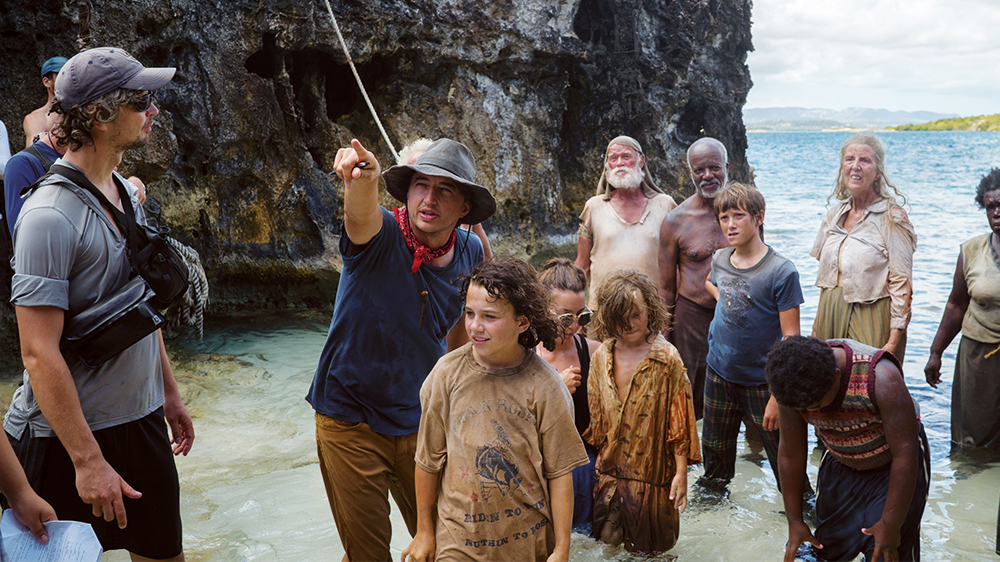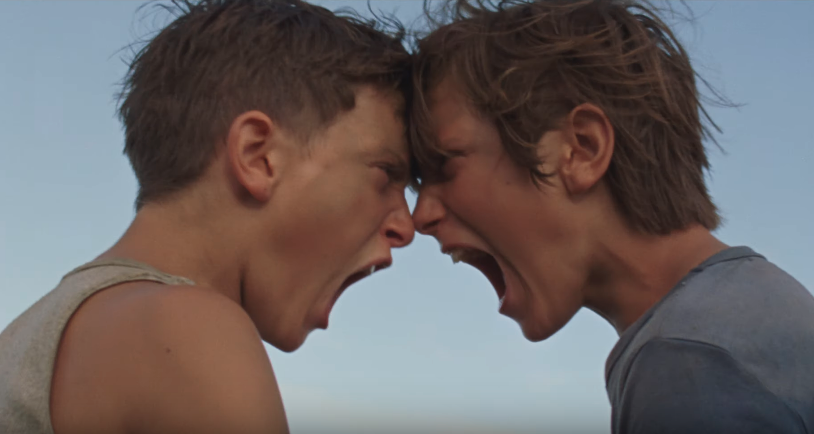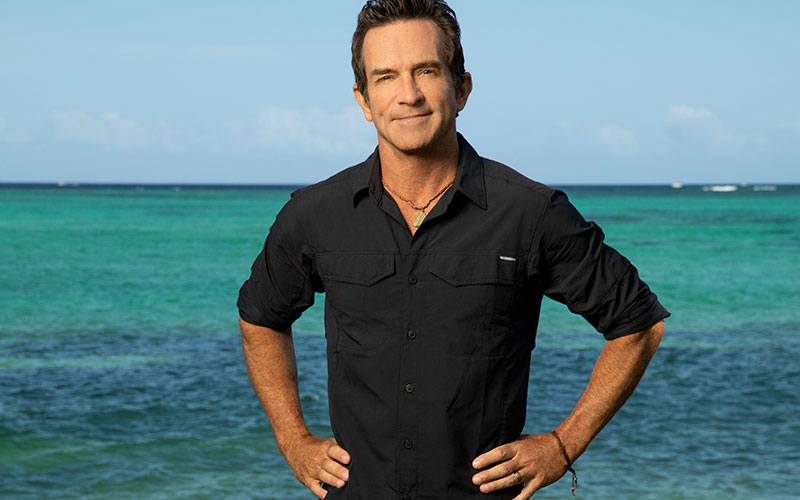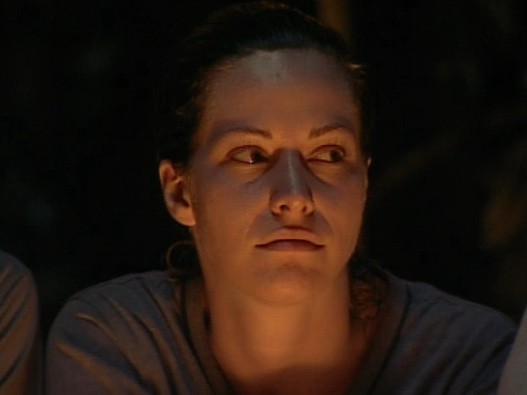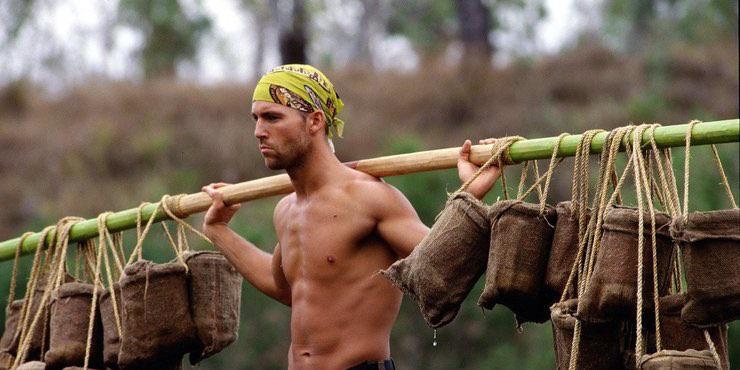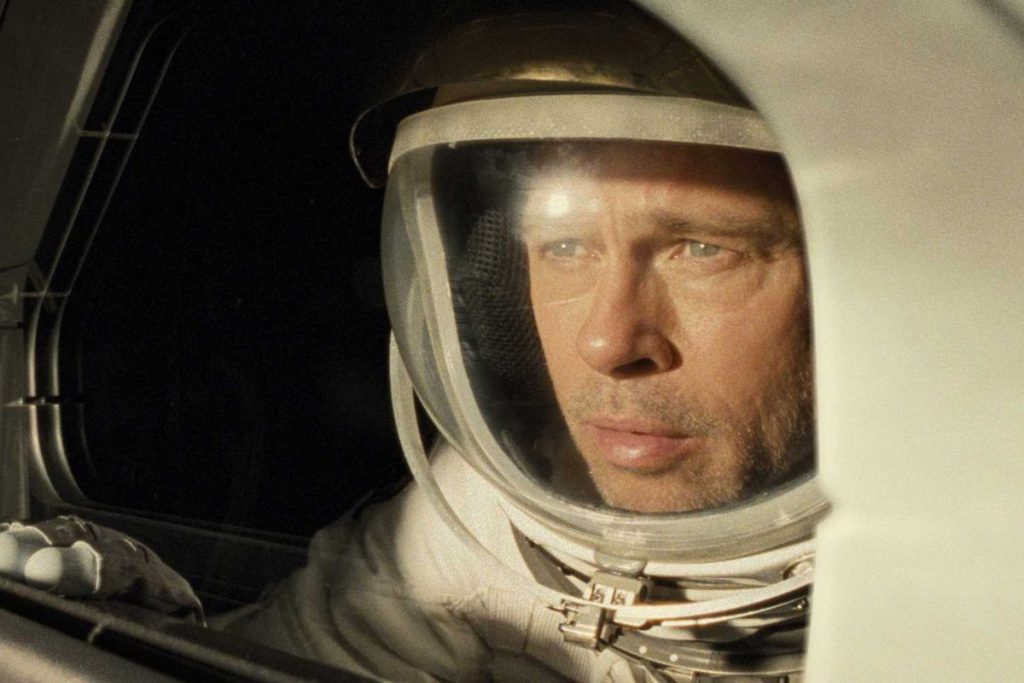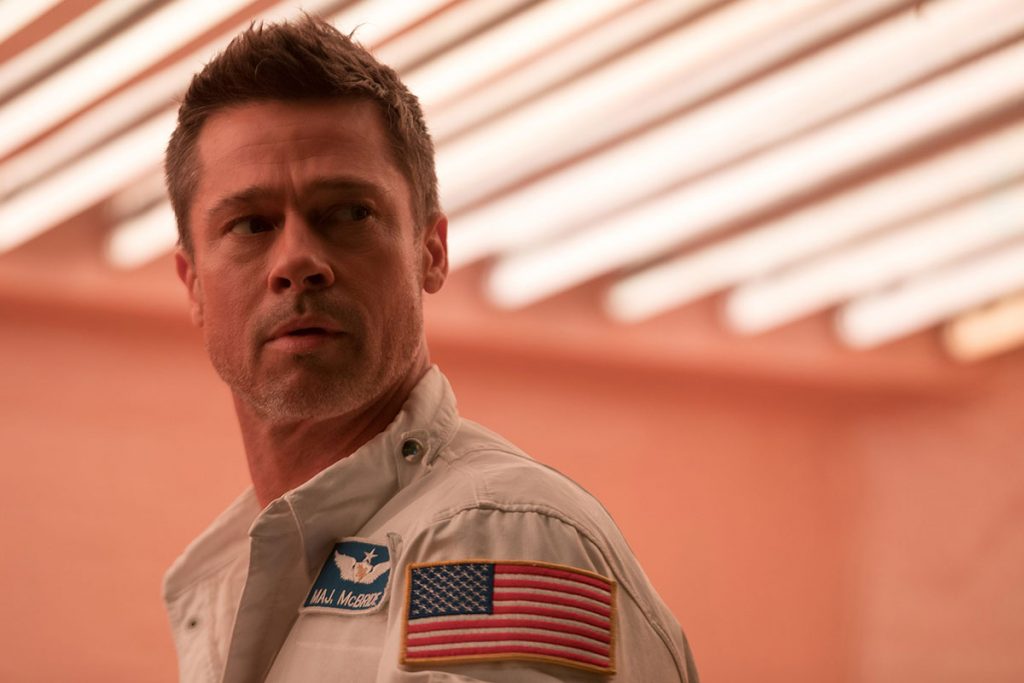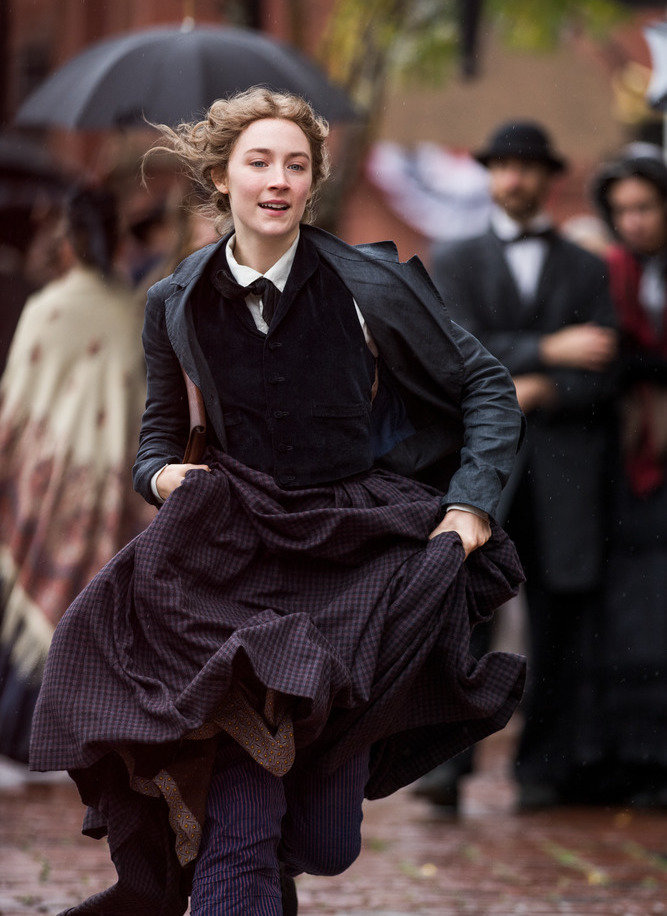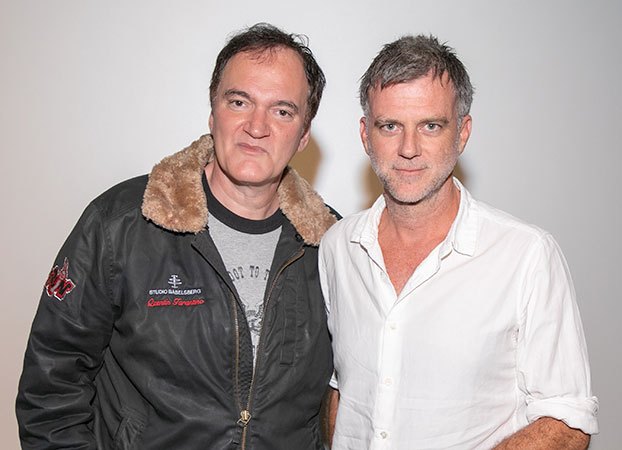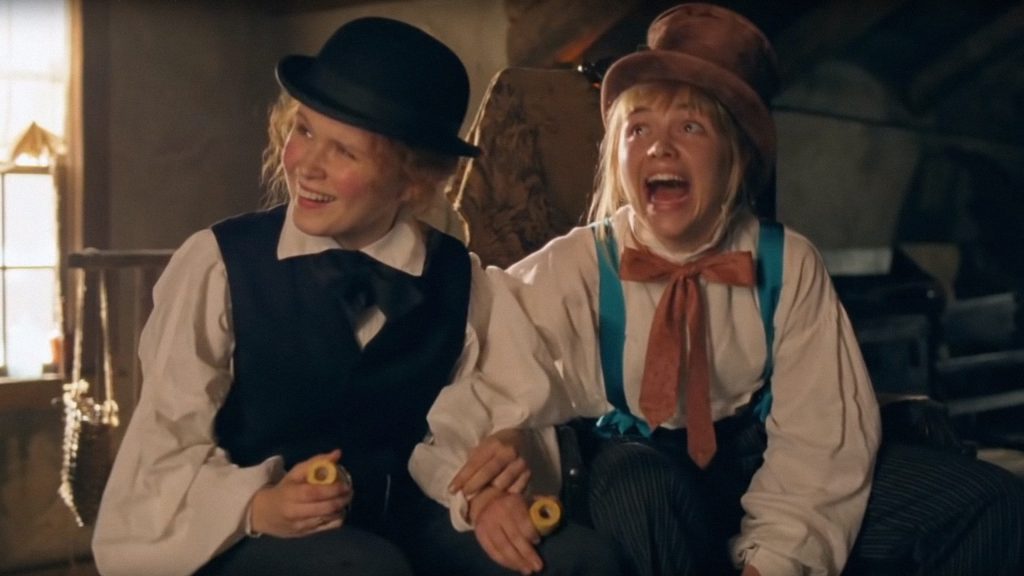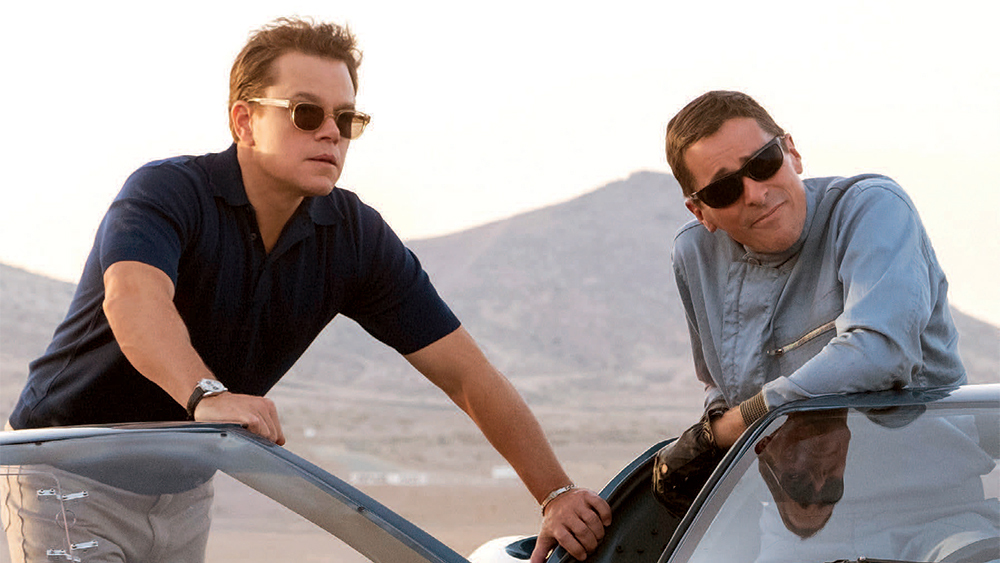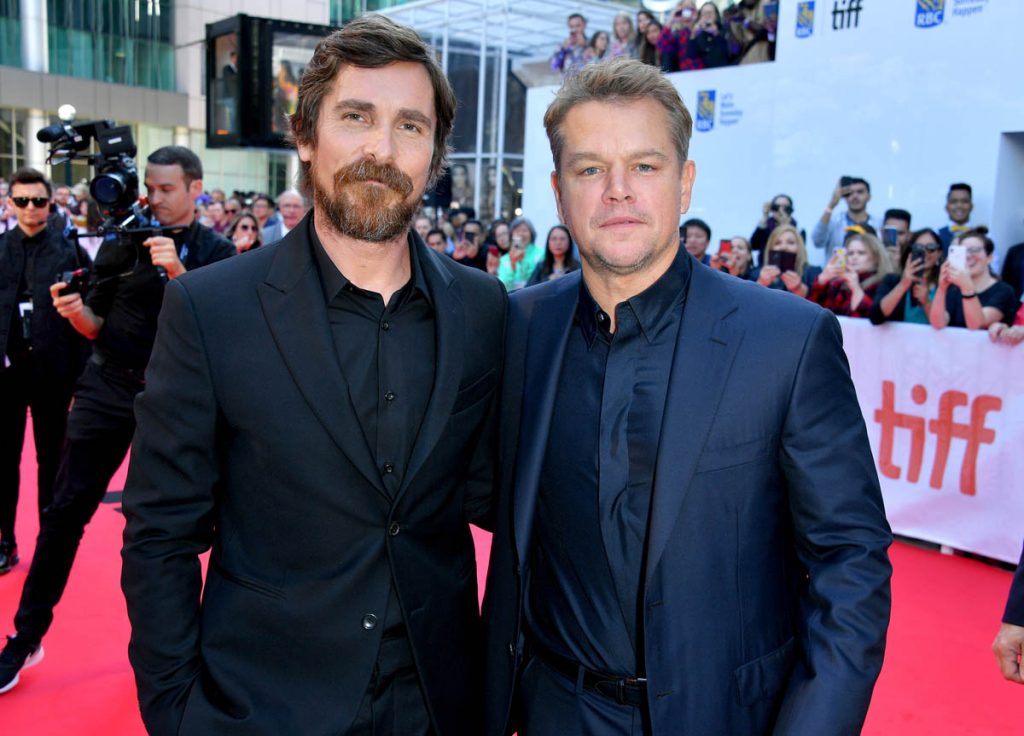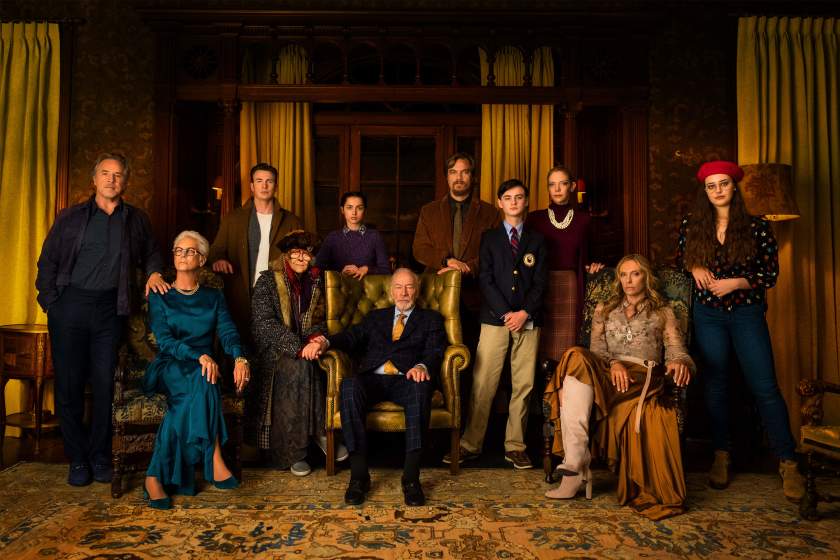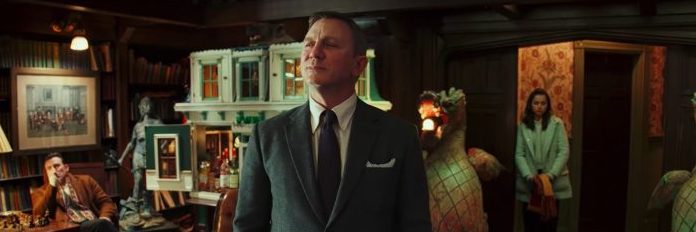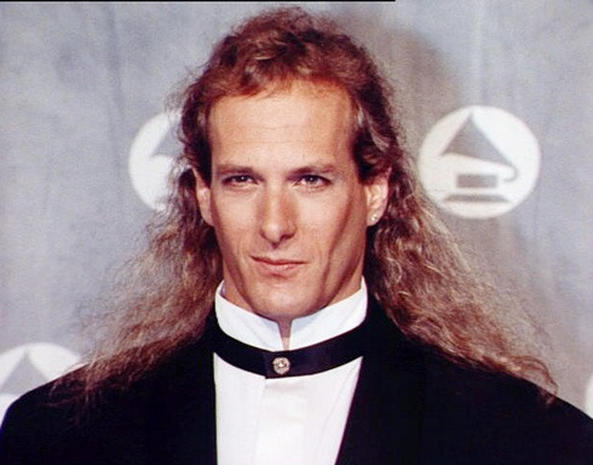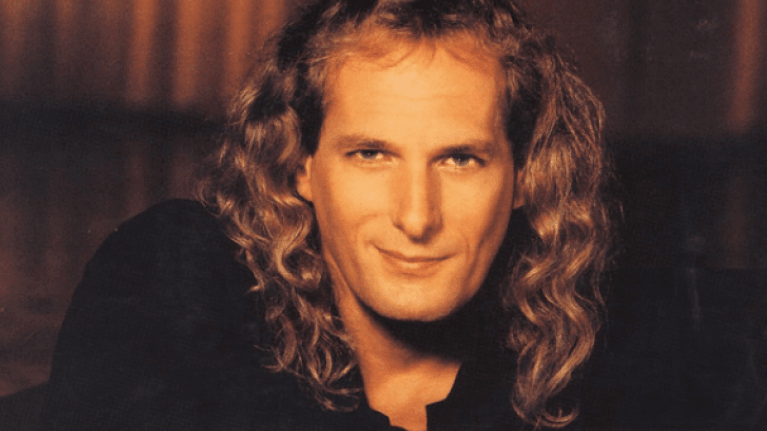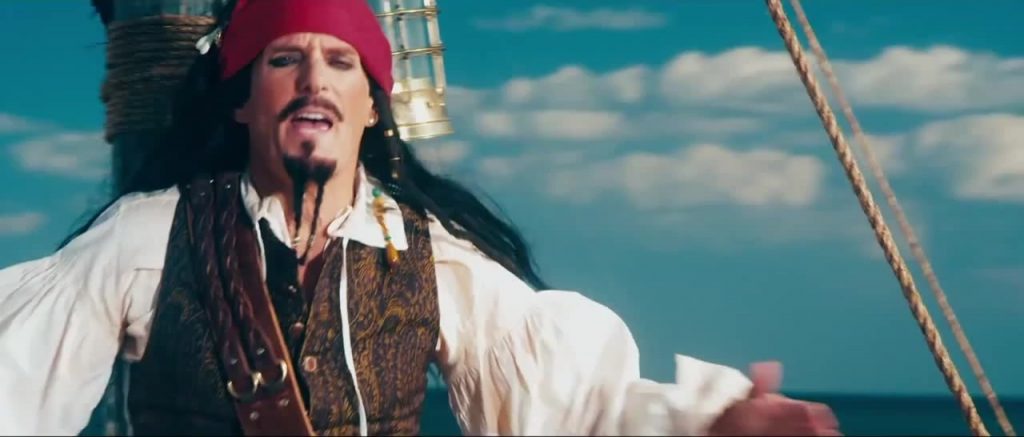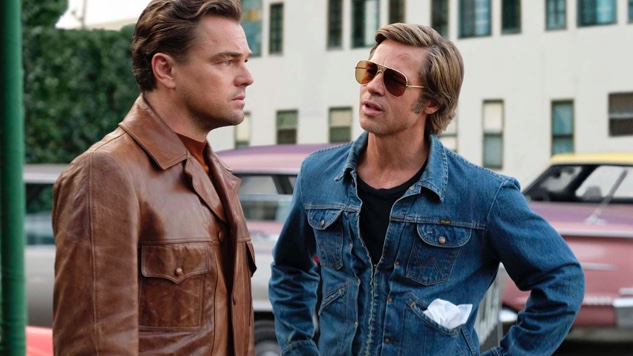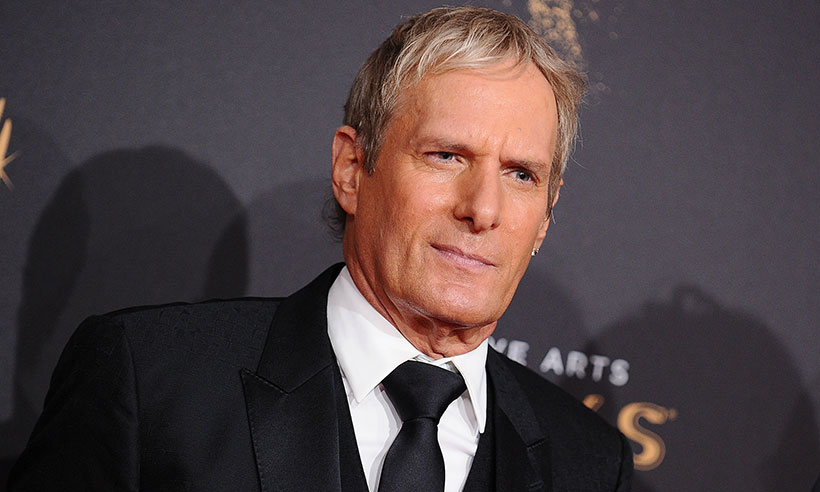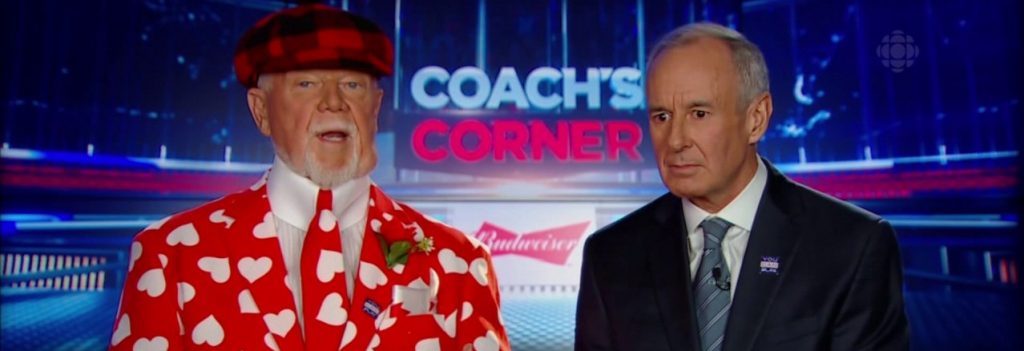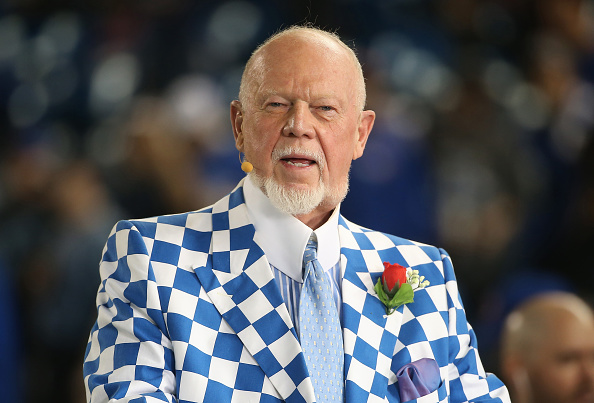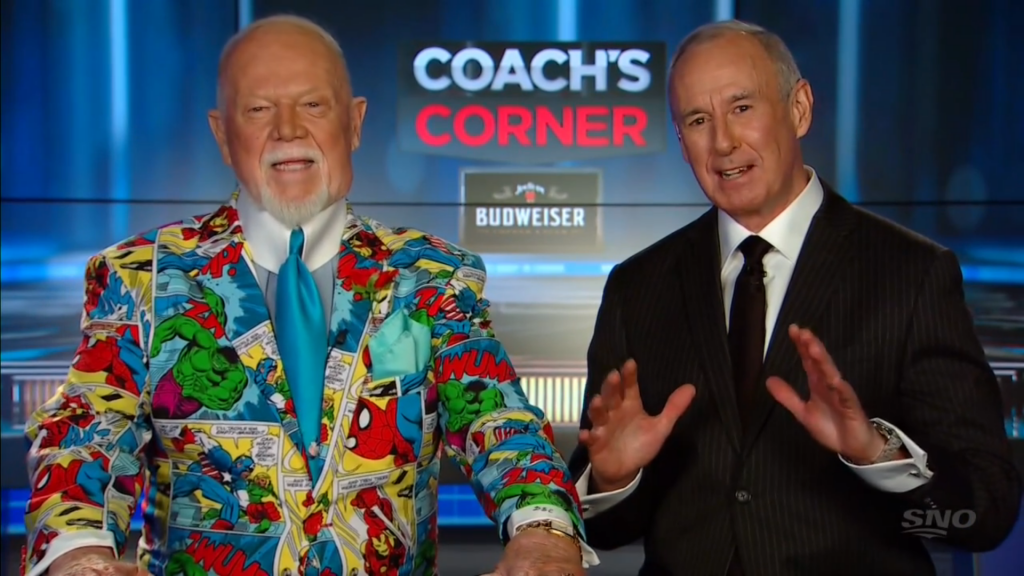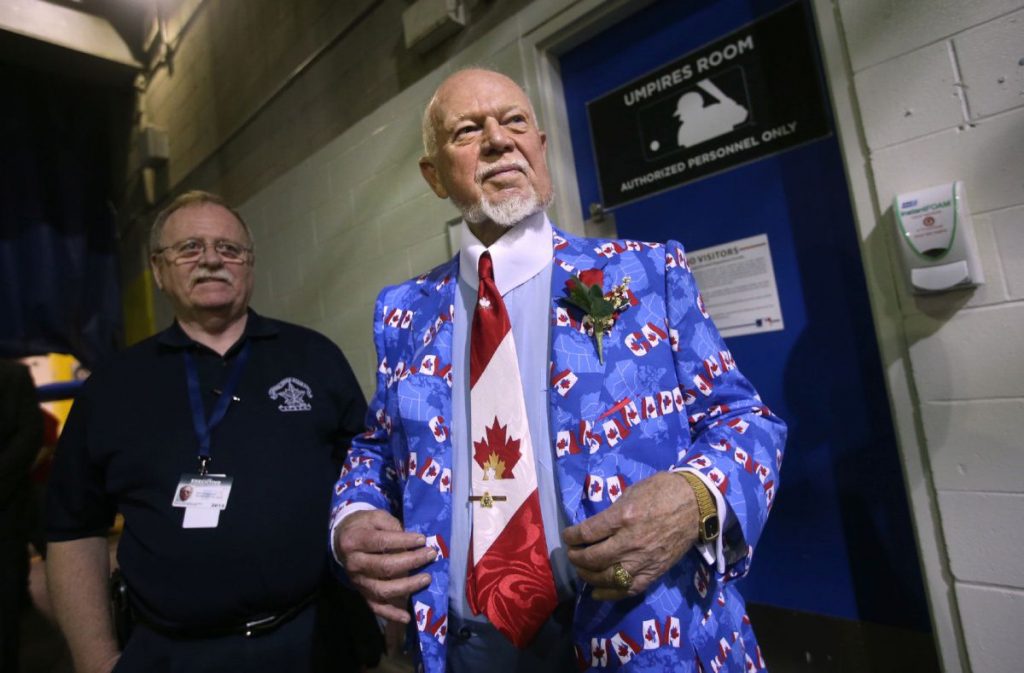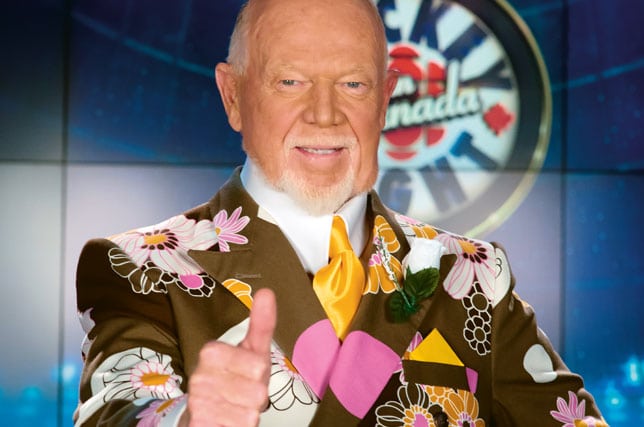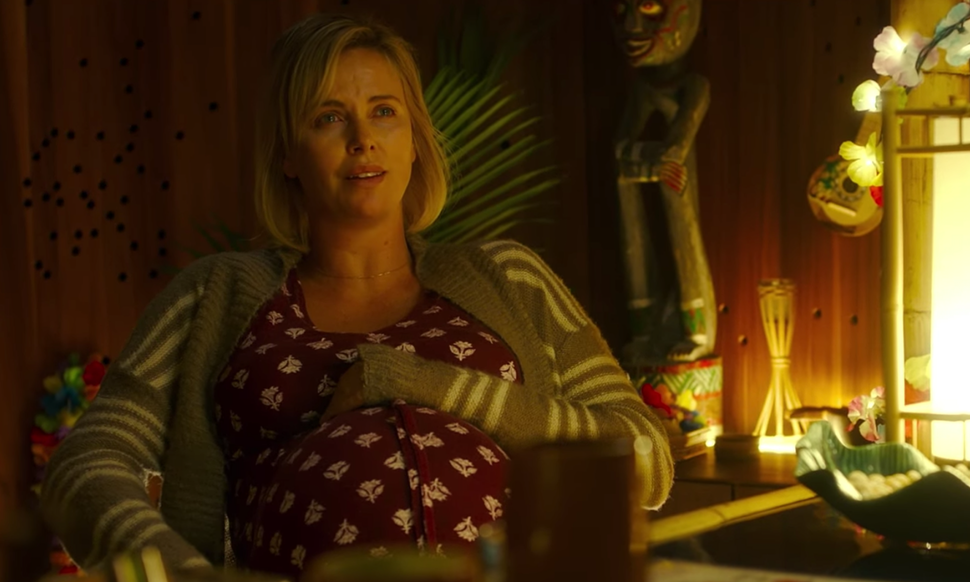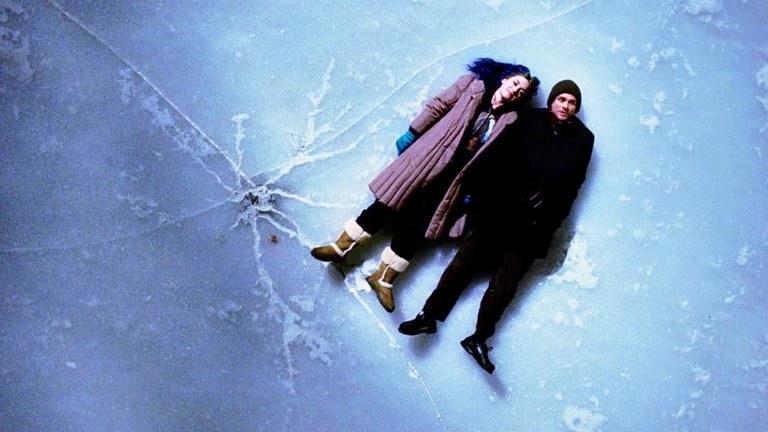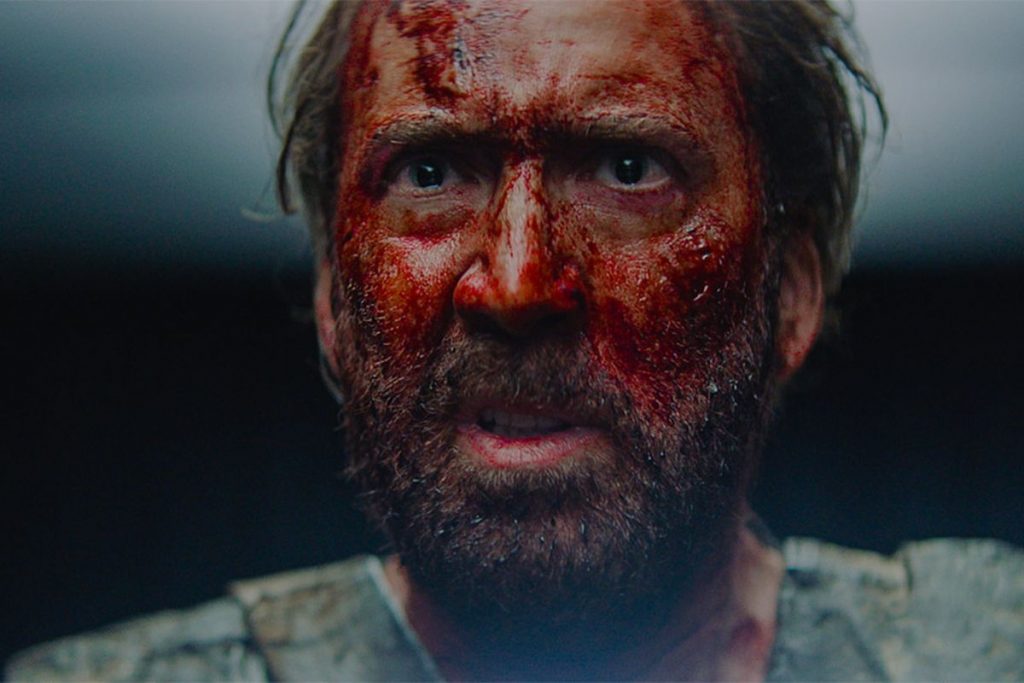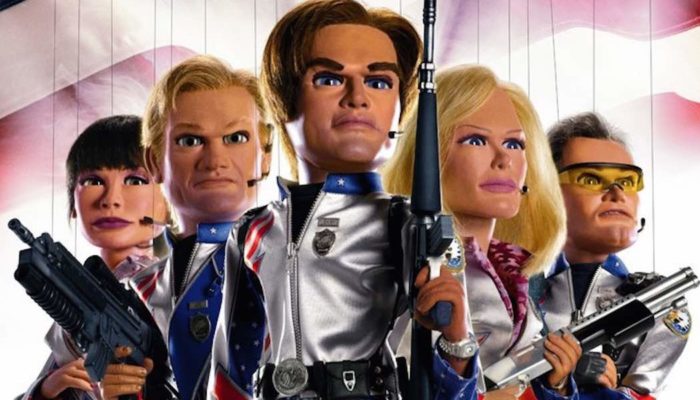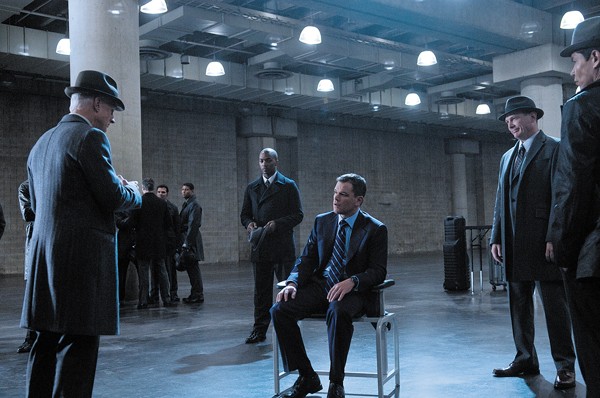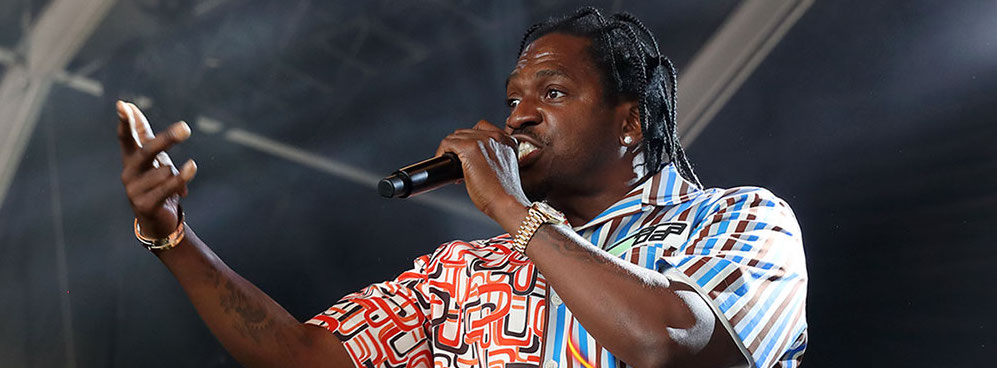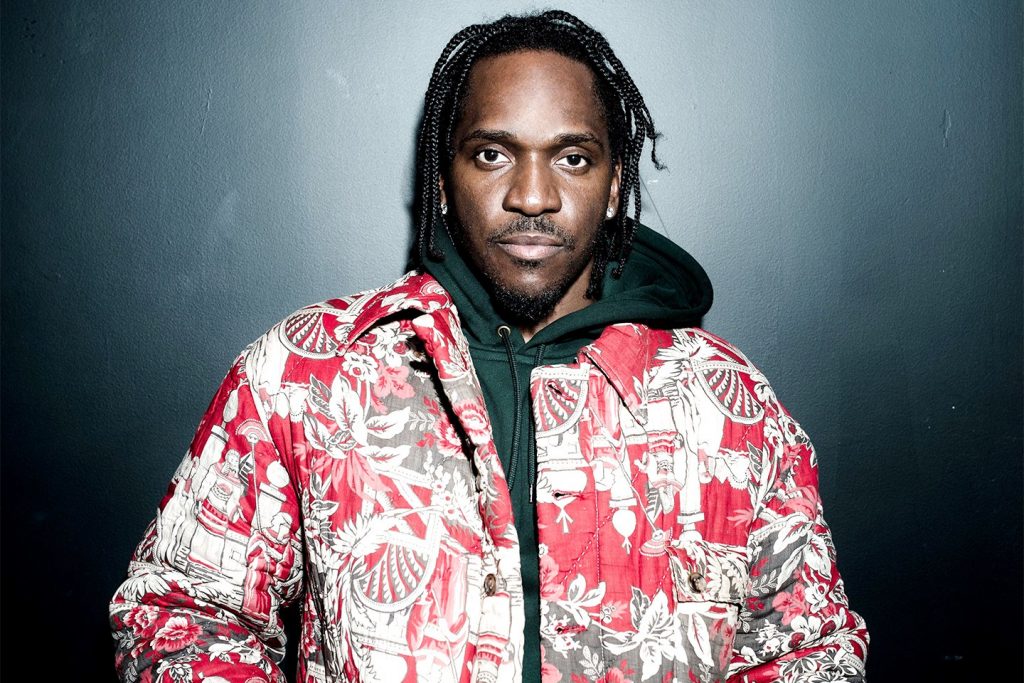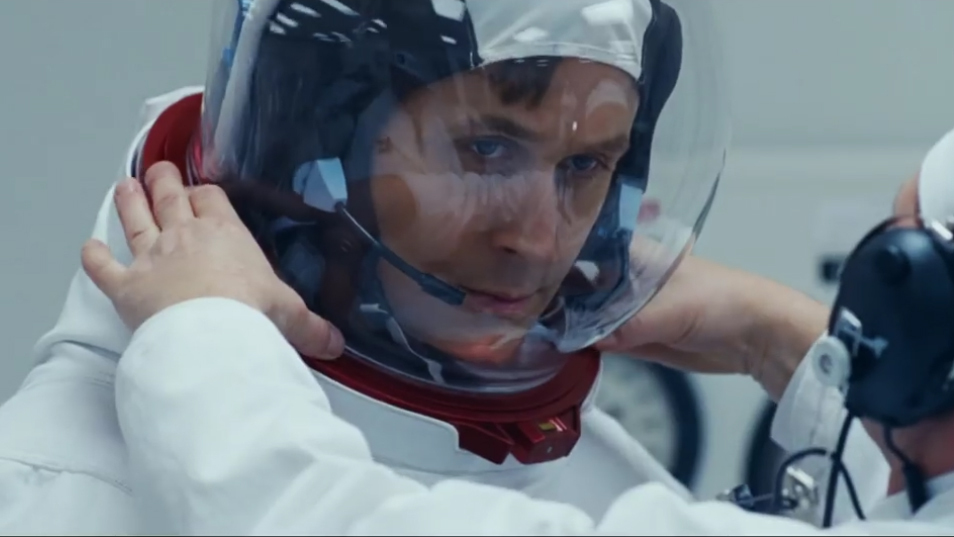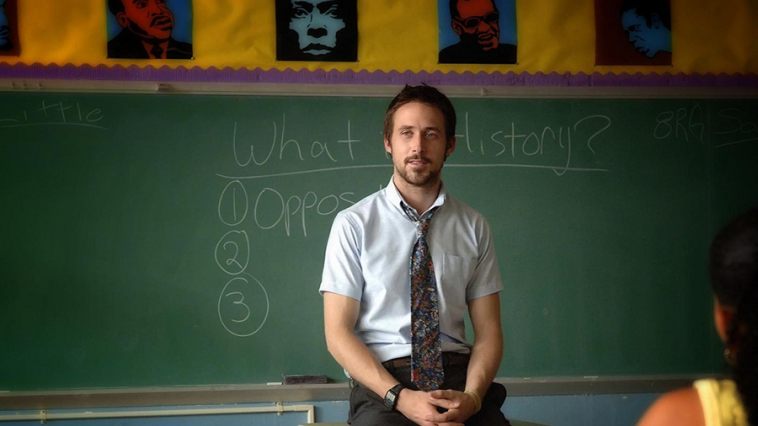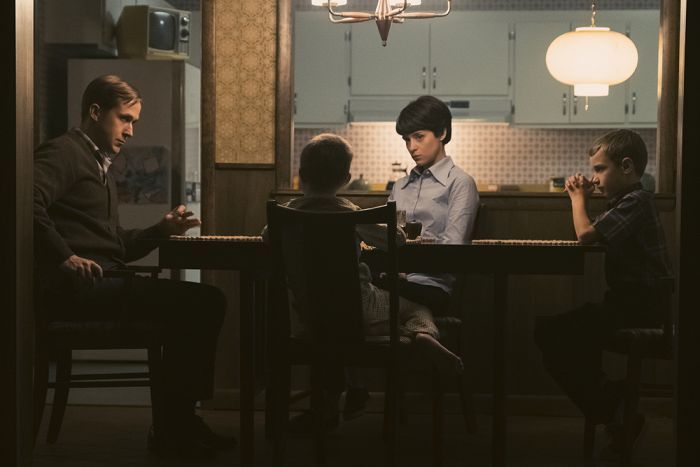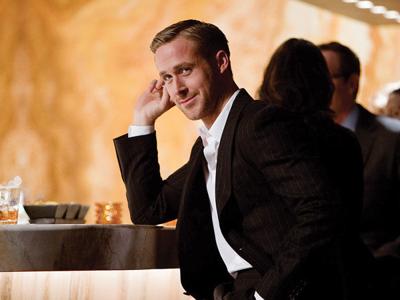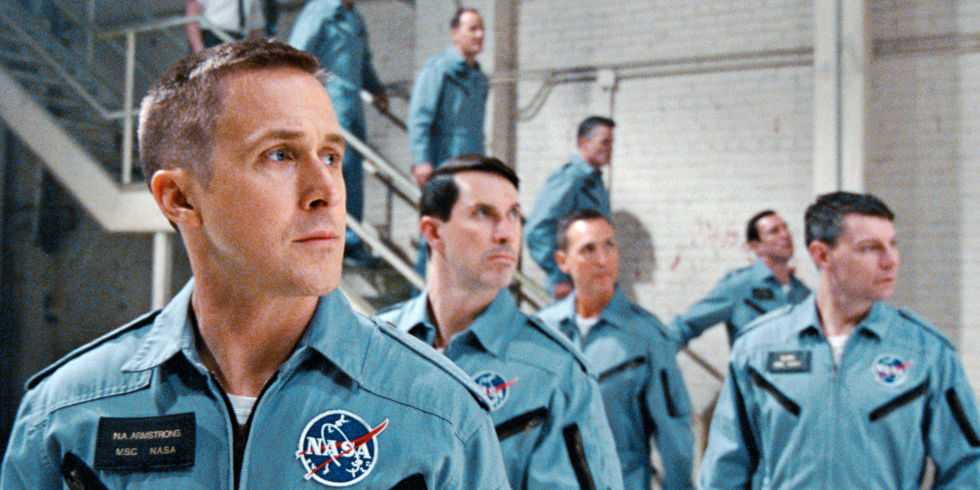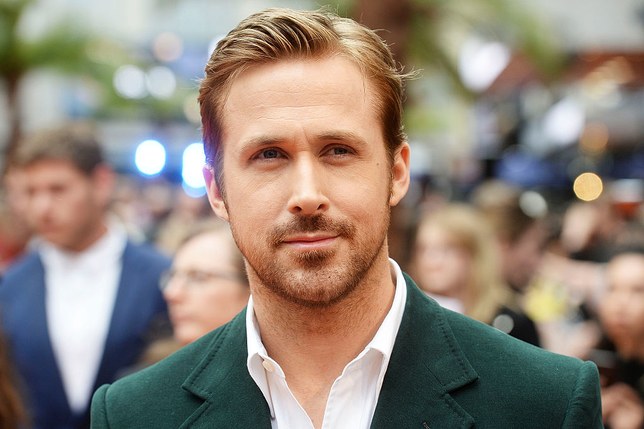
Alex writes about Wendy, Benh Zeitlin, and Beasts of the Southern Wild.
Let’s go back to early 2012. A director releases his debut feature, a feature that begins as a widely adored and appreciated Sundance hit. It is released to the general public in the summer of that year, to further acclaim and profits that greatly outweigh what the film cost to make. Listening to people walking out of the cinema I saw it in, all viewers sounded resoundingly positive. In the winter, it would be nominated for four Academy Awards, including Best Picture, Best Actress, and Best Director. It was a type of success anybody would accept. And yet its director didn’t release another feature for eight years. How does this happen?
The picture in question, to those who have yet to figure it out is Beasts of the Southern Wild, a film that I can assure you was beloved at the time of its release but has since been widely forgotten. This is not uncommon: a look at the other nominees for Best Picture that year reveals a collection of films that had their time in the sun, but whom nobody really talks about all that much anymore. This happens at each Academy Awards, or each year in general: there are always myriad successes, but only one or two films each year can really stick in the collective consciousness for longer than an award cycle. In order to do that, your film has to be truly beloved by wide swaths of people.
My recollection of my 2012 review of Beasts of the Southern Wild was something along the lines of: “these special effects are intriguing,” “holy shit does this music bang,” “this sound mix is off the charts,” “that little girl is great,” “does this movie have a plot,” and “are we watching another entry into the world of indie Malick ripoffs?” My companion and I followed the film by going across the street to drink the cheapest beer on the menu and eat salads that were served in bowls made out of fried dough.
“I liked it,” said my friend who has and shall always retain the ability to translate my longer thoughts into shorter, concise ones. “It was a nice story of a father and his daughter.” I could tell from how she said it that she would probably never think about this film again, and I could tell from my reaction to this that I certainly would. I saw Beasts of the Southern Wild two or three more times, because no matter what you say about the film it is an exciting stylistic exercise with a manageable running time, sliding into the slot for “short movie I can see to fill the gaps between two other movie screenings.” I listened to the soundtrack a lot, while writing and while cooking and while walking into screenings of Beasts of the Southern Wild. (Before my second screening was through, I recall thinking, “Is this movie good, or do I just like the music?”) But the day of the Oscars that year was probably the last time I thought of Beasts of the Southern Wild for years.
When Benh Zeitlin finally released a new film earlier this year, Wendy, I was scoffed at for suggesting I was planning on going to see it. Of course, I didn’t end up going, because I planned to see it on a Thursday. But on Wednesday, Rudy Gobert tested positive for COVID-19, and then borders closed, and I had groceries to stock up on. But I thought a lot about why my friend would think it was silly of me to want to see it.
“It’s directed by the guy who made Beasts of the Southern Wild,” I said, “And I kind of feel obligated to see the follow-up.”
For reasons I honestly can’t even put into words, I felt compelled to watch Beasts of the Southern Wild this past Friday night. I needed a guaranteed win, and I knew if nothing else, this short movie with an absolute banger of a score* would get me home. Watching it in 2020, I noticed a few new things that weirdly I have no recollection of hitting me in 2012. Less than ten minutes into the movie, I knew where all the 2012 success came from: this is a Terrence Malick film poured through a Spielbergian strainer, removing all the fat, upping the broad emotions, and telling John Williams to make the audience bawl. It’s a short (all later period Malick movies are too long, I’m told) movie about a kid (as opposed to adult children played by movie stars) and her father (as opposed to lover), there are countless gratuitous handheld shots of nature (this was left unchanged), and the music is overpoweringly emotional.
*I truly cannot make this point loudly enough. I think if this movie had a less exceptional collection of music running underneath it, the collective reaction would have been entirely different.
Zietlin is not the first person to take Malick’s ideas and translate them to a wider audience, of course. These things are rampant; Malick kind of rewrote Hollywood film language, and people took little bits of it and injected it into their own work. David Gordon Green is the Sundance copycat, with his George Washington being a bonafide Terrence Malick covers album. You can see it in Michael Bay’s work, especially the later films, and you can see it in literally every indie movie set outside of a metropolis (and most within as well). Christopher Nolan remains the king of the Malick thieves, filling his movies with brief handheld cutaway shots to signify a different time or a different memory. Malick will be remembered as the Velvet Underground of filmmakers, the man whose work was widely ignored by everybody but filmmakers, and ridiculously influential to those who picked up a camera with a compulsion to tell a story.
Beasts of the Southern Wild has a lot of conflicting ideas in it, and I felt the return of a lot of my own conflicting ideas from 2012. I still feel like this film might be at least vaguely racist, although I couldn’t put the why into words in 2012, but it mostly revolves around a white filmmaker making a film about predominantly black characters. Although, of course, Zeitlin and his team encouraged those actors to have a lot of agency over their characters in the production. When the film was released, there was much talk of Zeitlin’s Court 13 production collective and their collaborative approach to filmmaking, a collaboration that reached all aspects of production.
“There’s so many facets that you can really bring everyone you know together, who you care about, who’s talented, who has a good heart, and they can find their way into creating something good for the movie, provided you allow the individuals working on the film to have agency and to be able to express themselves, which I think is the hardest thing about when you go to work on a traditional set,” Zeitlin told Scott Foundas in filmcomment in 2012. “The creative hierarchy is incredibly regimented and the people actually touching the stuff that ends up on screen don’t have any love for the things they’re making. Even if the designer does, by the time it gets to the person actually painting that or sewing it together, there’s no feeling in that actual task.”
Zeitlin’s approach was to listen to everybody, writing and rewriting dialogue to fit actors after improvisation sessions, and to listen to any idea that might come up during production. (Again, not all that dissimilar from Malick’s style of filmmaking, or Cassavettes, another Zeitlin touchstone.) This feeling of freewheeling creativity permeates the film, and Zeitlin’s job with his post-production team was to (arguably) tie all the exploration together.
I thought a variety of things during my recent screening of Beasts, but I mostly thought: say what you will about this film, but I’m excited to see what this guy can do next. And he had proven he could do a lot with a little. For whatever reason, filmmaking economics don’t always allow for somebody who can do a lot with a little, even when “a lot” translates into four Academy Award nominations. It was viewed as a lark, it seems.
Let’s move back to earlier in 2020. Zeitlin’s new film, Wendy, has its debut at Sundance to little to no fanfare. Despite how closely (I think) I follow American cinema, I did not know the film existed until the day before it was released in a nearby theatre, and the pandemic has done nothing to increase the film’s reach. I would have seen it in theatres but then, of course, you know.
Watching Wendy is a different experience than Beasts of the Southern Wild, if only because the Zeitlin style of freewheeling indie bombast is no longer new to those of us who saw his debut. The styles of each film are the same, with loud music and unconnected voiceovers paired with footage of children running around and generally being adventurous. As all reviews and/or pieces about the film must claim, Wendy is a reimagining of the story of Peter Pan for the Sundance set, which is just about the most “Spielberg by way of Malick” thing you could possibly imagine.
There are moments where Wendy is as impactful as Beasts of the Southern Wild, just as there are moments in Wendy that are bland and stale (not unlike Beasts of the Southern Wild). The main difference is that, with Wendy gallivanting for approximately twenty minutes longer, the gaps between the good and bad moments are larger, making an already disconnected style feel even more disconnected. With a movie that runs 93 minutes, like Beasts, you power through the two slower minutes before Dan Romer joins in to blow out your eardrums, but with Wendy you often have to stick with what is a less engaging scene for an extra couple of minutes. This is not an argument to make all films shorter, more that the runtime of Wendy simply allows the viewer to meditate on its missteps more, in between the moments of triumphant adventure. And there are some truly beautiful moments in Wendy. From the introduction to Wendy herself and the film’s title card*, to the out of nowhere emotional wallop that comes in the montage after Wendy and her brother return home to live their own adventures, the film never goes too long in between instances of jogging your memory to remind you of Beasts’ finer moments.
*Which, it should be noted, is incredibly similar to the opening of Beasts.
The highlight of the film is the way Wendy depicts twin brothers Douglas and James adapting to life after Douglas is believed dead. After running off to the island where the majority of the film takes place, a place where a volcano named Mother stops its inhabitants from aging, Wendy and her brothers go swimming amidst the wreckage of a sunken boat. Douglas hits his head, starts bleeding, and appears to be lost underwater. As time passes without his brother, James watches his own right arm grow old, eventually demanding Peter cut it off. James becomes old, bitter, and lost, crossing the barrier to the less populated part of the island, where those who feel cast off by the island society go to wander meaninglessly. When Douglas returns late in the film as a still-young boy*, James and Douglas are able to look at themselves older and younger simultaneously. They are able to see what the world has done to James, and what it has yet to do to Douglas.
*Out of nowhere, and with seemingly no explanation, but plenty of things in this movie are totally unexplained.
Now, writing this all out makes the movie sound deeply terrible. And it might be. The highs are very high, but they are spaced out, and there are many more lows. But the moments where Wendy hits its peak are glorious, and this is one of those moments. The film wordlessly shows us the twins, one old and one young, in a graphic match to a shot from when they first arrived on the island. Instead of the whole world being in front of them to play with and explore, however, now James has been overcome by the darker elements of it. He experienced a life without what he needed to be happy, and he can see a younger version of himself with that whole life left in front of him, the younger version looking back at him, silently hoping to avoid the same mistakes. Because this is still technically a Peter Pan story, James has fashioned himself a hook to replace his hand, gathering his fellow Olds to fight back against the island and Mother.
The film sprints to its end, with Wendy and Douglas rushing home to their mother, and a montage of their lives from there on out begins. Wendy has her own child, who is eventually taken away by Peter on a train in the middle of the night, a train Wendy rushes to chase after but can’t keep up with. She knows her own daughter needs this, and so she lets it happen. (It is weird to see a film end with a mother being okay with her child being kidnapped, but this is how Zeitlin’s world works, I guess.)
Again, watching this film and thinking about it and (especially) typing it out all make Wendy sound like nonsense. And, as I keep saying, it might be. But one truth of it is that I love how this nonsense feels, even when I am occasionally a little bored with it. Wendy plays like a movie steeped in a type of freedom filmmakers would pine for, and it is able to feel as free as it does specifically because Zeitlin doesn’t need the Hollywood infrastructure to make the films he wants to make. By keeping his work strictly independent, he is able to do what he wants (at least for now). Wendy’s lack of success might make his next adventure slightly more difficult to fund, but he found a way to make Beasts of the Southern Wild happen, so I have no doubt he’ll be able to do the same again.
The lack of cohesive structure in Zeitlin’s films creates a high risk, high reward sort of proposition for the viewer. Either this montage will work and the viewer will be exhilarated, or this montage won’t work and probably none of them will and oh no now that guy’s snoring in the fifth row. I have experienced this a lot of times; I keep referencing Terrence Malick’s movies in this essay and others because I am one of his bigger fans. I have seen people nod off during montages I would describe as “perfection,” and I always understand why they do. This movie may be terrible, but – while I may lack the words to properly explain why – it is most certainly for me.
Something that has bothered me (and surely always will) is the impossibility to describe what about a song is so exciting to me. Much of my favourite music is instrumental, and even an appreciation of something like Run the Jewels requires me feebly explaining ethereal concepts that convey some sort of feeling. Similarly, Zeitlin’s two films are so strongly tied to their scores (composed by Zietlin and Dan Romer). Wendy and especially Beasts often feel more like songs than movies, with ideas tossed to the audience and then discarded, because the mechanics don’t matter so much as the feeling they convey. The specifics are meaningless, because nobody is going to remember the exact lyrics anyway. All that matters is how it feels.
Before leaving the island, Wendy joins her fellow inhabitants, both young and old, in singing a chant to Mother. They are all singing in unison, in hopes that what they call out will be picked up and a volcano will erupt (or whatever the actual plot is). It doesn’t matter if anybody can hear them though; hearing the call never mattered. All that mattered was still being able to sing, in the hopes that somebody will hear it. But either way, calling out means something to its singer.
Both of these films might be bad, or both of them might be good. There’s simply not much of a difference between them beyond the runtime. The pervasive feeling I have, that publishing this will put a button on my desire to watch either of them again, leads me to believe they’re closer to bad than good. But I enjoyed watching them; Beasts was an interesting experience in 2012, and Wendy was a different kind of interesting experience in 2020.
There are always going to be people who create something that seems new and exciting, and occasionally that new and exciting thing might actually be an old thing repackaged in a new, exciting style. That, along with an ad campaign that works, will lead a portion of the masses to your film. You will bask in your success for as long as it lasts, always concerned it might disappear in the blink of an eye.
Those same creative people might then need a little bit of time to create the next new and exciting thing. By then, of course, the world might have changed, because the world is always changing (and seems to be doing so at a much more rapid pace than was done in 2012). The singular truth that will remain, however, is that the gatekeepers of Hollywood will follow the money, and if the new idea doesn’t seem like something that will make money (and the previous person who gave you money is either bankrupt or no longer wants to give you money), then you’re screwed. You are left to your own devices, to create a world people may or may not want to be a part of. It doesn’t matter. It was never meant for them, anyway.
]]>In Survivor: Winners at War, a lot of things remain unclear on a week-to-week basis. After being hit with an extortion disadvantage that requires him to pay six fire tokens, Tony has to borrow three tokens from three different tribe mates to make the payment. In the following segment, Tony immediately wins two tokens at the immunity challenge. Which of the two people did he pay back? The show doesn’t mention it. When Parvati and Natalie get their six tokens from Tony, the show doesn’t tell us if they split them evenly, or what their strategy was for using them. This is one of the many times this season when the game is overrun by information, and the show simply doesn’t have time to tell us everything that’s going on.
Well that’s exactly what happened in my head while writing this. These are extra pieces of information that I think are interesting and important to the history of Survivor, but that I simply didn’t have room for in what was already an 8000 word piece that ended up in my book. I don’t know why you’re reading this, but thank you for sharing my obsession.
Parvati’s True Manipulation
Survivor is, to put it mildly, an extremely conservative show. It is aired on the most conservative broadcast network, and often plays into outdated historical binaries (like Heroes vs. Villains) that make little sense in the modern age. After twelve seasons of being criticized for a lack of minority representation throughout the casts, Survivor’s response was to start its Cook Islands season by splitting up its four tribes by ethnicity, a decision that was lambasted in the press and questioned by its own contestants, including eventual winner Yul Kwon in his first confessional interview, and Parvati Shallow in hers.
“Different ethnic groups,” Parvati says. “I mean is that… kosher? I don’t know.”
Cook Islands is Parvati Shallow’s first season, and it is not her best-played season by any means. Her strategy is initially to play on her charms, and use her flirtatious personality to build an alliance to protect her that she can then turn on later in the game. When her alliance loses its dominance, Parv’s fate is cemented, and she comes in sixth place. Like so many skilled Survivors before her, she gets unlucky.
But the show also does her a disservice, and the way she is edited feels like it views her as a one-dimensional flirt. Since Parv is a traditionally attractive woman, the show tends to hone in on moments when she is cuddling up to fellow contestants, and features multiple slow close-up pans of her body as she lies in the sun. Later seasons would prove this was all a part of a larger, more skilled plan from Parv that the Survivor producers simply couldn’t see at the time. To them, she’s simply there to fall in line as one of the season’s “hot chicks.”
When women are bathing in Survivor, particularly early seasons, the way the camera lingers on their bodies is (obviously, this is a reality show) pretty gross. Most traditionally attractive women on the show are treated as little more than that, and that includes the winner of season six, Jenna Morasca. Sometimes these women play into the roles the producers throw them into, as Jenna and Heidi do when they strip naked in return for chocolate and peanut butter, but they only do so because Jeff Probst is able to turn their jokes into a real offer in the middle of a challenge, and egg them on to get them to accept it.
In the after show of Survivor: Australian Outback, Bryant Gumbel questions Amber Brkich and Elisabeth Filarski’s decision to wear bikinis that cover (slightly) more of their bodies than predecessor Colleen Haskell did. Both Amber and Elisabeth say that yes, they did choose to do that because they saw the way Colleen was captured and hoped to change it, if only a bit. Unsurprisingly, it didn’t really work, and the show kept filming women this way, and in the thirteenth season the producers chose Parv as one of the bodies they wanted to linger on with no regard for her mind.
In Parv’s second appearance, in the show’s sixteenth season Survivor: Micronesia, the gimmick is that a tribe of the show’s fans will be competing against a tribe of favourites. Allegedly, Parvati was not included in the collection of favourites initially, only being given an offer to appear on the season after fellow Cook Islands participant Candice Woodcock declined. As the tribe of favourites is introduced one by one in front of the fans in the premiere episode, Parv gets almost no response when she walks out, leading her to turn to Jeff Probst and sarcastically say, “Thank you, Jeff.”
The show’s alleged preference of Candice over Parvati is indicative of how the show views women. Candice is maybe one of the most boring, uninteresting contestants in the history of Survivor, but since she looks like somebody who could compete in a Miss America pageant and isn’t aggressively annoying, Survivor views her as a favourite. Candice never shows a real strategy, and the strategy she does choose is so weak that she doesn’t make it far after the merge. When she did return for Survivor: Heroes vs. Villains, Candice’s performance is similarly uninspiring. But she is a woman who falls in line and chooses the path of least resistance, so Survivor loves her. Parv is viewed as less of a favourite because her style of gameplay was viewed as one-dimensional in Cook Islands, again though only because of a combination of luck and the show’s edit of her.
Is Parv open about her strategy? Yes. She says that she is trying to flirt her way to a certain point, and in Survivors: Heroes vs Villains the way she rolls down her already very small bikini to make it even smaller can only be a further strategic move to help her continue to be underestimated. In Survivor, being flirtatious only gets you so far, and Parv knows this. At some point, you have to be able to operate as an individual to win Survivor, and Parv is more than capable of doing so if the necessary elements break right.
In Micronesia, Parv once again begins her alliance by flirting with James Clement, and the two team up to form an alliance with Amanda Kimmel and Ozzy Lusth. This carries them to the merge, where Parv initiates the blindside of presumptive finalist Ozzy almost immediately, beginning a run of four consecutive blindsides.
- Ozzy Lusth: the de facto leader of the merged tribe, holding a hidden immunity idol (that everybody on the tribe knows he holds) and the biggest immunity challenge threat in the history of Survivor in his peak physical condition, believes he has control over the alliance, and that Jason will be going home. Parvati Shallow leads the Black Widow alliance to vote for Ozzy, without telling her friends Amanda Kimmel and James Clement. Ozzy does not play the idol, and is visibly stunned and hurt when he is voted out.
- Jason Siska: After being sent to Exile Island by Natalie, Jason finds the hidden immunity idol that is replaced once Ozzy gets eliminated. Natalie then convinces Jason that James will be voted out at the next tribal council, even though Natalie knows the whole alliance is aiming at Jason. Again, the person with the hidden immunity idol doesn’t play it, and again they are voted out.
- Alexis Jones: Amanda volunteers to be sent to Exile Island, with reward challenge winner Alexis choosing her to go. Amanda uses the clues to discover that the new hidden immunity idol is buried under the tribe’s flag back at camp. Returning from Exile, she allows her tribe mates to search her belongings so they know she doesn’t have it, before enlisting Parv to help her distract others while digging under the flag. Parv succeeds, Amanda finds the idol, and when every vote gets directed Amanda’s way, Amanda plays the idol and her and Parv vote out Alexis. It’s rad.
- Erik Reichenbach: This one is painful to watch. Natalie convinces Erik to give up his individual immunity to protect her, and he is immediately voted out as the jury openly laughs at him from the side.
Parv is not the central figure in all of these blindsides, but she is prominently involved in each of them, and she knocks over the first, most important domino. The Black Widow alliance is a group of five women that becomes four once Amanda and Parv turn on Alexis, and eventually three for Parv, Cirie, and Amanda as was always Parv’s plan from day one in the Favourites tribe. When Amanda wins the final immunity challenge, she brings her friend Parv with her to the final two, viewing Cirie as a bigger threat to win.
At the final tribal council, Parv gives a great performance answering the jury’s questions, a skill Amanda simply does not have. Parv has shattered Ozzy too much to ever get his vote (he also confesses his love for Amanda at the same tribal council) and similarly insulted James, but it seems like she wins the votes of the people who are on the fence. Parvati is crowned the winner with a vote of 5-3, being rewarded for gameplay as opposed to Amanda’s focus on remaining likeable.
One thing that hasn’t been touched on here, and what helped her in this jury vote, is that Parv is a truly charming television personality. She is more engaging than most, possibly all of, Survivor’s contestants. When discussing her in Heroes vs. Villains, Coach says “She’s got the charm, she’s got the smile, and for some reason when she pays attention to you, you feel like you light up. It’s not that people don’t see it, it’s just that they are allured by her charm. And they’re taken by it. They’re smitten by it. It’s unbelievable.”
Randy Bailey says something similar in an interview, saying that “Survivor in so many ways is like the real world. You don’t get ahead by being smart, clever, hard-working. You get ahead unfortunately with a pretty smile and being able to schmooze people. And Parvati is the queen.”
In Survivor: Heroes vs. Villains, Parv aligns with Russell Hantz on day one. As opposed to the other contestants, nobody has any information about how Russell will play the game as his previous season hadn’t aired when production on Heroes vs. Villains begins. Opposed to the other alliances formed in this season, Parv is flying blind. But the people around her are also somehow still flying blind to her own skills.
Later in the season, JT gives Russell the hidden immunity idol he found, as a way to build trust and form an alliance with Russell, who seems to be controlling (and definitely believes he is controlling) the game. At the first individual immunity challenge, Parv and another player she is in an alliance with, Danielle, are the last two standing in an endurance contest. Parv steps down voluntarily, knowing Danielle needs to win to stay alive. Russell believes Parv is in trouble, so he gives his hidden immunity idol to Parvati to protect her (and protect Russell’s own alliance), totally unaware that Parv has found a hidden immunity idol of her own.
Even though Parv is told by Amanda, a member of the Heroes alliance, that the Heroes are going to vote her out, Parvati believes a lie is afoot. At tribal council, the Heroes direct their votes at Jerri, but Parv plays both immunity idols to protect Jerri Manthey and Sandra Diaz-Twine while making the gamble of leaving herself exposed. Russell is visibly surprised that Parv both has a second idol, and isn’t playing either for herself.
Parv guesses right, and nullifies the Heroes votes, sending JT home. As he realizes he’s going home, JT shakes Russell’s hand, believing Russell to have been the mastermind of his elimination. Incorrect. Parv manipulated Russell into giving her an idol, she found one of her own, she (by being good enough in the challenge to be one of the final two standing) allowed Danielle to win immunity, and then gave immunity to two other tribe mates to strengthen her alliance. It’s a truly epic Survivor move, and it is indicative of Parv’s mis-categorization that JT shakes the wrong person’s hand on his way out the door. Parv ends up being the runner-up in this season, losing to the person who became the first two-time winner of Survivor, Sandra Diaz-Twine.
Even though Sandra has an additional win on Parvati, I believe Parv is the greatest Survivor player of all time. Her skills in challenges are underrated, she is cunning, and she is able to adapt to the new gimmicks Survivor throws at her. Sandra should be considered the runner-up as greatest player ever, but the combination of Parv’s adaptability to new gimmicks, manipulation as the game changes around her, and physicality (as the game has gotten more physical with time) make her a true threat in any era of Survivor’s history, be it the past, present, or future. When Sandra and Parv are eliminated on the same episode of Winners at War, it’s worth noting that Sandra quits the game while Parv chooses to keep fighting from Extinction Island. Randy might have meant it derisively, but Parvati Shallow is indeed the queen.
At the beginning of Heroes vs. Villains, when the Heroes and Villains see who their opposition is after helicopters drop them on their beach, Jeff drops some interview questions that reflect the show’s further disrespect of the greatest player of all-time. As he is interviewing Tom Westman, and complimenting him on being a winner people rooted for, Jeff says “which isn’t always the case with some of our winners” as the image cuts to a shot of Parv. When Jeff asks if anybody on the beach believes they’re on the wrong tribe, multiple villains’ hands shoot up, and Parv speaks up.
“What did we do? What did we do that was so bad, Jeff?”
“Parvati, let’s be clear.” Jeff responds. “While you did a great job and were awarded with a million dollars, you lead one of the most notorious tribe of women ever in the history of the game. You betrayed people left and right. You guys were responsible for many, many blindsides. Great player? Yes, that’s why you’re here. Hero? No.”
Jeff asks the muscular James, who was betrayed by Parv in Micronesia, if Parv is a hero or villain. James, naturally, chooses the latter. Jeff says “James is bigger than me, James is right.”
Parvati’s response? “I will fight him… I’m not scared of him. I don’t care how big you are.”
You can throw whatever gimmicks, challenges, villains, heroes, idols, judgment, misclassification, and institutional sexism you want at Parvati Shallow. She will use it all against you, seemingly without your knowledge. No matter what, she will fight back.
Probstian Smarminess
Survivor is hosted by Jeff Probst, who is good at his job. When the Emmy for Outstanding Host for a Reality or Competition Program was created, Probst won each of its first four years. (He hasn’t been nominated since his last win in 2011, not that he was undeserving.)
There are many things that make Probst good at his job: he is funny when he needs to be, engaging when he needs to deliver the drier rules and explanations involved in Survivor, and because he is good at prying information and confessions out of contestants at Tribal Council. He also looks like somebody who could be good at playing Survivor, which for some reason strikes me as a positive.
One can criticize Probst for many things, most of which are criticisms of the show itself. He often falls into an old school sort of sexism; he often doesn’t seem to realize (again, this goes for the show as well) when he’s counting out women or talking about their physical abilities (or lack thereof) too much. There are moments where he has acted in a way I would describe as repulsive, specifically in handling the moment when Sue Hawk quit All-Stars. Probst missed what Richard Hatch did to her in the previous day’s challenge, and when Hawk was emotionally breaking down and decided to leave the show, Probst was combative instead of supportive.
Perhaps most impressively, in Game Changers, there’s a truly shocking moment where Jeff Varner outs Zeke Smith as transgender at a tribal council, with Varner’s implication being that since he hasn’t told other tribemates Zeke should be seen as deceptive. Debates about whether or not this should have been broadcast at all are valid, and I have no objection to those who think it shouldn’t have been but, as aired, it’s a pretty remarkable conversation that Probst navigates deftly. Given his past history I never would have anticipated Probst would manage this well, let alone manage it well as it happened.
More recently, Probst has stepped up his skills when dealing with situations that are not easy to deal with. The mishandling of season 39 notwithstanding, Probst’s skills have grown. In a Winners at War tribal, when Sarah Lacina gave a speech about feeling discounted as a Survivor winner for being a woman, Probst admirably called himself out on his treatment of women throughout the twenty years he has held the job. Coming on the heels of seasons 39 I’m sure Probst was looking for a way to do this anyway, and elements of it do feel forced, but handling the moment well when it is given to you still deserves commendation. The show may not have really grown all that much in twenty years, but it’s good to see that at least Jeff can.
Survivor as a Comedy
Perhaps the most underrated aspect of the production of Survivor is its ability to make the viewers laugh. A big part of this, of course, happens in casting charming, funny contestants, but the show itself has to manufacture time for these personalities to shine through. In 39 days, with a collection of strangers, there are going to be moments of boredom that people fill with things that end up being funny, and it’s up to the show’s producers and editors to build these into funny segments.
In the first season, the cast often spends time looking for tapioca, which was planted around the camp before production. In Sue Hawk’s Wisconsin accent, the word “tapioca” is humorous, and when Sue Hawk is cut together saying “tapioca” eleven times in rapid succession, it’s even funnier. Survivor 40 has had a couple similar moments as well, with Sarah’s deadpan explanation of her career as a Survivor clothing designer followed by a brief fashion show at camp which she and Michele Fitzgerald performed humourously in. Earlier in the season, possibly the funniest thing I have ever seen on Survivor happened, as the editors pieced together instances of Nick Wilson walking into conversations with a dead-eyed stare, all of which happened during a pre-tribal council period of paranoia.
In Survivor: Redemption Island, Phillip Sheppard’s credentials as a former federal agent were questioned every time his name key appeared on screen, as he was credited as “Former Federal Agent?” question mark and all. In that same season, as David Murphy details Boston Rob’s control over the game at the final tribal council, the producers add a piece of music that is clearly meant to evoke the feeling of a Survivor equivalent to the theme from The Godfather. It’s hilarious.
The Stacey Stillman Story
In Survivor: Borneo, there was a contestant named Stacey Stillman on the Tagi tribe, and she was the third person voted out in the game. After the season ended, Stillman filed a lawsuit against CBS, alleging that Mark Burnett had engineered her exit out of fears that the vote would otherwise go against the 72-year-old Rudy Boesch (who, after the elimination of Sonja Christopher and BB Andersen, was the only contestant remaining who was over the age of 40). Stillman alleged that Burnett spoke to her tribemates Sean Kenniff and Dirk Been to steer their votes away from Rudy. Been would later testify in support of Stillman, and the case was settled out of court. Should you be interested in the whole rundown, Ianic Roy Richard wrote this comprehensive breakdown back in 2017.
Do I believe Burnett would have done this? Of course. A reality program is constantly being manipulated by its producers, and it’s not hard to imagine Burnett being fearful that his new show was eliminating all the members of a particular age demographic in its early episodes. I believe Stacey Stillman, and I hope she was paid well by CBS for exposing this. It seems likely that Burnett could have done this again throughout the show, and the Stillman case simply lead CBS to write even more detailed non-disclosure agreements for its future casts to sign. I choose to believe the producers tend to hang in the background post-Borneo, influencing the outcome more by selecting which challenges to use depending on the remaining contestants, but logically I know better.
In 2011, Survivor: Redemption Island introduced its first Edge of Extinction-style location, where eliminated players would have an opportunity to get back in the game. After one person is eliminated, they are sent to Redemption Island, where they await the next eliminated player. Upon the second player’s arrival, there is what Survivor calls a “duel” but is essentially like any other individual immunity challenge. The winner of that duel gets to stay on Redemption Island with the chance to return to the main game, and the loser is officially eliminated from the game.
The two tribes were made up of all new faces, with one returning player on each tribe: Russell Hantz and Boston Rob. Watching this season, it’s pretty hard to ignore a sneaking suspicion that it is being rigged by the producers to ensure that Boston Rob is finally able to win Survivor. (According to Richard Hatch, it was Hatch who was supposed to have Boston Rob’s spot.) As one of the game’s best players, and likely its most famous player, it’s not hard to see the show wanting to make sure their icon would go down a winner of the game. So, they engineer a gimmick that brings back two past non-winners, one of whom is charismatic and generally well-liked and skilled in Boston Rob, and the other is the infamous villain Russell Hantz. Whichever tribe Russell is on would immediately be fearful of him because they have seen him play a sociopathic game in two recent, consecutive seasons, and know he cannot be trusted at all. Unsurprisingly, Russell is voted out almost immediately, and loses his duel, causing him to be eliminated.
The rest of the cast is stacked with duds of contestants: on day one it’s clear that this is Boston Rob’s game to win, as long as he makes a few right decisions. “But what if he’s eliminated?” the producers asked themselves. Well, few are better at individual challenges than Boston Rob, so if he gets sent to Redemption Island the odds are still in his favour.
Boston Rob gets eliminated, dominates on Redemption Island, gets back in the game, and wins the million dollars.
Do I believe Survivor is always rigged by its producers? No. Do I believe Survivor has been rigged by its producers on multiple occasions? To think otherwise would be foolish.
The Ballad of Colby Donaldson
In the Australia-set second season of Survivor, Colby Donaldson is the runner-up. For years, he was considered one of the best contestants in Survivor history for his dominance in challenges, strong alliance with Tina Wesson, being charismatic in his confessionals, and looking like goddamn Captain America. One of the more fascinating facts* in Survivor’s history is that, in the year 2000 (the year of Survivor: Borneo), there were 1464 babies born named Colby. In 2001 (the year of Survivor: Australian Outback), that number jumped up to 3859.
*This information comes from the source of the Baby Name Institute, which is legitimately difficult to find information about as an institution today. So, take it with a grain of salt.
In an early season two confessional, Colby delivers one of the most comical lines in the show’s history. Explaining that he brought a giant Texas flag as his luxury item to use as a makeshift tarp for the camp (which is a very smart move), Colby follows his explanation with “But don’t get me wrong. When I wake up in the morning, I’m thankful for two things. I’m thankful I’m alive and I’m thankful I’m a Texan.”
At the beginning, the show tries its damnedest to sell the idea that there might be some sort of relationship forming between Colby and Jerri Manthey, but after a very small amount of time together it becomes clear Colby actively dislikes Jerri. He does, however, take a liking to Tina, and they work together to eliminate all their real competition (Elisabeth Filarski and Rodger Bingham particularly, both of whom would have been significant threats in a jury vote) until the final three is whittled down to them and the deeply unlikable Keith.
Unsurprisingly, Colby wins the final immunity challenge, meaning he gets to choose his partner in the final two. Somewhat surprisingly, he brings Tina. He would rather see himself lose than even give Keith a chance at winning. For the remaining duration of the final two format*, this decision is one of a kind. Tina eventually wins the final vote 4-3, and Colby leaps out of his seat in excitement for her. When questioned about his decision, Colby remains steadfast: he has no regrets, and would do it again. For a long time, I didn’t believe him.
*Survivor moved to a final three format in season 13, only periodically returning to a final two. This is because a final two scenario gives the winner of the final immunity challenge so much power – they essentially get to select who they would prefer to face in a jury vote. Had Colby taken Keith with him to the final two and won in a landslide, I suspect the show would have moved to a three finalist format earlier.
Colby makes two return appearances in Survivor: in All-Stars, where his elimination is arranged quickly by Lex van den Berghe as Colby is seen as a challenge threat, and in Heroes vs. Villains six years later, where he ends up in fifth place specifically because he is no longer seen as a physical threat. In Heroes vs. Villains, Colby’s performance in challenges isn’t impressive in the least, to the point where Jeff Probst actually questions him about it. This leads the famously competitive Colby to admit that maybe he just doesn’t have it anymore.
The most fascinating aspect of Colby’s run this season is that he doesn’t attempt to play the social game at all. He is on the Heroes tribe, with the literal white hat to prove it, and he forms a quick alliance with Candice Woodcock and Rupert Boneham, but beyond that he doesn’t do much. When his tribe loses an immunity challenge in episode six, Colby gathers the tribe when they return to camp and says he knows it’s his time to be voted out, and he’s at peace with it. He doesn’t want a day of scrambling and bickering, so he tells everybody to simply enjoy the day. That said, James Clement’s knee injury leads the tribe to vote for James instead, and Colby lives to fight another day.
Eventually, a bit of the old Colby flashes through, and he plays a key role in helping the Heroes tribe win challenges. After the merge, he even makes the winning shot in a shuffleboard-style reward challenge, sending him, Amanda Kimmel, and Danielle DiLorenzo to the home of Robert Louis Stevenson for a history lesson, meal, and screening of Treasure Island.
At this reward, Amanda is hellbent on finding a clue to the hidden immunity idol’s location, as she believes she will soon be voted out. However, Danielle finds it in a bowl of popcorn, and drops it next to the bed the three contestants were sharing while watching the film. Amanda gets up, grabs the note, which results in her and Danielle physically fighting over a tiny piece of paper while Colby remains hilariously unmoved on the bed, eating popcorn and watching a film. After an argument between Amanda and Danielle, they put it to Colby to decide, and he immediately says the note should be Danielle’s because she found it first. Amanda having the immunity idol would help Colby infinitely more than Danielle having it, and yet Colby knows who the clue belongs to.
This combined with Colby’s constant facial expressions, growls, and general grumpiness leads me to believe he’s the heir apparent to Rudy Boesch, and we simply couldn’t see it because physically they’re nothing alike. Colby is going to do what he says he’s going to do, and he believes in a steadfast right and wrong. There are no real examples of Colby being conniving; in the second season he doesn’t need to be because he’s almost always winning immunity, and in the twentieth he just happens to sneak by because he’s not seen as a true threat. But Colby remains himself. He is unchanged by Survivor. In the show’s history, there are not a lot of people as successful as Colby who do so without bending to the show’s whims and, even when given the opportunity to bend slightly in order to come out as the winner, Colby did not take it.
I now believe Colby would make the same decision if faced with the Tina/Keith choice again, and I believe Survivor as a game would be more interesting if it had more characters in its history like Colby Donaldson.
Heroes vs. Villains
Before Winners at War, the last time Survivor did a proper celebration of itself, it was in its twentieth season, commemorating the tenth anniversary of the show’s debut, with Survivor: Heroes vs. Villains splitting two tribes of return contestants into a tribe of heroes, and a tribe of villains. The moral grey area on Survivor exists no more, apparently, and the show begins to look at its contestants in a binary sort of way. Colby “Captain America” Donaldson and Jerri “the original black widow” Manthey even wear similar hats, with Colby’s white and Jerri’s being black, because of course.
Some of the divisions don’t make perfect sense, though, because Survivor as a game illustrates that you need to be a villain with heroic attributes, or vice-versa. Boston Rob is classified as a villain, even though he’s a hero to many of his former All-Stars who he protected through to the final five. Two of the Black Widow Alliance from Micronesia (Cirie and Amanda) are classified as heroes, while fellow Black Widow Parvati* is classified as a villain. But where the division matters comes in the butting heads of Russell Hantz and Rupert Boneham.
*Interestingly, in contrast to All-Stars when past winners were eliminated immediately, winners participating in Heroes vs. Villains are not viewed as threats. The final three for this season ends up featuring two previous winners.
Rupert, a veteran from Pearl Islands and All-Stars, views himself as a heroic figure and the show positions him in a similar fashion. His tie-dye tank tops and shaggy beard, combined with his tendency toward pontificating about honour turned him into a fan favourite, and his ability to remain true to himself seemed to keep him there.
Russell, on the other hand, was a tried and true villain. Coming right from the previous season of Samoa, Russell built his game on lying to everybody pretty much all the time, and never being able to see why people might view that as a problem. In short, Russell is an out and out sociopath. In Samoa he would burn people’s socks without their knowledge, and dump water out of canteens, and in Heroes vs. Villains he continued the act by burying his tribe’s machete.
The majority of Heroes vs. Villains is controlled by Russell and Parvati, each alternating periods of being the most threatening villain, as some post-merge in-fighting leads heroes like Colby and Rupert to stick around longer than they might have felt they could. Eventually, Rupert’s luck runs out, and Colby’s does soon after, leading to a final three of Russell, Parvati, and Sandra.
Going into the final jury vote, Russell seems convinced that he is going to win. Like in Samoa, he feels his other two competitors will be seen as coattail riders, and doesn’t see how they could be considered to get the jury votes needed to win. Watching this season from the outside, however, the opposite seems to be true: I couldn’t figure out how Russell was going to get a single vote. Parvati made the most aggressive move of the season, playing two idols (neither for herself) at one tribal council, maintaining the villains’ control of the numbers and eliminating JT. Sandra played a solid game as well, making moves when she needed to and consistently pushing herself as the underdog of the villain alliance. Russell, on the other hand, aggressively lied to everybody, swore on his children’s lives and didn’t keep his word, and in general was a deeply unlikable human being to be around even to members of his own alliance.
When faced with questions from the jury, Russell refused to backtrack on his actions, and did not even appear capable of grasping why people felt wronged by him. Meanwhile, Parvati and Sandra answer questions thoughtfully, as they explain their gameplay and do nothing but make themselves appear worthy of winning the jury vote. In retrospect, this jury vote is a competition between likely the two greatest Survivor of contestants of all time, and then also Russell Hantz.
To get to the final three, Russell had one key advantage going into the season, an advantage that is everything on Survivor. Given the compressed production timeline between seasons, Survivor’s nineteenth season (and Russell’s first appearance) hadn’t aired before the contestants on Heroes vs. Villains went off for the production of season twenty. All players knew about Russell was that producers told the contestants that Russell was one of the biggest villains in Survivor history. So Russell had seen the game tape on all his opponents, yet they hadn’t seen the tape on him. If this season had been played six months later, I have every confidence that Boston Rob would have engineered Russell’s demise very early in the game. But that’s not how it played out.
The jury vote came back with a decision of 6-3-0 in favour of Sandra, and Russell receiving no votes. As Jeff Probst reads the votes aloud, alternating a vote between Parv and Sandra, you can essentially view Russell melting down as he realizes he is not going to win. During the reunion show, Russell aggressively talks over Probst, trying to make his points as to why he should have won, and once again refusing to grasp any other person’s perspective on any given situation.
In the reunion show, Probst announces that there was a vote conducted, where the fans vote on their favourite player of the season. The two finalists are Rupert and Russell, and for the second season in a row, Russell wins this vote, collecting $100 000 for his successes. The jury of his peers might not like him, but those watching from afar can’t get enough.
At the Survivor: All-Stars reunion six years earlier, the first time a similar fan favourite award was given out, Rupert came out victorious, winning a controversial sum of $1 000 000. The difference between the votes Russell won and the vote Rupert won? About ten million viewers. The finale of All-Stars garnered almost 25 million viewers, while by 2010 the Survivor finale only brings in 13 million people (and Russell’s previous season was even less). It is in the period between All-Stars and Heroes vs. Villains where Survivor’s cultural imprint dwindles, both through the formula growing tired and the expansion of home entertainment options. When we all still watched, Rupert was the favourite. But the people who stuck around with Survivor tend to favour Russell.
]]>There are many ways to delude oneself, typically with no good reason to actually believe it. You can focus on your work in order to convince yourself you’re not lonely; you can hide in a movie theatre to avoid existence; you can stare into your phone until fiction becomes fact. None of these things ever work out exactly how you hoped though, because nothing ever does. You miss out on everything else: time, money, hope, all of which compounds into negatively affecting your own future. You could accept this loss early on and get on with it all, or you could let it quietly fester within you… Or you can just go to space instead. Your call.
Ad Astra is the latest film from James Gray and – as per all of his previous films – it is very good. After an introductory action sequence on a truly gigantic antenna, featuring our hero Roy McBride escaping a mysterious technological surge, Roy is informed that those surges exist all across the world. They appear to be caused by the remnants of the Lima Project, an exploration mission lead by Roy’s father Clifford who was assumed to be dead, leading a mission that was assumed to have failed. Roy soon launches into space to find his (until now) presumed dead father – a father who left him and his mother behind years ago – in order to continue his celestial search for extra-terrestrial life forms.
A lot of things happen in the interim, as the journey passes space pirates and recording booths and Natasha Lyonne, but the viewer can always safely surmise Roy is going to make it to Neptune to see pops. (The viewer has already seen early in the film that Roy’s father is played by Tommy Lee Jones, and that cantankerous curmudgeon doesn’t sign onto a movie merely to pose for a photo in a spacesuit.) This isn’t a movie about whether or not the hero gets from Point A to Point B, it’s moreso about the zigs and zags along that path. So, of course, Roy gets to Neptune and, of course, his father Clifford is still alive hacking away at his own interplanetary quest.
Upon entering his father’s ship, Roy talks to Cliff and – in an inspired writing choice – Cliff immediately tells his son that he didn’t miss him while he was gone. Despite leaving his son when Roy was 16, living a wholly solitary existence on Neptune for years, Cliff never thought about his son once. The look on Roy’s face as this information is relayed to him conveys to the audience that he knew this the whole time. Roy simply had to hear it from the wrinkly-eyed oracle himself before he could admit it out loud.
Brad Pitt’s performance as Roy has been appropriately ballyhooed, with most of its power contained in static frames of Roy’s face, merely processing information. Perhaps Pitt’s strongest moment in the film comes right as his father Clifford is telling him that, “Hey, I never thought of you once while I was gone. Kick rocks, kid.” When we watch Roy experience this, Pitt chooses to barely move. He sheds a tear, but other than that he is essentially motionless. And yet you can see him registering the most powerful emotion of the movie on his face: “I fucking knew it.” You watch a man break not because of what his father says to him, but because of what he already knew and refused to believe. Then, and only then, can he vocalize what he knew to be the truth all along: “I know, dad.”
You can get where you’re going, you can experience what you wanted to experience, but the only thing you’ll learn is that which you were afraid of the whole time.
Earlier today, I was bored. When I say bored, though, I mean what all of us mean when we say we’re bored in 2020: I had nothing immediately pressing to do, so I aimlessly looked at my phone while standing and waiting for my rice to cook. I did not stare off into space, as I would have ten years previous, and I did not get out my book to read due to the relatively short time I had to kill. So I scrolled. I found nothing, as I always do. And yet, I will do this again, presumably before I finish this writing session, despite the fact that I know it will break my focus in a way detrimental to the finished piece. But a Vanity Fair cover story on Joaquin Phoenix is peaking out at me from the browser tucked behind my word processor, and those meaningless photos aren’t going to scroll through themselves. He looks like he’s laughing on a couch! Must-see content!
We live a life of quietly agreeing to believe one technological snake charmer or another, about one snake oil or another. If something doesn’t fit what we’re looking for, we can rest easy knowing that we can keep looking, scrolling on by until the next thing fits our exceedingly temporary needs. The technology in our pocket has instructed us that we control everything, so if we find something we can’t control we can wall ourselves off to it until we find the next desirable thing that we can control; contrary thought need not apply, for it shall be swiftly ignored. And if we don’t find what we want, we continue our unending scroll, our search for what will satiate us in the precise way we wish to be satiated.
Do I think this world is broken? Yes. Do I believe it is unfixable? Honestly, kind of. I believe that, at some point in my lifetime, we got to a stage where everything was good enough. If we called off the search for all non-medical technological advances in 2007, we probably would have been okay. I would have been cool with stopping the day before the announcement of the first iPhone; the internet is an immensely powerful and wonderful tool, but maybe we don’t need it in our pocket at all times. (Admittedly, this point comes from a place of privilege: as somebody who has lead a comfortable, North American existence, I felt and feel we were far enough by 2007. I recognize technology has given voice to many members of the previously voiceless who actually need to be heard. In this piece, I suppose, the views on technology apply to me and people living existences similar to mine.)
People have been bitching about technological advances made in their lifetime since the dawn of time. Everybody misses how things used to be, even though “the way things used to be” is a relative experience. Cave painters would have probably complained about society’s introduction of the paintbrush had they lived long enough to see the day. In 1845, Henry David Thoreau famously eschewed society entirely, making his own world on Walden pond so he could focus on his writing. Over a century later, Ted Kaczinsky took a more aggressive, exploding-mail sort of approach towards eschewing society from a cabin in the woods. I am not going to retreat from society; I am too deeply entrenched (and I also kind of think Thoreau was a defeatist, let alone my thoughts on Kaczinsky’s repulsive actions). I’m going to stay here, and I’m going to worry that I made the wrong decisions on how to spend my time today, yesterday, and tomorrow, and I justify continuing to do this by saying everybody else around me is doing the same thing. As you can see, because you are reading this.
Now, my stance on modernity is (obviously) hypocritical. This website exists as the stepchild of a blog that was founded in 2009, after I had read enough opinions online to think mine were thoughtful enough to publish. Our podcast, where we recently discussed Ad Astra, exists because of the continued growth of what is now called content. I heard enough voices talking about movies, and I thought James and I could do better, in an at least semi-unique way. Did we succeed? I don’t know. But we tried, which means I have contributed to the surge (albeit a surge that strikes back quietly, and at a smaller scale, but constantly). Now I suppose I’m trying to figure out how to shield myself from its repercussions.
In Ad Astra, Roy puts on his helmet and blocks out the world. It’s present the first time we see him onscreen, and it’s present the first time he interacts with a human being. He keeps a shield between him and others (albeit often out of intergalactic necessity). Early in the film, working on the biggest satellite the world has ever seen, Roy crashes back to earth after the action scene that introduces us to the surge. His parachute ripped, he hit the ground hard, and then people came to pick him up. In this instance, Roy needs help. But as soon as those people enter his sightline, the scene blacks out. We don’t see any interaction between Roy and this crew of unknown people sent to help him out.
After this, as discussed above, Roy goes through a lot of shit. Interplanetary travel and whatnot, not to mention being told by his father that he is unloved. But the key thing of what Roy learned is explained to us in a voiceover about his father, a man whose glaucoma can no longer allow him to see very far in front of him. In a piece of voiceover, Roy breaks down all that Clifford found, all the beautiful nothingness of these planets. They looked gorgeous and were impressive discoveries, but there was nothing there other than surficial beauty. Clifford didn’t find the beings he knew and still believes are out there, which is why he wants to keep looking. Roy knows this is foolish – he has discovered that there is nothing to discover, and Roy can accept what Clifford can’t. As he says to his son, pleading to stay on the ship: “I have infinite work to do.” Roy knows now that, at some point, it’s time to give up. To revisit the hackiest moment in the film, sometimes you have to let go of something gnawing at you, as Clifford says to his son in the father’s final moments on screen.
After a bunch of survival excitement, Roy gets back to earth, his pod crash landing in what feels like a slightly more relaxed callback to his fall from the antenna earlier in the film. This time, however, Roy needs somebody to pull him out. His legs won’t work after living so much time in zero gravity, so if only out of necessity he needs to give himself over, and the scene doesn’t black out as soon as the rescue crew arrives. Roy raises his visor to reveal his comically well-groomed space travel beard, and he raises his hand. Somebody he has never met before grabs it, pulling him away from a technological advancement and into his own, uncertain future. The camera tracks down to reveal the seat of his craft, unoccupied yet still in focus, as Roy moves off into the blurry, unknown future all the while in the hands of others.
There’s a short epilogue after this, of course, a scene of Roy sitting alone in a café, sipping a lonesome latte as he awaits his long lost paramour Eve to come meet him. Now, there are a million reasons to not like this sequence, all of which hit me immediately. Below are a quick sample of said ideas:
- Ugh. We have been given no reason to believe Eve would go back to Roy.
- Okay well that last word choice was actually pretty strong.
- This doesn’t seem like an ending James Gray would write.
It turns out that, well, James Gray didn’t really want to write it. At the behest of the moneymen, Gray came to the compromise of adding a way-too-cute button to his otherwise wordless and eloquent ending. It’s a cinematic tale as old as time: formerly beautiful ending and the capitalistic beast. In discussing the conclusion of Ad Astra, both Gray and his star (who is also a producer on the film and therefore a part of these endless meetings and email chains), have been eloquent on the matter.
Brad Pitt, in the LA Times: “I don’t see it as a change, I see it as evolved. […] From the beginning when we started with the script, the basic structure was there, the architecture of ‘we’re going to go to the moon, then we’re going to go to Mars and then we’re going to go to Neptune.’ But so much of it has constantly been in flux, I don’t see that as change. I see that as a natural part of its growth.”
James Gray, in Dazed Digital: “That last 40 seconds was very much a collaboration and a compromise. […] But I was OK with it, because if the movie felt like a downer, I was going to get very upset. The point of the movie isn’t that he goes to Neptune, confronts his father, and then becomes a miserable guy. The degree to which that was clear to the audience, I was OK with it. And besides, my ending is in the movie (before those 40 seconds).”
As has been much discussed, Ad Astra is a grander movie than Gray has ever attempted to make before, both visually and financially. Depending on what figures you’re looking at – I am of the mind that any figure I can find is probably wrong, but at least indicative of scale – Ad Astra came in at a budget three to four times higher than The Lost City of Z, and in order to convince money people that their faith is properly placed, sometimes you have to make some concessions to get all the money you need to tell what is still (mostly) your story. There is both good and bad in this new Ad Astra ending. The aforementioned matcha meet-up is a stone cold screenwriting bummer, sure, but the return of the psychological testing that is intercut within at least adds a subtle tie back into the film’s beginning.
During the opening sequence, a collection of various introductory shards that explain to us where Roy is coming from, we hear Roy give a psychological test, which becomes a recurring event throughout the film as mandated by his profession. When we see Roy give this test at the beginning, he is calm of course, but the way he is framed is slightly obfuscated. The image doesn’t feel clear, like we’re being forced to look through some translucent glass to get to what Roy is saying.
In the final sequence, after Roy has returned, we can see him give his psychological test more clearly. The image is as crisp as can be. The only other noticeable visual difference comes in the helmets we can see reflected in glass around Roy, helmets Roy no longer needs. He is giving himself over to the world in front of his face, removing the shield that he has kept in between him and it for so long, so that he can live his own life. He has learned that the way to shield yourself is not to wall himself off; Roy can make a kingdom for himself that way, but it is a false kingdom. It’s a dictatorship run by somebody who can’t see more than six inches in front of his face. Anything you think you have perfected within it is a lie.
Speaking to Bilge Ebiri in Vulture, James Gray discussed the paradox of an unending quest, through the lens of filmmaking.
“One time, if I may drop his name, I had this fantastic conversation with Martin Scorsese, and he was talking about La Strada and he said, ‘I wish I could make a movie like that.’ I’m like, ‘You’ve made incredible movies, maestro.’ And he said, ‘I never made anything like that.’ I think the tragedy of Tommy Lee’s character is that he never found a pleasure in the beauties that he discovered. He never found beauty in the idea that human beings are what matter. The idea of striving is what matters.”
You can’t control everything at any level of filmmaking, at any level of existence, and to make any film you need to be honest with yourself about that, let alone one that costs as much as Ad Astra. The grander the vision, the more likely your vision will be messed with, but it’s better to try and fail and take the learning that comes with that than to stay hidden, meddling but protected in obscurity forever. You can have an infinite amount of work to do, reaching for something just ahead that isn’t really there, continually making changes because you feel you can’t get it right. At some point, you must accept that you have done as well as you can and learn to live within the world that is available to you. Submit.
]]>
Alex writes a year in review of 2019 of sorts, and an appreciation of Little Women.
For as long as I have been conscious of these things, 1999 has been a “great movie year.” Various online content factories spent all of 2019 reminding us of that fact and, for once, their impulse was not idiotic.
By the end of 2007, I was extremely confident that it too was a similarly great movie year. At the age of 21, I was aware enough to know that the ability to see Michael Clayton, There Will Be Blood and No Country for Old Men within a couple of weeks of each other meant there was something happening in the Hollywood water, metaphorical water that I aggressively guzzled as frequently as possible.
I felt a similar sensation at the cinema as 2019 began to draw to a close. Despite a fairly bleak desert of cinematic options for the middle third of the year, the winter swooped in with movie after movie that I deeply enjoyed, in a way that reminded me of what was happening toward the end of 2007.
Why does this matter? How does whether or not a collection of great movies get released in the same year affect anything? If Dreamworks hadn’t been pre-occupied with Saving Private Ryan’s 1998 awards campaign, does American Beauty get produced as fast as it did in 1999? If there had been an unexpected monsoon in the Texas desert, delaying No Country for Old Men and There Will Be Blood’s neighbouring productions (and releases) a few months, would that have swung my opinion on 2007? What if Disney shelves Ford v Ferrari as a relic of the old, pre-merger 20th Century Fox? Does that affect 2019’s standing? And does it actually matter? I truly don’t know.
One thing I am fully confident on, however, is that this essay is going to end up as being much too close to something I wrote but a month ago, a piece that by its conclusion had comfortably stated my suspicion that 2019 will be remembered as a good year. So be it. When I wrote that one, I hadn’t seen Little Women yet, so now I’ve got some new things to say.
Admittedly, Little Women was not a movie I anticipated loving. Greta Gerwig has been on the Chris Pratt No Bueno list since I wanted to rip my eyes out in the middle of the interminable Frances Ha. I liked her solo directorial debut Lady Bird, albeit nowhere near as much as the rest of the moviegoing public seemed to. (Like so many other films, I saw why people loved it, it simply didn’t connect with me the way it did with others. This is fine. These things happen.) As a sporadically logical person, I tend to view my previous reactions to an artist’s work as potentially indicative about how I will feel about their next piece and, as such, expectations were measured. In this case, as in so many others, my assumptions were incorrect.
Early on in Little Women, I was pleased if not excited. I had suspected there could be some modernizing by way of time-shifting in this film, and lo and behold there was, pretty much immediately. We’re introduced to Jo as a writer in New York, before flashing back to her home life as a younger girl. As the scenes set in the past began, I noticed a certain vibrance to everything. It all felt a little too warm: the performances, the faster pace of the Christmas morning dialogue between the sisters, even the hue of the shots themselves looked warmer than the previous scenes. Sunlight and fireplaces had replaced overcast skies and wet city streets.
“Anyhoops,” I thought, “this could be interesting, should it turn out that they’re being directed totally differently for a turn to come later or something… But that surely won’t happen.”
In the early 1990s, Hollywood was coming out of the initial post-Jaws, post-Star Wars boom of diving full-on into the world of embracing stories specifically designed to please the highest number of people possible. The idea for so long – buoyed by the success of Steven Spielberg’s work both as director and producer – had become to make a film that couldn’t possibly offend anybody in order to maximize its box office opportunities.
Throughout the 1980s, there was an independent movement bubbling in American cinema, with the burgeoning success of Michael Moore, Spike Lee, Jim Jarmusch, Gus van Sant, Richard Linklater, and the Coen Brothers coming all relatively close together, followed by Steven Soderbergh winning the 1989 Palme D’Or at Cannes for Sex, Lies & Videotape. These were all filmmakers inspired by the mainstream in some capacity, but willing to look a bit left of centre to tell the stories in a slightly different way, which culminated in the success of the wunderkind who came slightly after them, Quentin Tarantino. After Reservoir Dogs was a Sundance success, and Pulp Fiction became a cultural sensation, all the studios were looking for their own burgeoning young auteur. This is how Paul Thomas Anderson, David O. Russell, David Fincher, Spike Jonze (plus Charlie Kaufman), Alexander Payne, Christopher Nolan, et. al became enmeshed as a sort of Hollywood New Wave, the biggest wave of talent to hit Hollywood in a limited time period since the famed 1970s*.
*This is all incredibly simplistic analysis of this period, and the periods leading into it. I know this, and therefore it is lacking certain context. But providing that would take longer than you’re willing to read here. To get a fuller picture of the story, I recommend Peter Biskind’s exceptional Down and Dirty Pictures or Sharon Waxman’s compulsively readable Rebels on the Backlot.
In his 1999 book Getting Away With It, Steven Soderbergh poses fellow director Richard Lester a question about infamous genius Billy Wilder, and how Wilder’s almost incomparable run of quality finally came to an end in the 1960s.
Soderbergh: We’ve talked about sustaining, and I’ve always thought Billy Wilder is an interesting case. Clearly around the late sixties his view of society or his take on society became… well, not interesting to an audience.
Lester: He had a very oblique take on a very formal structure, and then that structure was taken away and there was an empty field there and he didn’t have to become oblique.
What they’re discussing is the way Wilder’s greatest successes played with the form developed within the studio system, allowing Wilder to offer his take on various genres, all with a Wilder twist. As the 1960s became more aggressively experimental throughout cinema, Lester is arguing that – despite being debatably the most versatile director who ever lived – Wilder lost his way of connecting with the masses, because his formal experimentations stood out less as cinema as a whole got more experimental.
Jump forward to the 1980s and, as the new establishments of the 1970s and 1980s are being cast in cinematic amber, the auteurs of the 1990s came along to play with whatever toys were left strewn about, building to the formal experimentation cresting in 1999.
Ten days after the Oscars where 1998’s Shakespeare in Love was crowned Best Picture, The Matrix hit cinemas and a year later American Beauty won Best Picture. Despite not necessarily being my choices for the two best films of their year, it’s helpful to look at American Beauty and The Matrix as indicative of 1999: the big, commercial success (that was also critically successful) and the critical bellwether (that also made oodles of money).
American Beauty and The Matrix both had something the audience was ready for – suburban discontent, and sci-fi extravaganza, respectively – but something that they had been prepared for even without their knowledge, by films like Blue Velvet and Star Wars. But what these 1999 films did was twist what we expected ever so slightly: right off the bat, Lester Burnham told us he was already dead, and The Matrix asked if we were ever really alive. (These are small things, sure, but this was the year of Blink 182’s All the Small Things.)
The cinematic earth rumbled in 1994 when Tarantino made a pop culture-infused crime movie, but it was only able to become a sensation because it didn’t throw too many things out of whack. These 1999 movies all posed questions that seemed new, with structural deviations throughout, but they all came back to ideas we had already accepted in other previous films. The cream of the 1999 crop boiled down to family drama (Magnolia), teen films (Election, 10 Things I Hate About You), war movies (Three Kings), revenge thrillers (The Limey), office comedy (Office Space), and whatever you classify Being John Malkovich as. And since most of those films didn’t do particularly well at the box office, the successes of The Matrix and American Beauty were what people wanted to imitate.
After American Beauty’s (and Shakespeare in Love’s) success, and the sporadic success of some of these other meteoric auteurs, major studios began developing boutique distribution wings, in order to find their equivalent to Miramax to help bring home a Best Picture statue. The early to mid 2000s were rife with films (presumably) pushed into production by the developments of the late 1990s, with films like Little Miss Sunshine, Sideways, Lost in Translation, Almost Famous, Finding Neverland, and infamous Best Picture winner Crash combining different aspects of American Beauty and/or Shakespeare in Love’s success, to varying degrees of success. Miramax had been the little engine that could (win Best Picture), and then Dreamworks proved you could do the same thing even faster. Crash’s Best Picture win a few years later similarly minted Lionsgate and Bob Yari Productions (although the latter declared bankruptcy before the decade was out). From an outsider’s perspective, it seemed the success of some of these films gave studios, the majors and their minor boutique wings, freedom to be creative, freedom to listen to an idea they might not immediately have bought in the past.
“Maybe it’s the next American Beauty,” they surely said about whichever genre/tonal hybrid came across their desk.
Smash cut to 2007, and you have a group of movies made by filmmakers at the top of their game, but still films that could be palatably explained to people wearing suits. It was a collection of miscreants, but miscreants that could be described in a very sellable sort of way. See below for proof.
ZODIAC
What it really is: a movie about journalism, the internet, and how having more information at your fingertips doesn’t necessarily make the world make more sense.
What it could be described as: The director of Seven returns to the world of serial killers!
THE ASSASSINATION OF JESSE JAMES BY THE COWARD ROBERT FORD
What it really is: a Terrence Malick-inspired biopic about how fame destroys these men, both famous and otherwise.
What it could be described as: Brad Pitt in a Western about the most famous American cowboy of all time!
GONE BABY GONE
What it really is: a kidnapping thriller that features some surprisingly spot-on media criticism, directed by a man who had very recently been a heavy focus of the media.
What it could be described as: a kidnapping thriller in Boston! Remember The Departed?!?! You love Boston! Funny accents!
MICHAEL CLAYTON
What it really is: watching a man and woman dissolve underneath the weight of the moral implications of their corporation-driven legal jobs, and the effect it has on each of them.
What it could be described as: George Clooney fights the system in a legal thriller!
THERE WILL BE BLOOD
What it really is: watching a man slowly dissolve underneath the demands of capitalism. Very little blood contained within.
What it could be described as: a movie that promises blood! Oil barons! Bastard in a basket!
JUNO
What it really is: the introduction of a deeply thoughtful, singular writing voice.
What it could be sold as: listen to this quirky dialogue, home skillet!
NO COUNTRY FOR OLD MEN
What it really is: a treatise on death, change, and the nature of evil.
What it could be described as: a western with an iconic villain! He has Dora the Explorer hair, can you even believe it?!?!
I’M NOT THERE
What it really is: a map of human existence, examining how segmented each of our own lives is.
What it could be sold as: a Bob Dylan biopic! Remember Walk the Line and Ray?!!?!! You loved when Joaquin was Ray and Reese was June and Jamie was Ray, and now we have seven people playing one person!
Intended or not, there were plenty of other examples of this line of Trojan Horse-style thinking, with The Bourne Ultimatum as the spy thriller that doubles as a stellar critique of the Bush administration, We Own the Night’s take on masculinity and family, Enchanted’s Disney-fied take on Disney, and Knocked Up’s dramatization of deciding it is time to grow up. But there were too many movies to cover, because in 2007 there were simply more of them to consume.
“Oh, I see what he’s going to do here,” the reader thinks. “He’s going to tie Little Women into this because it can be sold as a literary adaptation of a very famous book, but it also has a lot of interesting things to say about classic literature and the female experience et. al.” And you would be exactly right.
LITTLE WOMEN
What it really is: a movie with an unreliable narrator that paints all classic literature by/about women as unreliable narrators, because there was no world in which a woman could be truly honest about her experience in a commercial form as the world would never accept it.
What it could be sold as: literary adaptation of a famous book that has been successfully adapted many times already! Meryl!
The greatness of Little Women can be found in its formal experimentation. Like Lester talking about Billy Wilder, Greta Gerwig was able to take a form that had been well-established in our minds (the straightforward literary adaptation of a classic book) and infuse it with now well-established techniques (time-shifting and unreliable narrators), to create something entirely new: a movie about the lies told by history.
Toward the end, as the film cuts away from Jo decidedly not stopping critic Friedrich Bhaer from going to California, jumping forward into the office of editor Mr. Dashwood, Jo reluctantly agrees to change the end of her novel in exchange for it actually getting published. At Mr. Dashwood’s demand, he will not publish the work without the ending changing to have Jo end up with Bhaer. The way Saoirse Ronan chooses to play this is beautiful: Jo disagrees with the idea, but very quickly accepts that it is something she must tolerate. This is the world she lives in, and she must give in to certain things in order to navigate the rest in a way she finds acceptable. Then, we see an implanted false scene of her stopping Bhaer from going to California at her family’s (and Amy’s hilarious) persistence, right before we get back to Dashwood’s office where Jo negotiates her own copyright. She will concede this small thing in order to keep it all. It’s a moment where Jo displays both the tolerance required to navigate a man’s world, and the tolerance necessary for a creative to navigate a capitalist world, and the implication is that she is not the only woman/creative who has had to tolerate such things. All commercial art is filled with lies in order to get it produced.
Back to the question of “does it matter whether or not ____ was a great movie year?” Honestly, probably not for any reason other than the historical. I can’t imagine I would have liked Parasite less had it been released in 2020, just like No Country for Old Men was perfectly engineered for somebody like me, no matter which lunar cycle it came of being within. You don’t look at the calendar before you walk into the multiplex, you look at your ticket to compulsively double check which cinema you’re supposed to be in.
As historical signposts, though, of course a great movie year can tell you much about the cinematic world. The reason 1999 and 2007 stick out in my head is now obvious to me: they each represent a cresting of trends in the world of filmmaking. 1999 was the year the mid-1990s post-Tarantino boom of independent cinema truly took over the mainstream, where a cavalcade of Hollywood movies infected by a dash of independent-minded (read: creative) thinking took over cinemas. 2007 was the result of all of 1999’s success, and 2019 was a combination of all those old guards combining with the new world of streaming-centric thought.
Netflix provided us with movies that would have been made by a studio twenty years ago with The Irishman and Marriage Story and Dolemite is My Name, and movies that likely never would have been made, like High Flying Bird. Amazon made Honey Boy, an indie that would feel right at home in the 1980s independent scene. A24 kept up their boutique distribution vibes, with The Farewell, Midsommar, The Lighthouse, and Uncut Gems. And the death rattle of 20th Century Fox gave us Ad Astra and Ford v Ferrari, while Sony gave us wide release joys A Beautiful Day in the Neighborhood, Once Upon a Time in Hollywood, and Little Women. And of course, Neon knew that North America was ready to wrap its arms around Parasite.
Looking at these three separate years, the main thing that jumps out is simply how many more films were released in 2007 when compared to 1999, and how many more films there were in 2019 when compared to 2007. The films of 2007 were pushed into existence as studios realized the potential for the home video revenue stream (2004 was the biggest year in video store revenue before everything came crashing down), and were therefore willing to make movies that might catch on at home if they failed at the cinema. Jump forward to 2019 and that world no longer exists, but its even more niche-driven child is: films for Netflix and Amazon Studios run throughout this list, and you can see some of the studio films being made because they seem like eventual surefire winners once Sony sells the rights to A Beautiful Day in the Neighborhood to Netflix.
It’s pretty clear that 2019 will be remembered as continuing to signal this splitting of culture, the continued segmentation of niches. 1999 was built on the backs of niches, and then those niches split a little further left of centre, and then in 2019 there’s something for just about everybody, all couched by constant concerns that cinema as we know it is dissolving into the ether.
Do I think this is a sign o’ the times? Yes. Do I think cinema is dying? No. Do I wish I had fewer rhetorical questions in this essay? Absolutely.
Cinema is changing, because cinema is always changing. What happened in 1999 begat 2007, which eventually begat 2019, and like the difference between 1999 and 2007, there’s now exponentially more of everything. There shouldn’t necessarily be a streamlining of cinema, less movies being made, because then we’d (probably) lose the world that created something like Parasite. 2019 was a great movie year that will eventually allow for another great movie year, a year that will be similarly infused with what came before it and changed by what’s happening whenever that year is. The world of a singular sort of monoculture is gone, and it was already demolished before American Beauty won Best Picture. If it still existed, we’d be disappointed about it constantly, as we always are when something like The King’s Speech or Green Book wins an Oscar. As it stands, we’re talking about things in the same old ways as though they haven’t changed. There will always be throwbacks, of course, but fundamentally cinema has changed, because it already had long ago.
Little Women stands on a line between the new and the old, reminding the viewer of their own expectations before wiping them away and doubling down on creativity. It surprised us, and that’s what all the best movies do. The only thing that has really disappeared was a lie you had created for yourself, a lie your own misperception of the past was built on, a lie the present hopefully continues to refuse to accept.
]]>
Alex writes about Ford v Ferrari, Knives Out, and 2019 in film.
There is much to like in Ford v Ferrari: there are laughs, capable filmmakers operating at the height of their capabilities, and Christian Bale giving (possibly) a career-best performance, among other things. It is debatably the greatest dad movie of all time, the Creedence Clearwater Revival of cinema. But beneath all those simple joys lies the thread of artistic push and pull, the thread that quietly runs through all films but louder in this particular picture, the battle between capitalism and the artists who need money to create their art.
This is not stuff you need to look too deeply into Ford v Ferrari to find; it’s quite surficial. After all, a direct descendant of one of the most famous goddamn capitalists of all time is a central character in the film, sitting on the sideline funding our heroes. Ken Miles and Carroll Shelby, Bale and Matt Damon respectively, are the people who need money to do what they love, and they are constantly fighting to keep what they thought had been promised to them as the capitalists try to take it away from them. And, of course, at the heart of it all is a failed corporate takeover, and the desire for one millionaire to humiliate another because of said failure. (Not to mention that in the end, the final finishing order of the Le Mans race is essentially decided by Ford’s marketing department, because marketing departments are the worst.)
As we are constantly reminded of, by reports of grosses and the confusing glee derived from cinematic Jellicle bombs, filmmaking is a business, and from afar it seems the business side of the coin is even more important today than at any time in the past. At this point, it feels as though pretty much the only films a major studio will fund outright are those with the ability to gross $1 billion. Because of this, Ford v Ferrari feels like an outlier in many respects: it feels like a movie that could have been released decades ago and seemed like any other movie, but when released today that same movie somehow feels like a breath of fresh air. It’s a studio movie that features multiple movie stars, a director of pedigree, a murderers’ row of supporting players, and the polished sheen that can only come from a film crew that doesn’t need to pinch pennies too egregiously to tell its human story. These professionals (probably) made their full rate on this picture, and the end result is proof of their collective worth.
At the beginning of the road to Le Mans, Carroll Shelby – a racer forced to retire for health reasons – is approached by Ford’s Lee Iacocca to build a car that can beat Ferrari. Shelby is promised many things, like money, his choice of driver and probably some other stuff I’m forgetting, and then throughout most of the movie Shelby has to fight simply to keep what he was promised. When Josh Lucas’ Leo Beebe grows to dislike Shelby’s choice of driver, Shelby has to fight to get Henry Ford II to overrule him. When Ford’s promises turn out to be temporary, Shelby has to perform another gambit to gain Ford’s confidence again, this time driving so fast it makes The Deuce shit himself.
Even once the race starts, the annoyance continues, with Beebe proposing (and Ford approving) a mid-race suggestion that Miles slow down to allow the three Ford cars racing to collectively win in a tie, a once in a lifetime photo and advertising opportunity for the company. This whole process is as frustrating to watch as it reads, and a thrown cup of coffee shows how little patience Shelby has left to deal with it.
Now, I have never made a film for a studio, and I never will. I don’t know what it’s like to work with somebody like 20th Century Fox in an effort to get my creative vision to come to life. But James Mangold sure as shit does. And it’s hard to imagine a scenario where Mangold doesn’t see a little bit of himself in Ken Miles, and just as much in Shelby. Perhaps he sees one of his producers as Shelby, protecting Mangold from all the marketing bullshit that the conglomerate funding the enterprise thinks is a good thing to mention in the middle of production but is, in reality, totes dumb.
“Just let the man drive the metaphorical car, goddammit,” you think, “And maybe you’ll win the race.” Interruptions and excessive added notes and the elimination of individuality sure aren’t going to do that.
This is the part where I remind you of what tends to be forgotten amidst the fog of online reactionary cinematic content: human beings make these films. Craftspeople whose lives are put on hold to tell a story, a story that may or may not be seen by a big audience, a story that might fail in a way that could stop said craftspeople from ever being able to tell another one. Like the film crew behind the scenes, the team of engineers and (insert car job words or whatever) are lead by the man whose job it is to handle the person paying them all, a man whose job it is to keep them away from any struggle that has nothing to do with the finished piece of work.
The best scene of Ford v Ferrari comes as Ken is explaining to his son his vision of the perfect lap. Sitting on the edge of his son’s bed, Ken explains how he would navigate the course in a way that would give him the best possible result, even though throughout the scene it somehow feels like the win itself might not matter to him.
The look in Bale’s eye shows just how much Ken cares about achieving this feeling, but the rest of the movie does nothing but reveal how little anybody else around him does. The perfect lap is for the people around you who may or may not notice it, sure, but much more importantly, the perfect lap is for you. The marketing department will take the win away from you, but they can’t take away what they’re too idiotic to recognize as the true success.
Speaking with James Mangold on the Indiewire Toolkit podcast recently, host Chris O’Falt brought up the moment late in the film where Ken comes to the mid-race decision to slow down to appease Ford, a moment that is told entirely through Christian Bale’s facial expressions. Mangold took it from there. (The quote has been cleaned up by me, but the context remains unchanged.)
The moment I shot that take on Christian, I suddenly realized that the movie was going to work. We exist in this crazy universe making movies where you are spending ungodly amounts of money – whether they’re a lower budget movie or a higher budget movie, one way or another it’s millions of dollars – on a hunch that something’s going to work. The most beautiful part about the experience of making movies to me, still, on my tenth feature is that moment you know that it’s coming together. The gamble, the alchemy of the actors chosen, the space they’re in at this moment of their lives, the script, the story, the shooting strategy, whatever it is that there’s some alchemy that’s allowing these moments to happen.
I think it was John Huston who had this expression, that you know a great film only really needs three or four great scenes. I’ve always thought about that you know what he’s really saying is that even the greatest films have some mediocre or okay scenes but they have three or four scenes that just kick ass. They lift all boats. I’m always making a movie going ‘ooh, we caught one. We got one of our four.’ And that moment with Christian was a movie-saving moment because it had to be. He had to catch some kind of magic in a bottle in that moment.
When you’re somebody like Christian Bale or Matt Damon on set of a big studio film to be released during awards season, you know there’s eventually going to be a digital mountain of conversation about your film, much of it specifically focusing on your work in it. The same is true of Mangold, and in even more niche portions of the internet perhaps Phadon Papamichael. But as long as you enjoyed making it, maybe the rest will turn out okay. If you’re excited about it on set, maybe the process is worth it regardless of the final product.
“At this stage in our careers, we just wanted to have fun,” Damon said to the Hollywood Reporter, while discussing the making of the film. “What we want now more than anything is for people to see it.”
This seems about as good of time as any to mention that Ford v Ferrari was one of the last films fully funded by 20th Century Fox before its merger with Disney. The idea had been gestating for a long time – first with Michael Mann, and then with Joseph Kosinski – but after James Mangold had turned Logan into a critical and financial success, he convinced Fox to let him take a stab at it. If you listen to Christian Bale tell it, he seems to think the coming merger helped propel Ford v Ferrari into existence: “The unknown of what was about to happen and who would have a job invoked an attitude of ‘Let’s go out with a bang!’” the Baleman said, again in the Hollywood Reporter. “That’s what finally got this movie made. It had been around for a while.”
It seems odd to paint anything owned by Fox as even vaguely heroic, but I suppose that is how unlikeable Disney is. 20th Century Fox has a much more diverse cinematic history than the Mouse House, and watching the latter swallow up the former can’t possibly be good for cinema in the long run. Disney has no history of making films like Bad Times at the El Royale, a 2018 Drew Goddard film that certainly wasn’t great but was at least interesting and creative and distanced itself from the norm. Disney, as we all know, prefers the comfortable inoffensive sameness of a collection of mediocre films to a group of some failures and some mild successes. Losing movies like Fox’s 2016 comedy Mike and Dave Need Wedding Dates is no real loss, but losing the mindset that allows that film to get produced probably is. Where is the home for Ford v Ferrari going forward? Or Fox’s Ad Astra from earlier this year? This, combined with knowing that my ability to re-watch Barton Fink is now controlled by theme park operators, fills me with more than a touch of existential dread for reasons I can’t quite articulate but I know are worth examining.
Over the past year, when I write about movies, I have noticed I tend to dip more into historical analysis of a media figure than any new, specific movie. First Man comes out and I watch every Ryan Gosling film, or become obsessed with Michael Bolton or Keira Knightley for a while, the eventual goal always being to try to explain the genesis of said obsession. A few weeks later I get as close to the answer as I can, and the piece is finished, the obsession fades. And then I realize that my more historical focus lining up with a dearth of the types of modern films I used to write about can’t possibly be a coincidence.
I used to write pieces like today’s more frequently, jumping from film to film like so many cinemas, typically because a piece like this tends to be inspired by seeing four or five new release films in a single day. Writing this sort of essay comes less frequently these days, as do the movie days, and I’m certain these facts are related. Going to five movies in one day is more difficult as the release calendar becomes tailored further and further away from one’s direct interests. But within the last month, it has almost became hard to keep up, even for somebody like myself who is frequently able to hide out in a theatre from noon to midnight on the occasional Wednesday. Dark Waters, 21 Bridges, and (a second viewing of) Honey Boy have been taunting me for weeks, and one of those films is directed by the auteur behind one of my all-time favourite films. The piece you’re currently reading is the direct result of a day seeing Ford v Ferrari, followed by The Report, followed by a rep screening of Who’s That Knocking on My Door? and a few days later catching the quadfecta of Waves, Queen & Slim, Knives Out and A Beautiful Day in the Neighborhood. When you sit in a chair for 10 hours watching movies with nothing in between but a brief break for a sandwich, you tend to think about ways those films do or do not connect to one another.
These movie days still exist, they just seem to exist in a more compressed timeline. For some reason that may (or more likely, may not) be founded in logic, movie distributors tend to release films for people like me at this time of the year, because the awards season brings expectations that good movies are being released to people who would rather spend summer days playing Frisbee in the park (or whatever normal people do). Theoretically, though, this must mean some movies get their toes stepped on by others; I can only assume Ford v Ferrari and Knives Out’s separate successes tramples on some money that could have gone to something like A Beautiful Day in the Neighborhood. The mid-budget studio film has become tied to the awards season, because the content machine tends to give a movie an extra conversational bump during awards season, because content generator automatons love nothing more than talking nonsense out of the side of their mouths about what will or won’t happen with awards. Adults have come to anticipate they only need to go to the movies for three months a year; this is why me getting anybody in my life to see a May release of Tully last year felt like running a full court press for the entirety of a basketball game. But I saw Tully, loved Tully and (still) want to talk about it constantly. I suppose the real question is: if a film screens in a forest of obscurity, does it eventually get discussed enough to make a sound?
Knives Out is another crowd-pleasing film in cinemas now, a whodunit orchestrated by longtime MacGuffin Men favourite Rian Johnson. Speaking to James on our podcast about the film, I described my joy sitting with a crowd watching the film and, each time, loving to hear as the crowd begins to register just how funny this movie is going to be. It’s always fun to watch a film like this with a crowd, and Knives Out just so happens to be a particularly pleasing example.
In a conversation with The AV Club’s Katie Rife, Rife poses Johnson with a question about what he would do if he stopped having the opportunity to get his movies made.
First of all, I don’t think I would ever stop making movies. That’s the main thing. Take Brick for instance. I wrote that when I was right out of college, and I didn’t make it until I was turning 30. So for most of my 20s, I was just failing to make it. And as I got later and later in my 20s, I had a feeling of, “God, this probably won’t happen.” [It got] to the point where I really had to [tell myself], “I’m not going to be a miserable bastard the rest of my life because I didn’t get to do exactly what I wanted to do. I have great friends, have a great life, I can still make money.”
I guess the answer is I would keep making movies, I would just do them with my friends. And that, in a way, scratches the same itch making something like [Knives Out]. I don’t know how that sounds, saying that, but it is genuinely true. I think making something with a few friends and then showing it to your buddies in many ways is just as satisfying as making a feature.
And the truth is, anything outside of the scope of seeing what you can see, in terms of people reacting to the movie—it all becomes very theoretical. There’s no difference in terms of the feeling of doing [Knives Out] and doing a Star Wars movie for me. I can go into a few theaters and see people reacting to the movie. I can have a few experiences with people telling me what they thought of it. But the idea of billions of people seeing it? That’s so abstract. It’s not like that makes it more rewarding, or something.
The conversation matters not, only the process.
In December 2011, David Denby broke a December embargo on his review of David Fincher’s The Girl with the Dragon Tattoo, causing a lot of online consternation and a volley of emails between producer Scott Rudin and Denby. The critic’s argument was that all the good films for adults get pushed so late in the year, which the New Yorker only has two issues to cover, so he wanted to give his positive review of Dragon Tattoo the space it needed. Rudin, on the other hand, felt aggrieved, claiming Denby had hurt the film’s chances at success. The whole thing, on both sides, was stupid, as there’s no way what Rudin said is true, and the published review was three fucking paragraphs long so Denby’s reasoning was equally silly. This was a truly idiotic hill to not be invited back to press screenings on. For people who like to see movies, and like to talk about those movies, though, the basic idea behind Denby’s argument rang true: why compress the cinematic schedule in a way that makes it difficult to digest everything?
Fincher’s own response to this whole thing was appropriately cutting: “Ultimately, movies live or die by word of mouth anyway. All that other stuff doesn’t matter.” Unsurprisingly, the man who directed Fight Club hates marketing, and he hates press screenings. Fincher is in the camp that, no matter what happens in the press cycle, people are going to trust their friends. There is no cinematic opinion James trusts and understands more than mine, and the inverse is true. Your associates will always decide what films you see more than the critics ever will. All that matters is having something worth talking about, whether or not the conversation ever actually comes.
In the last summer of our previous decade, in 2009, I wrote a piece about whether or not movies were really worse than ever, because this conversation exists at all times. It has been lost in the sands of the internet, but the general idea was as follows: cinema always seems generally shitty in the present, but then time passes and (assuming you’re not Quentin Tarantino) you forget all the mediocrity, remembering only what stuck with you, the truly great (and admittedly often the truly awful). At the time, I went through the history of Hollywood in the 1970s, pointing out all the shitty movies where Clint Eastwood befriends an orangutan that we have chosen to forget when we speak about The Godfather Part II.
So here are a couple of doses of reality: I have, within the past couple months, seen a lot of movies that I really loved. Below is a short list of new release films that I have seen since the end of October, all of which I felt passionately towards.
Parasite
Ford v Ferrari
Honey Boy
Knives Out
Marriage Story
The Irishman
The Lighthouse
A Beautiful Day in the Neighbourhood
Uncut Gems
These incredible films still exist. I’m of the mind that 2019 will end up as a historically great movie year, regardless of the direction the conversation currently sways. I trust that I will be able to find the cinematic voices I need in my life, because I love movies so much that I will always be desperate for them. They will find their ways to me, if only out of necessity. The movies aren’t disappearing yet, and if 2019 is any indication of the future, they could be multiplying. But the conversation is harder to have, because there are fewer people willing to look as I do.
Here’s another dose of reality: realistically, there was never really a time in my life where I could talk about all of these movies with one person, not even James. The last time I could converse about pretty much every movie I had seen recently was in high school or university, when I had significantly less diverse interests and it was significantly easier to find free time with a group of people. DVDs were passed around, and friends were dragged to the cinema. It was easier simply because the people in my life had more free time, which is something that’s certainly never coming back. I don’t miss the great movies, I suppose, because the great movies clearly still exist. I miss the conversation, a conversation I find harder and harder to grasp as time progresses, even though it’s entirely possible this conversation I’m imagining never really existed in reality. The reality is I’ll never find somebody who truly cares about all this shit as much as I do; I’m hoping to go back to a time when I knew a person I never actually knew, to have conversations that never existed.
As such, I go back to the same thing I always wonder: why am I writing these things anyway? There is no tangible reason driving me. I have never earned a cent for writing them, and at best there has only ever been one person reading these. And yet, I write, not because the results are so satisfying, simply because this is what I feel compelled to do. I’m only writing about movies because I’m still finding movies to write about. I still love them, and I love whatever this process is. For somebody with an audience of zero, that’s truly the only explanation. When I stop writing about new films entirely, that’s when I’ll know I’m in trouble. But not today.
I go back to what Rian Johnson says about the negligible difference between watching Star Wars with an audience and watching Knives Out with one. I go to Matt Damon talking about making Ford v Ferrari, just wanting to have fun. I go to Christian Bale, as Ken Miles, talking about the perfect lap. And I realize the perfect lap isn’t for other people, because you’ll never get everybody to agree with you anyway. It’s your job to accept the world as it is and adapt to it in a way that will give you satisfaction for how you navigated it. There are certain things you can affect, and infinitely more you cannot. This is the world, and you’re stuck with it. As long as you can still shut out all the idiots for a couple hours at a time, it’s not as bad as you might think.
]]>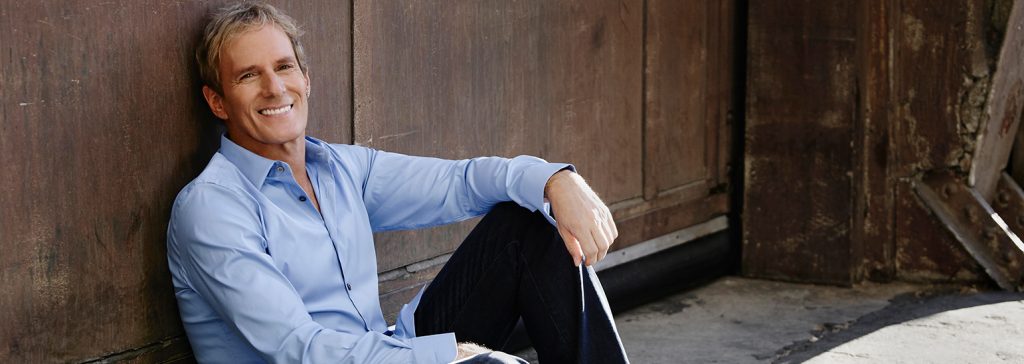
‘What do you see when you look at Michael Bolton?’ the writer asked, accidentally paraphrasing a Michael Bolton song that probably exists.
If you are watching a Bolton music video, what are you looking at? If you’re watching The Lonely Island’s Jack Sparrow, or Bolton’s Lonely Island-produced Big Sexy Valentine’s Day Special, are you laughing? What about when he features on Kid Cudi’s 2013 song “Afterwards (Bring Yo Friends)?” Why? Are you laughing with Lord Boltron? Or at him?
These are all questions I have asked myself more than once, more times than 1000. Michael Bolton, to these hazel eyes, is one of the funniest comedians operating. Even though he would presumably not describe himself as a comedian, everything he does in front of a camera makes me laugh. When he’s dressed as Erin Brockovich in service of The Lonely Island, I laugh. When he’s dressed as Forrest Gump in service of The Lonely Island, I laugh harder. When he’s giving an interview on Today, I laugh. When I watch his own, seemingly serious music videos, I laugh. Every single time Michael Bolton performs an action on camera, it looks like he has never done it before in his life, no matter what that act is. Thinking about whether or not Bolton is actually in on the joke simply adds another scoop to this sundae of hilarity.
Presumably, Bolton’s music videos are not meant to be funny – I have a hard time believing he has been making music videos for 30 years in the hopes an unemployed writer would one day write a piece asking “but what if they’re actually comedy?” That’s some Andy Kaufman shit. There’s no way Bolton is giving interviews and clearly being incredibly honest and also intentionally trying to make me laugh. I believe he understands what the joke of Jack Sparrow is, but only barely, because I can never see any of it registering on his face. I can never really see anything registering on his face – thus the basis of his appeal.
While playing a Two Truths and a Lie-style game on The Talk earlier this year, Michael Bolton told host Sara Gilbert was tasked with convincing Gilbert that his birth name was Michael Bolotin. Her response to the statement?
“You look like you’re lying, but I’m going to say [that’s] true.”
She was right.
There has never been a more perfect summation of looking at Michael Bolton: you believe that he’s giving you everything he has, but it still looks like a lie.
There’s a worry underneath everything I’m writing here, a singular concern: does it sound like I’m trying to make Michael Bolton seem like an idiot? I don’t know for sure, but everything I have written thus far seems to hinge on that idea. This is a piece about somebody (and admittedly, the various members of their “team”) not understanding how they’re seen, and therefore making essentially the same music video over and over despite it being hysterical nonsense every time.
But then there’s another, more obvious point to be made: I could not be further from Michael Bolton’s target audience. I’m at least thirty years too young and always have been. I have never owned a Toyota Previa, and never once recorded an episode of Oprah to VHS. Bolton is simply not making music for me, minus the rare exceptions this decade when he has been asked by Andy Samberg to do so. When Bolton is giving an interview, it’s for the people that like his – as I’m sure he would prefer I call it – real music.
I think everything Michael Bolton does is hilarious. Choke on a hamburger, spit take a Pepsi all over your Apple TV-levels of hilarious. But is Bolton funny because he’s ignorant, or is he funny because I am?
There’s a difference between looking silly and looking like you have never been on camera before, despite mounds of documented evidence proving that you have been. To wit, Jeremy Renner is making music now. It’s hilarious. He has a single called Heaven Don’t Have a Name, a video called Main Attraction, and another track named Nomad. All of these songs are terrible, and it’s funny that they exist. It’s funny that a person who has been nominated for an Oscar for acting feels compelled to make – to use the comparison everybody else has – Imagine Dragons songs that sound shittier than actual Imagine Dragons songs. When we send around links to Jeremy Renner’s video, we are implicitly saying “this guy has everything, so why does he do this?” Why does he still feel compelled to open himself up to this level of embarrassment? I don’t know, none of us know, but we all love watching this type of stuff happen. (If Leonardo DiCaprio followed up Once Upon a Time in Hollywood by starting a Taking Back Sunday cover band, it would be the only thing the pop culture corner of the internet talked about for the rest of the year.)
Jeremy Renner and Michael Bolton both make dumb music, and they make dumb music videos to go with them. But there’s a difference. Renner is doing this because he wants something he can’t have, or at least wants people to view him as a diversified human, a so-called multihyphenate. Bolton is doing this because this is who he is all the time.
When I watch Renner’s Main Attraction video, it’s fine. Renner understands how to be on camera. The whole thing is most certainly stupid, and it looks incongruent watching Hawkeye perform with a band, but he can sell all that shit of him walking in the desert and touching blue light rods or whatever. Anybody would look stupid doing that, but Renner manages to look slightly less so. Renner looks like a human being reaching only slightly out of the confines he has the ability to occupy, whereas if Michael Bolton had made this exact music video I would still be laughing too hard to write a paragraph about it.
If you look at an old Bolton video – Said I Loved You… But I Lied, for example –he’s doing different versions of the same things Renner does. He’s in a desert, reaching out to nature, standing on a cliff face, wearing a shirt with a comical lack of done up buttons. Every shot looks like a manufacturer’s default for a computer desktop background.
Or perhaps it’s one of the videos featuring a little acting, where he romances Teri Hatcher at her father’s gas station before engaging in some truly repulsive kissing. Intercut with this are images of Bolton, alone in a room with shafts of light peeking through the thickest smoke machine clouds you’ve seen outside of Blade Runner. And he’s singing, looking so deeply uncomfortable doing so. Bolton in these music videos is a megastar, performing a song to his fans for maybe the millionth time. Yet he looks like this. And this awkwardness has never truly gone away. This is who he is.
Michael Bolton never looks like he belongs, even when in the arena that is his only real occupation. He has performed When a Man Loves a Woman for a paying audience more times than you have brushed your teeth, yet he seemingly has not found a way to look comfortable performing it. And, as you can figure out, I am obsessed with this.
In my world, obsession brings Googling. Searching for Michael Bolton interviews, however, results in not a lot of options from the distant past. Most of what I can find is within the last six years, and most of that is essentially the same. Bolton did a significant morning show tour earlier this year, because he plays music for people who still watch morning shows. He was promoting his “50th anniversary of working in showbiz,” which is hilarious on its own, but whatever, people in their 60s tend to think weird shit is a good idea. (At least one of your parents will probably announce an intention to try “snowshoe golfing” by the end of this winter.)
The point is this: Michael Bolton was so famous that a plethora of interviews with him from the 1980s and 1990s must exist. Mary Hart interviewed him on Entertainment Tonight at least once, I’m sure. If I was a proper scholar with a NexisLexis password (or a proper writer with a willingness to travel to a library), I’m sure I could uncover a handful of Billboard pieces about Bolton, perhaps a “let’s investigate this bizarre phenomenon” sort of Rolling Stone piece, and a bunch of selections from printed publications that have since gone extinct. Bolton was too famous for people to not interview him. He has sold 75 million records, which must have been interesting to at least one journalistic contemporary. But he wasn’t famous to the right people, the people who would bring Bolton into the future with them.
When I research one of these essays, a more-personal-than-scholarly-but-still-a-little-scholarly sort of thing, I do what most would do. I look at the subject’s Wikipedia citations. It’s the quickest place to find a diverse group of sources over a diverse time period, with infinitely more variance than a Google search would provide. From there, I follow all the leads I can find in these pieces, and use the most interesting phrases to accentuate secondary Google searches, to help me properly dive deep.
This strategy works as a jumping off point, almost without fail. In order for this strategy to work, you need the type of person who cares about Wikipedia, or who cares about the subject, to add these citations to the subject’s article. And perhaps unsurprisingly given his presumed audience, nobody seems to have done that for Bolton. The people who love Michael Bolton love him for his music, perhaps love to see him live, and that’s about it. I just wrote about Don Cherry – who theoretically plays to an audience not excited about extending with his Wikipedia entry – and yet this strategy worked just like it always does. I found plenty of diverse material on Grapes, relatively easily. Almost every sort of even minor celebrity has somebody willing to make sure their life is actively archived in a general, Wikipedia sort of sense but, as always, Bolton remains an indecipherable exception.
That’s what makes this 50th anniversary tour as interesting as it is: for once, it seems a celebrity gets to truly write their own history. Bolton controls the narrative, because nobody else ever cared to try. He is the type of performer he is, and that can never change because we actually remember him, but beyond that, it’s all up for grabs. If Bolton wants to exclusively talk about his work as a philanthropist, he can, and it will actively become difficult to find anything else about him without digging deep. (Like, for example, some scandalous investing done by his foundation in the 1990s.)
When you know one thing, expect one thing, and get one thing for long enough, the person giving it to you will be so deeply uncool that he will one day get to control everything.
One thing that Wikipedia citations has been helpful for, however, is Lonely Island-related research. It turns out Akiva, Andy, and Jorma have at least a couple of people who want to remember their history. Michael Bolton, for one: he loves telling the story of their inaugural collaboration on talk shows, it seems.
In the summer of 2010, the Lonely Island were writing the song that would end up being Jack Sparrow, and were trying to find a guest that fit what they were looking for, collectively deciding Bolton was the perfect option upon his name being mentioned by Akiva Schaffer. They then pursued Bolton until he agreed to perform on the track, after a series of rewrites to tone down language Bolton felt his fans wouldn’t support. On May 7, 2011 the music video was released as a Digital Short on Saturday Night Live, and everybody laughed. The song was funny enough as written, with Bolton’s true commitment to the bit sending it over the top.
The core of Bolton being funny in the Jack Sparrow video lies within one fact: we all knew who Michael Bolton was somehow, but he had also been absent enough from our lives to never have to think about him. That way, when he pops up, it’s odd, and then it only gets odder to watch him sing lyrics that are so incongruent with how we understand his place. Bolton is a forgotten but not forgotten man, because he was once so famous that some people will never forget him.
Hard left turn upcoming: this is going to, briefly, be about Once Upon a Time in Hollywood. In this recently-released film, superstar auteur Quentin Tarantino re-imagines the Manson Family killings in a way that seems meant to imply that all that was good in 1969 could have remained happy and placid, had a different door been kicked down and cans of dog food and flame throwers been implemented. Sure.
The lingering question to my eyes, the question posed by the final prolonged high angle crane shot of Sharon Tate’s home, is: would somebody else have followed Rick Dalton into that house at some point? Would similar murders or something replacing them have happened, thus ending the Summer of Love anyway? I mean, probably. Nixon was already President at this point, after all. Everything ends, which is why we need Tarantino movies to provide us with an escape from reality.
The thread running through the new film is a lesser version of the question of fate running throughout Tarantino’s Pulp Fiction, but with Once Upon a Time it brings up more personal questions about the film’s creator. Does Tarantino fear change? To an extent, surely. That doesn’t seem that odd. Does he fear change in a way that stunts his human growth? Potentially, but I’m not here to tell somebody how one should live their life. Tarantino has always been obsessed with the media products on display in this film, and he remains so. Some people don’t really change all that much as time passes, or do so incrementally enough that we don’t really notice as it happens.
I can’t say I loved Once Upon a Time in Hollywood, despite my excitement for its release and the fact that I will probably see it five or six times before it leaves theatres. Something about the movie simply felt a little lifeless; it had all the self-indulgences of a Tarantino picture, but it never really came together. The idea was that we see all these feet and all these cars traveling in different directions, yet ending up in the same place for the climax, but the journey didn’t feel propulsive enough to make it work, the stops along the way not funny enough to make us enjoy the pauses. It felt like everything I loved about the movie had been done before, done better in other Tarantino movies, save the new wrinkle of some incredible driving shots and gorgeous 1969 production design.
That said, when we got to the final, lingering overhead shot, I liked the choices. I liked the very ending of the movie because the tension remained after the police and ambulance left Dalton’s residence, as he went to get a drink with Sharon Tate. It felt like somebody might walk in the door right behind them and fuck the whole thing up anyway. In its placidity, the ending remained at least potentially turbulent.
This film, and Quentin Tarantino’s career, does not fit the Michael Bolton Wikipedia problem. QT’s life is documented. He is the opposite of Bolton – Tarantino is not only popular, he’s also critically beloved. He has plenty of detractors, but most of the time even they will give it up for his technical aplomb. I assume even Spike Lee respects those crane shots. Not to mention, Tarantino is also really good at talking. He has self-mythologized as we have gone through his career with him, writing the Wiki as he speaks, with nerds like me jotting it all down to enter later.
Watching Once Upon a Time in Hollywood feels like watching something disappear as it’s happening, both in the reality of the movie and the reality of movies. It is exceedingly rare to see a $95 million film about adults simply existing, featuring two of the biggest movie stars in the world. In fact, I doubt it ever happens again. Once Upon a Time truly feels like the last of its kind, a sort of one-off where Sony was willing to overpay in a bidding war to be able to tell people “we produced the new Tarantino film.” The sun is setting for maybe the last time, so I feel compelled to watch the gorgeousness fall off in the distance.
The movie proposes the idea “what if it didn’t have to end?”, and when it comes to releasing major films like this, despite my negative comments about this specific film, I truly wish it didn’t have to end. (It is possible to not love a film and still wish more films like it existed. This is not an incongruent thought.) But I worry it might already be over, and I’m holding on a little too tightly, futilely wishing it wasn’t.
When you watch a Bolton performance from the 1980s and a recent Bolton performance, they look the same. Truly the same, minus the hair. The music video from his 1987 breakthrough Sitting on the Dock of the Bay and his 1995 single Can I Touch You… There? are essentially the same. Post-1990s, Michael Bolton has spent the majority of his time in a recording studio covering pre-existing songs. Songs of classic cinema, the songs of Sinatra, a Motown tribute, and re-arranging his own hit songs with an orchestra is how he now spends his time. Bolton hasn’t released an album with original songs on it since 2009’s One World, One Love, presumably because he doesn’t feel he needs to, because there’s no financial reason and (apparently) no artistic reason. Bolton broke through with an Otis Redding cover, and his biggest hit is a Percy Sledge cover, so by his logic nobody cares if he just keeps performing the same songs he and his fans have already agreed to love. “I might as well cover my own pre-existing music with an orchestra,” he thinks, and it seems Bolton is able to believe this isn’t a problematic impulse.
This is who he is, and no matter how bizarre it appears, it still works for him. Bolton is a person who continues to exist, and continues to remain unflinching. This is what he does, and so he shall do it.
Do I envy him? No. Nothing about his life seems particularly appealing. Well, almost nothing.
]]>Even by my standards, this essay is absurdly niche. This essay is about Don Cherry.
Do you not know who Don Cherry is? That means you are not Canadian (and it also means this piece has already reached a wider audience than I ever could have imagined). For the uninitiated, Don Cherry is a former professional hockey player and NHL head coach, bringing the Boston Bruins to the Stanley Cup Finals in two consecutive years during the 1970s. But none of this really matters, because what matters is Coach’s Corner.
Since the 1980s, Don Cherry has worked for the Canadian Broadcast Company, temporarily as an in-game colour commentator before switching over to a segment that was called Coach’s Corner. Airing during the first intermission of Hockey Night in Canada*, Coach’s Corner is an approximately seven minute segment that is essentially a list of topics Cherry feels like talking about, and these topics are almost comically repetitive. Cherry, dressed in his egregiously flashy suit du jour and sitting next to Ron McLean**, runs through a handful of issues in the form of a seven minute run-on sentence, usually involving a hatred of visors and Swedish defensemen contrasted with a love of Canada and blue collar workers and/or the military and Bobby Orr and the correlation between dressing first class and playing first class. Occasionally, McLean will tee up Cherry (also known as Grapes) with a new topic and, without fail, will tell Cherry he is running out of time. There’s never enough time.
*This is a Saturday evening NHL game broadcast nationwide, a slot that is typically reserved for the biggest matchup (not unlike NBA’s Thursday nights on TNT). This distinction is essentially meaningless now, but for a long time Hockey Night in Canada was the only hockey the whole country had the ability to watch. Through my research, ratings reported on viewership toward the end of the 1990s stated Hockey Night in Canada averaged 1.4-1.5 viewers a week, which is an incredible number for a country of (at the time) 30 million people.
**Canada’s Bob Costas, except nobody hates (or even mildly dislikes) McLean. He might be the most likeable man in the country.
To be fair, Don Cherry has made some good, hockey-related points. He truly is fantastic at breaking down little moments in hockey that are unseen to the average viewer, to those who are not obsessed with hockey. It is clear he cares about the game of hockey like Tom Cruise cares about Scientology. These moments still exist occasionally even today, but they are growing rarer by the segment, which isn’t shocking given that Grapes is currently 85 years old. Often when he makes a good point, Cherry mumbles a name and/or a key concept, making the point harder to understand. But as somebody who has a layman’s understanding of hockey, I do appreciate the wisdom when it gets through; now that I can translate his version of English, Cherry frequently points out something valuable in a hockey game I never would have noticed otherwise. And as a lover of unintentional comedy, the segments that begin with a close-up of Cherry family silver that he brought from home to encourage us to respect Queen Victoria make me laugh uproariously.
Nobody I know seems to understand why an 85 year-old man who almost exclusively spews nonsense is still given such a platform, but until the platform is removed I’ll watch every speech given from it.
The genesis of Coach’s Corner came out of simply finding Cherry a place to be on television. In 1980, after a poor showing as a colour commentator – Cherry would openly root for certain teams – and the segment was created simply to house him for the remainder of his contract. Originally working with Dave Hodge, who was replaced with Ron McLean in 1986, Cherry began barking from the place he can still be found today. From there, there have been comical ups and xenophobic downs*, but the segment has remained a certain kind of entertaining all the while.
*A fact about Don Cherry: as the owner of the Mississauga Ice Dogs in 1997, Cherry declared he would only draft Canadian born players. He said he would accept foreign-born players who took up Canadian citizenship, and finally relented on the policy in order to improve the quality of the team’s players.
Speaking in MacLean’s magazine in 1999, Hockey Night in Canada executive producer John Shannon said about the segment that, “The interesting thing about ‘Coach’s Corner’ is that we set out to create intermissions that were entertaining,” Shannon said. “What we’ve done is create programming that is actually more viewable than the games.”
Cherry’s broadcasting career is littered with instances where he sent (justified) outrage throughout Canada (and a large handful of more instances on YouTube that never caused the fervour they likely should have). He has insulted ballet dancers, referred to Canadian Olympian and Nagano flag bearer Jean-Luc Brassard as “a French guy, some skier nobody knows about,” and ranted about how people wearing visors were “Europeans and French guys.” Cherry was an outspoken supporter of former Toronto mayor Rob Ford. Those are (most of) the major infractions, but the minors come semi-constantly as well. Cherry’s focus on the code of hockey and toughness often lead to him calling players he views as weaker than him “sweethearts” and/or any combination of a litany of phrases he has used over the years.
Perhaps most famously, on March 22, 2003 Cherry and Ron McLean entered into an on-air argument about Canada’s involvement in the Iraq war, or lack thereof. After the American anthem was booed at an Islanders/Canadiens game in Montreal, Cherry somewhat predictably felt Canadians should be supporting their American neighbours, while McLean asked the logical question of, “Why attack Iraq if they haven’t attacked you?” It was aggression versus pacifism, playing out on a government-owned broadcast. The segment is hard to find online today, as CBC quickly scrubbed it from their (at the time otherwise complete) online database of Coach’s Corner segments after it caused enough uproar to register over 1500 complaints.
Speaking to Eric Duhatschek of the Globe and Mail soon after the segment, McLean weighed in on the controversy.
“I don’t regret what we said or what we did. I thought at the time it felt right — and we went.
“Having looked at the cold, grey light of dawn at it — and also having been told how to look at it, which is fair, that’s the democratic process — it did strike a lot of people that it was not the forum to do it in. I can’t win that argument and I don’t want to win that argument. I’m willing to let it be.
“CBC’s philosophy is, it wasn’t the right stage; that we’re about hockey and we should stick to that. And how can I argue that?”
Cherry, of course, doubled down and went on noted idiot Jim Rome’s radio show* to discuss the controversy and how Cherry was treated afterward: “Our media up here is totally left wing,” Cherry said. “It’s socialist, left wing, pinko, commies. I got ripped to shreds in the left-wing media. That’s the chance you take. I don’t regret it and if I had to I’d do it over again.”
*I recognize the contradiction of saying complimentary things about Cherry while calling Jim Rome a “noted idiot.” The difference is Cherry is idiocy with sprinkles of knowledge mixed throughout, and Rome has never taught me anything I didn’t already know. Rome is a standard regulation idiot, but Cherry is my idiot.
Do I think that, in this instance, Grapes and McLean were censored? Kind of. They are given a seven-minute window together, and CBC has seen more than enough evidence that it’s a freewheeling segment. Should they “stick to hockey?” I don’t know about that. As McLean pointed out at the time, and is absolutely true, Coach’s Corner has a history of loving the troops and supporting the troops. McLean and Cherry were on different sides of the argument, but their hearts came from the same place. Realistically, this was the only time a lot of people (myself included) would have seen an argument on the topic between two very Canadian individuals, individuals with different perspectives. It’s hard to find something more Canadian than two people passionately arguing about a deployment (or lack thereof) of the Canadian military in between periods of a hockey game on the CBC, and then being able to immediately put aside their differences and continue working together for another 15 years without incident. Both sides of the coin were represented, one just happened to be louder than the other.
At the core of most arguments over Cherry’s usefulness or lack thereof is the idea that CBC is a government-funded broadcaster, and whether Cherry’s opinions are acceptable on a network funded by its government. But here’s another stance to look at: in 2003 when the argument occurred, Hockey Night in Canada was a fully CBC production. CBC held exclusive rights to the Hockey Night in Canada brand* until 2013-2014, and since then CBC has licensed the branding to NHL broadcast rights holder Rogers’ Sportsnet, who then sublicense Saturday games back to CBC.
*It began as a radio program in the 1930s, before beginning its television run in 1952.
The CBC does not make money, and is constantly under threat of cutbacks and/or extinction. I would be surprised if it still exists twenty years from now, and the only thing that makes me think I might be wrong is that people have been saying things like “I would be surprised if the CBC still exists twenty years from now” for longer than I have been alive. The only thing CBC historically does seem to make money on is Hockey Night in Canada. Most people with the staunchest issues with Cherry are likely those who support the idea of a government-funded broadcaster. So, the question is: do you like public broadcasting enough to tolerate Don Cherry for seven minutes a week?
Thoughts on Cherry have not changed over the years; there are always two sides and those sides remain mostly unchanged. To wit, here are two conflicting views.
Unknown speaker, male: “I think he’s a dinosaur. And I don’t think he has any place in today’s society with the antiquated attitudes that he has towards the world in general.”
Unknown speaker, female: “Love those ties. Oh, those button down collars. He’s cool. He’s a good guy. He should be the Prime Minister, he’s got balls and he says what he means.”
These quotes are both from the now-defunct radio program The Inside Track, with this particular episode airing on May 22, 1993. Like Cherry himself, the particulars of the complaints have changed, but only ever so slightly. For a long time, he was simply there, and he still is.
To a Canadian of my approximate age or older, hockey was a part of existence when you grew up. If you cared to know, it was very easy to know that Steve Yzerman came from your town; the athletic centre your team practiced in was named after him. It could never be cool to like hockey, a sport Canadian children grew up indoctrinated in. So to be outraged by Cherry was that of being outraged at a monolith: he was always there for you to rage against, as he raged against you in his own way. You disliked that he was given a platform with which to spew said rage, and you hated that he was technically a government contractor. It meant your country sided with a loudmouth idiot, when Canadians like to believe they’re exclusively quiet and polite. But the loudmouth is still here, and he’s still plenty loud.
Don Cherry still has his platform even as old age makes him more and more of a caricature. Hockey Night in Canada ratings remain surprisingly high – an average of 1.5 million a week for the 2017-2018 season – and presumably that plays a role in the pit bull keeping his pulpit. In the mid-2000s, when it briefly felt like the traditional Coach’s Corner pairing would no longer exist as Ron McLean’s contract negotiations hit a wall, there was uproar amongst the people of Canada. Would that still occur if the segment were removed today? I doubt it, but I truly have no idea.
Earlier this season, Grapes started his first proper uproar in some time. As the Carolina Hurricanes began ending their home victories with humourous but ludicrous team victory celebrations, Cherry chose to focus the back half of his February 16, 2019 segment on the antics. Writing out quotes from a Cherry segment is a fool’s errand, so just watch the following clip, beginning at approximately 4:31.
The Hurricanes immediately weaponized the segment, announcing that they would be selling “Bunch of Jerks” t-shirts as soon as they could physically print them. Throughout the playoffs, while the celebrations ceased, the t-shirts did not, and they were given away to fans at home playoff games to ensure everybody in the arena was dressed uniformly during the Canes run to the conference finals. When Cherry commented on them again mid-playoffs, calling their fans frontrunners and claiming the Hurricanes are only getting a boost in attendance because they’re winning, Carolina almost immediately had “Bunch of front running Jerks” shirts made. Cherry, of course, commented on the uproar again during the playoffs, and his response was hysterical, pointing to an old clip of himself discussing Pavel Bure that lead to similar merchandise, before adding a classic Grapes button by saying: “Somebody’s making money and I’m glad to see somebody’s making money.”
This whole thing is merely Carolina picking an argument with a straw man to unify the team and its fans. Do people in Raleigh know who Don Cherry is? Do people in North Carolina give a fuck about hockey? I would bet a box of Bojangles biscuits that, in most cases, the answer is “no.” They’re at the dinner table, provoking Grandpa because they can get a rise out of him and think that might be a fun way to pass the time while they wait for dessert. Don Cherry has become the grandfather with views long since outdated, but who has become too old to be harmful. He’s just playing out the string.
I disagree with Don Cherry on just about everything that matters. I like being Canadian, but if you’re a citizen of Sweden who doesn’t want to fight me I’m not going to call you the thinly veiled homophobic insult of “sweetheart.” I see nothing worth liking in high collars or triple breasted suits. But I love Coach’s Corner. I never want it to go away; I want to have a new segment of it every Saturday for the rest of my life.
I suppose there are still people who love Don Cherry authentically, who have never had problems with anything he has said; those are people who are not in my life. Of course, I understand not everybody in my country is like me, and that my inner circle is in no way indicative of the country as a whole. There are apparently still 1.5 million people watching Hockey Night in Canada each week, which means 4% of the country watches, and yet I have nobody in my life who truly cares about hockey. Ipso facto, my circle is not an accurate view of the whole. But increasingly, I realize one only wants to hear a continuation of what they were already hoping to hear, and Grapes might be proof that this has always been the way it is. When Rogers took over the NHL rights in 2013, and it briefly seemed like Cherry would not be making the move, it seemed as though his time was over.
“They’ve been saying that for 30 years,” Grapes said in a CBC interview. “I know I’m No. 1 and Coach’s Corner is No. 1 and what are you going to do?”
The appeal of sports is watching a collection of people become reactionary, to stop thinking and let their bodies take over. I spend my days worrying, and then worrying about my worrying, and then writing about the worrying, never immediately reacting and giving in to my first impulse. In professional sports, there’s no time to stop and think, or you’ll get scored on. I don’t want to go back to a reactionary mindset, really, but I want to be able to know how it feels nonetheless, so I can know why we should never go back to it once it’s truly gone. And nobody thinks less about what they just said or did than Don Cherry.
“That’s Grapes. He wears his heart on his sleeve.” This is McLean again, from the same conversation with Duhatschek in the wake of the Iraq War argument. “In our medium, it’s so tricky nowadays to discern what is sincere. It’s the old Dick Schaap line: ‘The key to television is sincerity and once you can fake that, you’ve got it made.’ Don is closer to sincerity than most of us ever get. That’s admirable, and I’d hate to see that shot down.”
At some point, Don Cherry went from somebody who mattered and who we listened to to somebody who has aged out of meaningfulness and is mostly appreciated as a comedian who doesn’t realize he’s a comedian. He’s a human time machine for seven minutes a week; it’s a time I don’t want to go back to, but for seven minutes a week I’ll laugh hysterically as history crumbles in front of me on television. Ron McLean is accepted and beloved and never for a second seems lost in a pile of nonsense. In most instances, the straight man is smarter than the goofball. The man with the rants and raves will be remembered, but he will fade into memory as a relic of a time we no longer need. The one who nodded and pondered and kept him on time may not be as memorable, but he’ll eventually come out ahead. He’ll still be there if only because he never quit. Logic will prevail. One day, perhaps.
]]>Best of lists are silly. I have tried to write pieces in the past that point this out, but I stopped them midway because even an anti-best of Best Of is no fun to put together. (For some reason, I never tried simply stating, “Best of lists are silly.”) You say to yourself, “I’ll write about the best cinematic moments of the year instead! Such a creative alternative!” or, “I’ll talk about how I stream all my films on my thermostat’s LED screen now ipso facto, cinema as a concept is meaningless!” or, “Nobody authentically believes I mean these exclamation points!” You begin writing about a particular scene in the Jake Gyllenhaal film Stronger that intrigued you, and you realize that even you are bored. So you stop, assuming you’ll try something like this again next year. And now it’s next year.
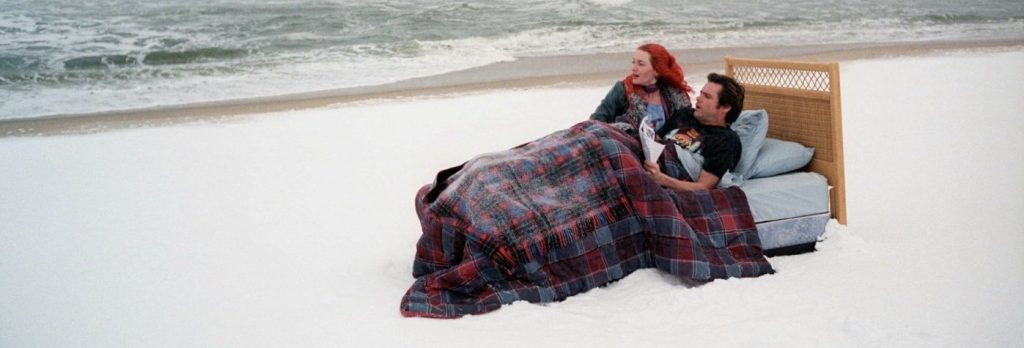
The other day, I happened to catch an afternoon screening of Eternal Sunshine of the Spotless Mind for the first time in many years. I knew (and apparently still know) this film like the back of my hand – I could see certain annoying Winslet and Carrey tics coming before they happened, and I predicted the exact moment a favourite Jon Brion music cue was going to come in – and was generally unsurprised by much in the film, because I had long since internalized its important elements. For some reason, be it because I was kind of bored watching a film I already knew so thoroughly or because my coffee happened to hit me in just the right way, a deafeningly bland thought paraded through my brain: “I should write a 2018 best of list.” This thought happened on February 12, and for those readers who fail to grasp simple math, that date occurs over 12% into 2019.
As of this screening, it was now fifteen years (almost to the day) of when I first saw Eternal Sunshine, a film I liked so much in its first theatrical run that I at one point saw the film on three consecutive days. Yet watching it again today remains a pleasurable experience.
Coincidentally, I had already planned to spend that evening watching the 2004 film Collateral for, again, the first time in many years. Like Eternal Sunshine, Collateral was a movie I saw repetitively in cinemas upon its initial release, and semi-constantly once it hit DVD in late 2004. Again, it was a movie I had totally internalized, and again it was a movie I absolutely loved repeating the viewing experience of once more.
In the first week of January 2005, I spent a day watching the five movies I declared my favourites of 2004, with both Collateral and Eternal Sunshine being a part of this makeshift quinfecta. At the time, I was unaware of my own passion for writing nonfiction nonsense, so this marathon was more or less my equivalent of putting together a best of list. If I were to guess, and I’m relatively confident I’m correct, the rest of that 2004 list would be Mean Girls, The Bourne Supremacy, and Harold & Kumar Go to White Castle*.
*I was eighteen. Get off my back.
There are movies from 2018 that I would declare as my favourites of the year, and most of them are films I have the utmost confidence will age well with me. The idea of If Beale Street Could Talk or Roma ever playing as anything but a masterpiece of craftsmanship in 2032 makes no sense to me. But I know better than to declare anything the best, because I don’t exactly get to make the decision. Time takes care of it for us.
If I were to truly pick a favourite film of 2018 (and contrary to that opening paragraph I like to at least try), I think I have to choose Tully. Through a combination of the film being magnificent and my vested interest in Diablo Cody’s work, I think it is my favourite. I watched Tully and loved it, I watched it again and still loved it, then I properly studied it for a podcast and almost nothing I wrote in my notebook was negative. Of movies that I saw in 2018, it is probably the one I clocked the most hours pondering. It makes me laugh and it makes me wonder about my own life, always the most potent cocktail for a film becoming lodged in my memory.
That said, more than most of my favourite films of this decade, I can see a future where my opinion on Tully changes with time. Tully takes some big swings in the direction of a subject I simply have no experience with, and any time you’re addressing things like post-partum depression or any sort of mental health issue, you have a pretty fucking high chance of time proving your thoughts about it questionable. (I can’t imagine Girl, Interrupted looks like a masterpiece twenty years later.) It’s simply a linguistic world where the vernacular is turning too fast for cinema to keep up with for long; wherever we settle eventually, it might be far from the choices Cody makes in Tully.
A BRIEF REPRIEVE TO DISCUSS A LINGUISTIC CHOICE FROM ANOTHER FAVOURITE FROM EARLIER IN THE DECADE
Take, for example, another underseen favourite of mine, 2010’s It’s Kind of a Funny Story. This is a fantastic comedy, and one that feels truly ahead of the curve in the way mental illness is discussed within. (For example, think about how much the way you have talked about mental health has changed in the past nine years; the fact that this movie doesn’t feel as old as Stonehenge is a borderline miracle.)
That said, there is still a moment in the film where Lauren Graham’s young daughter makes a joke using the word “tranny,” and then Lauren Graham repeats that joke to double down on the hilarity. I’m not shaming the movie, as I assume I laughed at this in 2010, but the point is that even when you know how to talk about one serious issue, you can miss completely on how time will treat another. You can be woke AF and still hit the snooze button a couple times.
In the case of Tully, I assume there will come a day when we’ll finally stop using words like “crazy” and “nuts” and “bonkers” and all their assorted variants as pejoratives, and around that day I trust any media product that even tangentially deals with mental health will seem tremendously outdated (not unlike almost every time you see race directly addressed in any way in a film released before 1990). I don’t know when Tully will start to jar me more than make me laugh, but that day may come.
There is one subject broached in Tully I will surely never stop thinking about, however, even if I never experience it in exactly the same manner our lady hero does in the 2018 film. I will never stop thinking about the splitting of the self, because no previous iteration of me has ever stopped thinking about the splitting of the self.
For those who skip the footnotes, I turned eighteen slightly less than halfway through 2004. I have always assumed this played a role in my attachment to certain films from this period, and I remain confident I can’t totally remove myself from the feeling of first seeing these movies when I was eighteen. Is Collateral a good film, viewed as objectively as one can view a piece of art? Of course. Is Eternal Sunshine of the Spotless Mind? Unequivocally. In 2004, did I know they would endure with me as they have? I can’t say.
When I think back about those movies, and how I remember seeing them in 2004, there is one constant: I can remember something external about the experience of seeing each film. I recall walking out into the summer night after a screening of Collateral and realizing the movie’s digital, deep focus exterior shots captured the look of a summer sky better than any movie I had seen previously. Eternal Sunshine is forever attached to those three consecutive days I saw the movie, seeing it three times because the same person failed to show up each time*. The Bourne Supremacy thundered into my life at 5am amidst an overnight movie marathon, and its faux verite stylings had me looking around the theatre for anybody still awake to share this excitement with. Mean Girls became a classic to most over time, but I was an early adopter, seeing that shit seven times in theatres with various collections of pals. Even Harold & Kumar can’t be removed from the experience of seeing it on a Friday night with a group of friends who then decided to cross the goddamn border to buy a bunch of gross, tiny steamed hamburgers.
*My guest for the third screening was a Timbits box filled with chocolate glaze and resignation.
(With the exception of Harold & Kumar, which I have not seen since Dubya’s presidency) I have watched all of these films again in this decade, and have been pleased to see they remain good. They all get watched under pretty much the same circumstances now, usually in the same chair and on the same monitor, as opposed to the same couch and TV I watched the DVDs on in 2004, but they still play well to this crowd of one. Some changes happened, some things remained the same.
The best experience I had at the movies in 2018 was seeing the Panos Cosmatos film Mandy in a full theatre, surrounded by a combination of people who were unsure if they were in for a silly Nic Cage movie, a heavy metal murder opera, or a hypnotic spell masquerading as a film. To these hazel eyes it was the third option and I found it all deeply compelling, including a performance from Cage that was simultaneously absurd and absurdly sad. As the movie ended, the person directly in front of me loudly said, “What the fuck was that?” I was less angry, but equally confused by the experience and certainly moved. Was Mandy truly a great movie? Or did a perfect combination of external forces meld together to raise my experience to an uncommon level? I can’t say, but of 2018’s great films, this will remain the one I am the most afraid to watch again, lest an imperfect second experience even remotely diminish the first.
My attachment to Tully is hardly experiential, although seeing a middle-aged woman literally dance into the theatre as I walked in was rather charming. Other 2018 favourites like Eighth Grade, on the other hand, seem like screenings lodged into my brain as though they happened yesterday.
A BRIEF REPRIEVE TO DESCRIBE AN IMPERFECTLY PERFECT WAY TO WATCH EIGTH GRADE FOR THE FIRST TIME
You have worked up the courage to ask somebody out for a drink. You do so via text message, because it is 2018 and you will not conceivably bump into this person in the wild so this is the way it shall be. You send an inquisitive text message. Twenty minutes later, you turn your phone off because you have not heard back and the movie is supposed to start.
Then you watch a 93-minute movie that is almost exclusively about the experience of feeling ignored when you don’t want to be. Try watching the pool party scene in this exact circumstance and you, too, will find yourself literally tugging the skin of your face to help deal with the different versions of the same awkwardness you and Kayla Day are sharing.
Sitting behind me, because this was again a Saturday night and the theatre was full, were a trio of Kayla-aged girls and one mother. I felt equally bad for the mother when talk of oral sex began; it was clear this woman didn’t totally expect this specific movie. That said, I feel her awkwardness was for the greater good, as I can’t imagine anything but good things (eventually) coming out of a thirteen year old seeing this film.
After the movie, I left the friend I saw the film with and walked a block north, planning to run home on a less busy road. Before I did that, I sat down on a stoop to tie my shoes. I didn’t stand for ten plus minutes, sitting and drinking in the experience I knew would leave me once my heart rate started escalating from activity that was physical as opposed to emotional.
I’ll let you guess whether or not that person ever got back to me.
Sorry to Bother You and The Favourite are movies that were a joy to see because the people around me didn’t quite know what they were getting into. The former is an especially perfect film to see surrounded by hundreds of other people who are working through its bizarre turns and laughs and mutant horses voiced by Forest Whitaker at the same time and speed as you. First Man was a memorable internal experience, one where I couldn’t figure out what I loved about the film until ten minutes into my second time seeing it.
Sorry to Bother You and Eighth Grade and First Man and The Favourite are films I loved, but they were also films I loved seeing. The likeliest scenario involves a film like Something to Bother You falling slightly out of favour with me over time, if only because its wild swings make it the least consistent of the movies I loved in the past year. But those swings also made it memorable, and those swings are what I’ll keep with me as time passes.
Looking over a list of films released in 2004, there are plenty of other films I adored released that year, many of which have effectively fallen out of my brain with time. I may have rewatched them a bunch in 2004 and the following year or two, but at this point it has been a long time since I have consumed them for various reasons. Friday Night Lights was pushed into obsolescence by the television show it inspired, watching Dodgeball was replaced by me actually playing rec league dodgeball, and Napoleon Dynamite became such a cultural sensation that it’s hardly worth watching anymore. Spider-Man 2 was replaced by too many Spider-Men. Sometimes, things just fall out of your life for no particular reason: I’m sure Closer and The Motorcycle Diaries and I Heart Huckabees and Shaun of the Dead are still good films, I simply haven’t had occasion to watch them recently. Movies I once thought were good have been proven terrible (Garden State); movies I once thought were terrible have become favourites (Ocean’s Twelve). Team America: World Police made me laugh so hard I temporarily worried I was going to choke to death on my afternoon Burger King, but like Sorry to Bother You, its highest points were predicated on not being able to anticipate them and it has not had a lot of repeat viewings as a result. Only Before Sunset is a film that I loved in 2004 and might love slightly more now (but basically everything about that movie is an outlier).
The constant, I suppose, is that of all my proper favourites of 2004, I still remain passionate about them in some way. I love Eternal Sunshine for more or less the same reasons I did in 2004, and my appreciation of Collateral as a rad action movie with unique cinematography has evolved into loving it as a movie about the struggle between random chance and fate, but either way the love remains in some form.
When I compare my favourites from other years earlier in this decade, most remain beloved. Inception, Young Adult, The Place Beyond the Pines, The Master, Drinking Buddies, Inherent Vice, The Hateful Eight, etc etc etc have all remained lodged in my heart. Only The Adjustment Bureau has taken a bit of a hit, but I was always kind of aware that would happen; outside of the leads the acting isn’t particularly strong, and even in 2011 I could admit there sure was a lot of stupid shit with magic fedoras. That said, watching it again recently, its ruminations on fate and art and love and politics remained the wheat worth sifting through the magic fedoras filled with chaff.
I suppose my distaste with best of lists likely comes from a place of unsettledness with the idea of film criticism itself. As far back as high school, I began ignoring movie reviews, newspaper and otherwise. Soon into university, I actively began talking shit about conventional movie criticism to uninterested classmates. Too often, such things devolved into “this is good” or “this is bad” without any deeper discussion as to what makes something “good” or what makes something “bad.” To this day, I believe my interests lie too heavily in the business and quality of films because of the way my brain was melded by simplistic, capitalism-driven reviews. Best of lists are almost exclusively surficial; there’s no time to delve in a blurb. I recognize the capitalistic reasons behind all of this, but even now, when you listen to podcasts that quote unquote do a deep dive into the film world, they still barely seem to scratch the surface. There’s so much to know, but so few doing the excavating. There are so many interviews now, and yet they’re all asking the same questions.
That said, I recognize the idea of a best of list helping a cinematic consumer – for people who don’t watch half as many films as I am able to, having a professional curator is important for time management and even I recognize that. Sometimes you can’t write your own cinematic history without an assist from others.
When I watch a movie, I’m watching a collection of mostly unseen people who have put an incredible amount of time into a job. Some people are only on set for a couple of days, or only assisting with organizing footage in the edit suite for a week, but even in those cases the days are often longer than your average job. In the case of writers or directors or stars or producers or editors or cinematographers or production designers or composers or what have you, weeks or months or years or occasionally decades can be spent with an idea ruminating in your head. The eventual film contains all of that, and in the best-case scenario, that film is worth carrying with you for years to come. There is never enough time to talk about all the work that goes into a film, or time to give all of the craftspeople the proper respect they deserve, because all of those craftspeople are working simultaneously in concert and independently to achieve a collective goal. The total amount of hours put into the making of a film is truly absurd. So we’re all blurbing, I suppose, some just have to deal with a more stringent word count.
The reason I keep attempting to write best of lists despite claiming to hate them has to be because I do care. When writing about your favourite movies, what you’re doing is writing about your own personal history, both present and future. You’re writing about these works from a personally historical perspective, and you’re simultaneously writing about yourself today and yourself tomorrow. What you’re saying when you write a best of list isn’t “watch these films cuz they’re lit,” it’s “watch these films because they’re representative of thoughts I didn’t know I had and there are so many people who helped me come to these realizations, so few of whom I can even name and yet they’re all so important to me both now and likely far into the future.” Your own personal history contains artifacts of their professional (and by extension personal) history, whether they know it or not, whether you know their name or not.
Perhaps when there is enough passion directed towards anything, it stays within you forever. You can say goodbye to it, but it’s always going to be there, nagging at you somewhere. You can erase it from your memory, or you can move on with your life, but it will always be there in some way. Marlo moves on from Tully, and yet Tully finds her way back (and might one day do so again). Joel and Clementine erase each other, and yet they remain, playing in the snow of a Montauk beach. The people working on the sets of these films go on to their next show, unaware of how much their work has affected others.
Best of lists are silly. You read them and you think, “Alright well she picked this because she correctly Stans for Daniel Kaluuya and she picked this because she confusingly Stans for Dan Fogelman,” and you become determined to do better yourself before realizing what you’re doing is another version of what everybody else was already doing. You ponder that momentary sense of unity with the artists and writers that feel deeply about cinema, and then you continue on with your life. And then it’s next year.
Film criticism will always inherently tell a partial story. As outlined above, there is no time to get into all the minute details of what makes a film work, and all the people required to do so. Any time you write a review or a Best Of list or an anti-best of Best Of list, you are fighting a losing battle. The only thing that matters is that there’s still something reminding you it’s worth trying.
]]>On the subway to a concert on a Tuesday night, I thought one thing as I listened to the same 76 seconds of music over and over again: I live every day simply waiting for somebody to ask me how I feel about the first 76 seconds of Pusha T’s Hard Piano. About an hour later, a bunch of people threw various liquids at Pusha T while he was onstage and I figured I could find a way to work those thoughts into this.
For the uninformed, here is the absolute bare minimum of what you need to know to continue down this path with me:
- Pusha T is one of my favourite rappers, and is generally considered one of the best rappers working today.
- Pusha T dislikes Drake, something that pretty much begins with a dispute over a Lil’ Wayne clothing choice and his then-compadre Baby not paying The Neptunes for the beat to What Happened to That Boy.
- Earlier this year, Pusha T put out a song called The Story of Adidon, a song about Drake’s previously undiscussed child and his producer/bestie 40, who has multiple sclerosis.
- For that single’s cover art, Push used a photo of Drake in blackface that Drake shot in 2007 and nobody seemed to be aware of.
- At his recent Camp Flog Gnaw set, Pusha T had FUCK DRAKE onscreen behind him for a portion of his performance.
- In a conversation about Pusha, Drake recently said, “Someone’s gonna punch you in the fucking face.”
- On a Tuesday night, Pusha T performed in Toronto, home of one Aubrey Graham. And here we are.
After about 30 minutes and somewhere in the vicinity of a million songs – it is always hard to track time when rappers have lots of short but popular features that must make their set list – a bunch of people threw drinks at Push. Not an uncommon thing to happen at a show, I suppose, but this was clearly a concerted effort and this concerted effort was occurring during the middle of a song. (At the risk of stating the obvious, usually when people lose their shit at a show, it’s at the beginning of one of the artist’s most popular songs; you throw your drink and mosh when the beat drops on Numbers on the Boards, not halfway through FIFA.)
Approximately four seconds later, right around the time most people realized all the factors I just ran through, Pusha left the stage. Then a couple people got the absolute shit kicked out of them, and about fifteen people ran out the back of the venue. The house lights went on and some left, assuming the show was over.
It’s odd being present at something that you know will quickly becomes a news event. It was kind of fascinating, being present for an event that seemed pretty clear but would quickly become fodder for misinformation on Twitter: some temporarily reported that the person getting pummelled onstage was Pusha himself, which was untrue. Nobody around me really knew what was happening; confusion was rampant, but one consistent thought popped into a lot of people’s minds simultaneously. Pretty much immediately, I sent my sister an ineloquent, alcohol-fuelled two-word text: “Drake sucks.”
After a handful of minutes, Pusha T came back out onstage, with the house lights still on and a collection of security guards with him, including one holding a 2×4 that looked like it had been ripped off a wall approximately 30 seconds ago. Push immediately launched into Infrared, the last song on his album Daytona, and the most pointed anti-Drake song in his official catalogue. For obvious reasons, Pusha was palpably angry, and this part of the performance was pretty incredible. After the song ended and his DJ started playing something Pusha was no longer in the mood to perform, Push yelled, “GANGSTER SHIT ONLY!” This lead to his verse on the I Don’t Like remix and again, this was all pretty incredible, and naturally the remaining crowd was suitably amped up at this point. Then Pusha was told the cops were shutting the show down and that was more or less it. Water bottles and a beat down won’t slow this train, but law enforcement will.
Upon his return to the stage, Pusha accused Drake of paying a group of people to bring this particular ruckus to his show, and that’s certainly what I assumed had happened after Push left the stage, what the message to my sister was meant to indicate. Coming back on stage, Pusha knew he controlled how this would be framed, and he framed it in a way meant to make Drake look like a sucker. Whether this was a conscious decision by Push or one made entirely out of rage, that became the immediate takeaway for most people. The more I think about it, the more idiotic that sounds, but Drake is just the type of idiot to do it.
This is the part where I expound upon my text to my sister, where I elucidate just how “Drake sucks.” Now, in the past I have written pleasantries about Drake’s work, but that was many years ago, many albums ago. Post-Nothing was the Same, Drake becomes almost comically boring, and all of his subsequent records have felt like the work of a lost talent. God’s Plan is the hip-hop equivalent of a nap, and his most recent album Scorpion is the hip-hop equivalent of being in a coma (and is coincidentally the length of a short coma).
Here is a quick, reductionist tracing of Drake’s musical career through his albums:
- Thank Me Later – Fine.
- Take Care – Mostly dope.
- Nothing was the Same – Dope.
- Everything since – Consistently boring and mostly awful.
When I listen to Drake music today, I hear somebody who feels so secure in their position in life that they don’t need to work all that hard to keep their stature. Drake is the biggest star in hip-hop today, and he knows it. He will never do anything to sacrifice that place in the food chain, because he loves where he is. And that’s fine. That’s his prerogative. Live your life, Aubrey. But I don’t have to fucking like it.
A modern Drake album doesn’t sound like something put together as a musical statement in any capacity; it mostly sounds like a bunch of songs that were released simply to be there. Songs on Scorpion constantly feel like they are simply something instead of nothing. Drake feels like a musician for a world of people who like to casually use the word “content;” he wants to be the person who people are listening to, so he continually gives them said content, so they don’t have to travel elsewhere for it. Drake is the Netflix autoplay of rappers, the Marvel Cinematic Universe of hip-hop. If you never give the people anything that strays from the agreed upon order of events, you never risk losing them, and if you keep giving them mediocre replications of what they already liked, they’ll never look around for anything else. But in this scenario the artist in question also never risks doing anything good.
Listening to Take Care and Nothing was the Same again, there is some legitimately beautiful work on there. The music is layered, and the beats are lush. Drake will always have moments of being a trying lyrical personality, but at least it feels like he is trying to be a person on these albums. After Nothing was the Same, he leaves his personhood behind; he becomes “Drake” at all times.
Pusha T’s career, on the other hand, is one of somebody who has had to remain hungry. After Clipse’s lone hit single, Grindin’, Pusha and his brother Malice had to wait years to release their follow-up, the stellar Hell Hath No Fury. (The delays, caused by their label, lead to the equally stellar Re-Up Gang mixtapes though, so at least there’s that.) Then they waited through another delay waiting to release Till the Casket Drops in 2009, after which Malice found God and decided he no longer wanted to be a part of the music Clipse made. And that’s fine. That’s his prerogative. Live your life, Gene. But Terrence doesn’t have to follow you.
Luckily for hip-hop, Pusha seemed to get along well with Kanye West. After being thoroughly planted in the sessions for My Beautiful Dark Twisted Fantasy (and the related GOOD Friday releases), the path for Push’s solo career was set: stick with Kanye, you’ll get ahead. And Pusha’s lyrical influence was clearly felt on what will forever remain the best work in Kanye’s illustrious career: Kanye writes his own lyrics, sure, but not without bouncing them around a room of thoughtful writers for improvement, one of whom at this time happened to be Pusha. Kanye’s personality shone through on the album, but not without the precision and snarling charm of Pusha’s influence*. And the two verses Push actually put his own voice to on the album were pretty fucking stellar.
*To be clear: this is hypothesis, but confident hypothesis.
Push’s verse on Runaway is well-known enough that I don’t really need to break it down; the song is a classic pop song, and Pusha T was there through plenty of performances at the VMAs and SNL and other televised shows with acronym titles. But Pusha’s work on So Appalled is where he really shines; eight years later this is still the easiest example to point to in order to prove Pusha’s greatness. But first, a brief interlude.
Here’s where we address the elephant in the room, the relative lack of variety in the content of Pusha T verses. Is it true that he mostly writes about drug dealing? Yes. Is it odd that a weird kid who has never really been around real drugs became attached to this kind of writing? Probably. Do I view either of those previous two facts as a problem? Absolutely not. I like what I like; as James once said on a podcast, you don’t have to be a cop to like Lethal Weapon, and I don’t have to be a drug dealer to like songs about dealing drugs. But that’s almost beside the point, because the true skill of Push isn’t always present in what he says so much as how he says it.
Rappers like Pusha T tend to fall into the frustratingly vague category of “your favourite rapper’s favourite rapper,” but nobody ever really explains what that means. To the best of my understanding, that category tends to include people who say more or less the same thing repeatedly in gorgeous ways but, more importantly, it includes rappers who have a borderline alien sense of internal rhythm. Black Thought is another example of this kind of rapper, and Rakim is the style’s forefather: these are people whose words are delivered at such a perfectly measured tempo that it feels like they are their own percussion, their own click track. If you listen to a rapper like this go a capella or over a track with no drums, this is where their skills become truly evident, but it is present at all times. (Pusha T’s appearance on Swizz Beatz’ Cold Blooded is a solid recent example, as is Black Thought’s magnetic, ten-minute Funkmaster Flex freestyle from last winter.) The flow isn’t always adventurous, in a way that somebody like Method Man is famous for, but its perfection is stunning. Back to So Appalled.
Listen to how Pusha delivers the second half of the verse: “Range Rove / leather roof / love war / fuck a truce / still move a bird like I’m in bed with Mother Goose,” like he’s bouncing around the words in perfect time. The way he says them, it feels like the words are all doing individual dance moves but somehow working perfectly in concert with all the others around them. I may have a layman’s knowledge of rapping, but I know this is majestic. Some combination of Pusha T’s Virginia accent, the restrained energy he puts behind his words, and the slight manipulation he delivers them with creates something I can listen to over and over and over and over. There are few rappers who I will recall lines from memory for timing-based reasons; Pusha is basically the whole list. I have a hard time going more than a week without thinking about how he says “In your thousand dollar joggers / as you brag about your dollars / is it a shame that a platinum rapper’s mother lives in squalor” on Crutches, Crosses, Caskets. I could easily write another 1000 words on my passion for Numbers on the Boards, but in short: the appeal of this song in totality is its uncommon percussion that Pusha rides like a click track.
Pusha’s first official solo album, the album Numbers on the Boards was made for, is called My Name is My Name. It is a very good album that isn’t quite great, which is basically how I would describe every Clipse record to that point; if there’s one truth about Push’s career it’s that he tends to mix some of the absolute best work in hip-hop with some of the most mediocre. And that’s fine. That’s his prerogative. Live your life, Terrence. Make those songs with Chris Brown. But I don’t have to fucking like them.
Earlier this year, Pusha’s most recent album DAYTONA was released to universal acclaim. As the first leg of Kanye’s month in a Wyoming ranch studio where he apparently tried to become a Soundcloud rapper, Push’s release was short; the goal was all wheat no chaff, all killer no filler, all Numbers on the Boards no Sweet Serenade. Its brevity became its only flaw, although including a middling verse from Kanye West and a Rick Ross verse from Rick Ross could be described as flaws. Nevertheless, the album is great. Usually when Pusha T puts out an album it includes approximately 20 minutes of perfection, the albums are usually closer to 50 minutes long; Daytona got the running time down to just over 21. Daytona is unquestionably my favourite album of the year, and I say that knowing Vince Staples put out an album last month.
It feels odd to talk a gang of shit about Drake for doing the same thing repeatedly and then praise Pusha for doing a different same thing repeatedly. But there’s something to be said for Pusha if only because what he does, he does with fervour. This is a wholly intangible thing to discuss, I know; I would imagine there’s an equivalent, darkest timeline version of Alex who is a Drake fan talking about how Drake’s genre versatility separates him from all comers. Something about it just feels wrong, though. If Pusha T is resting on his laurels, then Drake resides on the comfiest La-Z-Boy the world has ever constructed.
As a long time fan of hip-hop, I have often picked sides of disagreements that I qualify as fundamentally stupid. For whatever reason, hip-hop is simply a combative genre of music. The Pusha T/Drake issue is no different: I think it’s kind of shitty to talk about somebody’s kid with no clear reasoning behind why you’re doing it. Making fun of somebody’s best friend who has multiple sclerosis is pretty much the definition of being a shithead. That said, I still get it. Drake does make lazy music, and it always feels like he makes it quickly. It’s not hard to imagine somebody whose skills are built around perfection despising somebody who just kinda throws shit out there, calls it Hotline Bling, does some weird dance moves and becomes the only thing anybody wants to talk about. Pusha T and I have little in common, and I disagree with his opinions constantly, but I understand.
Now seems as good of time as any to discuss the first verse of Hard Piano. Pusha T’s actual verse is relatively standard Push, which is to say it is close to perfect*, but not necessarily better than his work anywhere else on the album. There are some Push based highlights – “the Warhols on my wall paint a war story” – and his timing is unsurprisingly perfect, but the real highlight happens when the beat temporarily ramps up around the thirty-second mark.
*The opening line is more than a dash misogynist, but you can’t be a hip-hop die hard without occasionally realizing you’re supporting a deeply misogynist genre of music, so that’s a conversation for a different day and a different therapist.
It’s tough to describe feeling passion for a small portion of a song because of the ethereal nature of the best aspects of music; this is why so many music critics frequently sound like idiots. But this song is so good I don’t care. As Pusha says, “look at my new digs,” the already spectacular beat gains another element: a slow procession of keys begins. The rest of the beat that we have heard to this point is a jaggedly chopped sample, but these keys are all original accenting, as the keys are lightly tapped and held to add an entirely new, borderline heavenly environment in contrast with the messy beat underneath. Add into that a touch of vocals – basically people humming along with the piano’s notes, so low in the mix you could miss them entirely – and it’s so gorgeous that I stopped paying attention to Pusha entirely the first time I heard it, even though the beat works perfectly in concert with his words.
What Pusha does in the beginning of his verse is separate himself from others; he lists a collection of people he’s better than (janitors, amateurs, Harvey Weinstein, Matt Lauer) and then invites you to look at the palace said separation has built for him, which is where those keys kick in. Toward the end of this section, but not the end of the verse, Pusha says “throw the phone if you hear a click,” meant to indicate that if somebody is listening you should hang up. Instead of the keys and vocals simply cutting off, to indicate simply hanging up, there is a slight hitch in the accents before they go away entirely, as Push again starts rapping about an exterior world, moving to his car as he Art Basels the bezel. Again, words working perfectly in concert with the music.
This is where I must mention that Kanye West is the producer of this song, and Andrew Dawson and Mike Dean receive co-producer and additional production credits respectively. It’s entirely possible the musical switch was not Pusha’s idea, borderline likely. It’s equally possible that it wasn’t Kanye’s idea either (for no definable reason, and having not read the credits at the time, my immediate thought was that the keys were a classic Mike Dean accent). The additional vocals sound like a vintage Kanye addition, but the keys scream Mike Dean. Either way, as music at this level is, this is a song made by a team and released by an individual, so for the sake of conversational convenience, to the named individual must go the spoils.
Together, this collection of thought ends up sounding like exactly the opposite of what bothers me about Drake: Hard Piano is a bunch of people working much harder than they actually have to in order to maintain their stature. If Pusha T released a mediocre album at this point, would I love it? Almost certainly yes. If Kanye released a collection of mediocre beats for Pusha to rap over, would I love them? Almost certainly yes*. These bona fides have been proven; the Warhols are already on the wall. Instead of resting on the laurels of his salmon coloured VMA suit, though, Pusha raps with more care than he did back in 2002, even though he is now the president of a music label. Everybody could have said, “That’s fine, let’s make a new piece of content,” but instead they decided to add another layer to underscore their own solid work.
*It should be noted that I have complicated feelings about modern day Kanye West’s music, from Yeezus to The Life of Pablo to Ye. But for somebody who has been obsessed with Kanye beats for fifteen-plus years, it is not a stretch to say some of his work on Daytona is on par with the best work of his career, especially that beat switch on Hard Piano (and the loop on The Games We Play).
The hatred between Drake and Pusha T is fundamentally stupid. But I understand. Pusha’s work on Daytona is ethereal and hard to pinpoint, whereas Drake seems to make music specifically to point at numbers. In a world obsessed with analytics and proving things through bullshit data, Drake is now a man of the time, Push a man out of time. And as diametrically opposed rappers, they must hate each other.
Even if you have everything, there’s somebody else who has something you want. Drake will never be beloved by quote unquote hip-hop heads like Pusha T is, because Drake became so popular so quickly that his place in hip-hop history was pretty much etched in stone by 2012. Drake is unquestionably a hip-hop pioneer, more so than Pusha T is, but classical hip-hop thought will never recognize him as such. Pusha T is an example of the best of what the genre has to offer, based on what we have all quietly determined are the best aspects of hip-hop. He is timeless, because he keeps perfect time. But he will never appeal to the masses, because the best aspects of hip-hop (the best aspects of pretty much any genre of any art form) are never what appeal to the masses. The best Pusha can be to the common person is the guy in the background of a Kanye show. He’ll get people like me to write thousands of words about him, but he’ll never get soccer moms to know his name. Unless, of course, one of those soccer mom-beloved rappers pays a bunch of people to throw drinks at him.
This brings us back to the question: did Drake actually pay people to throw drinks at Pusha T, or did Drake fans protective of a tragically-named The Six do so under their own volition? Given the financial aspects of it, what makes the most sense is Drake paid people, because Drake is the type of person who has enough money to bring an armoured car full of cash to a strip club for Future’s birthday. It’s entirely possible that Drake fans took Drake’s suggestion that Pusha T should be punched in the fucking face and decided to try to do that (the drinks seemed to be the diversion meant to cover up the couple trying to get on stage to fight Push). Sometimes people with a lot of money say things about other people with a lot of money and then people with a lot less money are all like, “Sure.”
On what used to be called wax, this is a battle of rich vs. richer. Drake has armoured trucks at a strip club, but Pusha wears plenty of terrible Prada shirts that can’t possibly be cheap. It seems fundamentally stupid from afar, and it is. But as I say every time a professional sports league goes on strike, “In a battle between millionaires and billionaires, I will always side with the millionaire.”
On Tuesday night I saw a different kind of dispute up close, the rich vs. the less so (or the rich vs. the pauper paid by the richer) and I can assure you it was all deeply stupid. The king doesn’t need to solidify his place on the throne by throwing drinks at another member of the same castle, even if that member likes to talk a lot of shit behind the king’s back. Sometimes, you’re a bad king. The problem isn’t the disagreement at all, so much as the king’s desire to stay the king. Historically, one who is on top only wants to remain there, and seems willing to do anything to do just that. But it’s fucking stupid.
I will never properly pick sides of this debate. It is clear I prefer Pusha T’s music, and his Neal Brennan line on Don’t Fuck With Me is the high point of the argument writing-wise, but I’m certainly not going to get punched in the eye for it. The appeal of Pusha is to do rote music better than anybody before him has done, and maintaining an absurdly petty argument is the worst part of that rote music. Did Birdman pay The Neptunes in 2002 for the What Happened to that Boy beat? Does it fucking matter? Do Pharrell and the Neal Brennan of The Neptunes miss that $100 000? By 2002 they were working on Justin Timberlake records and McDonald’s jingles, so I doubt they missed a car payment because of Birdman.
And all of this continues fifteen years later, evolved into different disagreements about different stupid arguments that don’t matter. What happens? A bunch of people you have never heard of get shorted because one guy doesn’t like that another guy said a third guy wrote his lyrics for him. Pusha is mad about how hard he works, so he screams into a void, and Drake is mad at being accused of not working hard enough, so he screams into a void. We all listen, but the screaming is not the real reason why most do, and those who chose to side with the king instead of the citizens are forever idiotic. In a battle between millionaires and billionaires and people who paid $40 to see a show on a cold Tuesday night, I will always side with the third option.
]]>
Alex writes about the career of Ryan Gosling, and a particular ringing left in his ears by First Man.
There’s a pervasive feeling that washes upon a viewer at the conclusion of First Man, and if one were to listen to the man to the left of me that feeling is apparently “…what?” If you were to ask the man to the right of me, he wouldn’t give you an answer, because he left during the moon landing sequence for some reason. First Man does not immediately draw attention to the things that make it special; it often looks and feels like Interstellar if Interstellar had been shot by the crew of Friday Night Lights. First Man is a relatively simple biopic, a movie about an infamous man with an infamous goal who accomplishes it in an infamous way while saying an infamous sentence. It cannot possibly be new, and it isn’t.
Throughout the film, I remember thinking to myself: “Do I like this movie? Am I bored?” I couldn’t really sort out how I felt about the film as it was going – the set pieces felt like less expensive versions of sequences I lost my shit over four years ago in Christopher Nolan’s aforementioned space odyssey. Conversing with a cinematographer friend later, he had felt the same way watching First Man. We commiserated on things we thought we might hate, or things we might love, but were primarily unsure about.
As hours and days passed, I found the pervasive score of First Man bouncing around my head. I was humming the repeated themes while making coffee, drinking coffee, and accidentally spilling coffee on this keyboard in front of me. I spent a weekend in a small town attending a wedding, assuming some dance floor fodder like Shake it Off would be replacing the sounds of Neil Armstrong’s quest. Even a briefly popular and absurdly catch Kendrick Lamar/A-ha mash-up couldn’t rescue me. As such, I was stuck bouncing around my musical memories until I could see the film again. And the images bounded with the pulsing music always lead me back to thinking about the film’s star.
I have a strangely clear memory of seeing Half Nelson for the first time in early 2007, the sort of memory one has upon experiencing something that grabs their attention in a new way. Half Nelson’s handheld cinematography was engaging without being overbearing, and the semi-improvisational style of filming its characters made every performance feel more naturalistic. (This also happened to be the perfect time of my life to see a movie with a climax scored by Shampoo Suicide, a choice that certainly had an effect on my viewing experience.) Of course, none of these specific thoughts are running through my head on the walk home; at this point in my life I’m mostly walking home in a dazed, semi-numb feeling, numbness unrelated to the snow seeping in between the seams of my Nikes. And all of these thoughts came back to one simple core element of the film, a thought about the man at the heart of Half Nelson.
‘I guess I’m a Ryan Gosling fan now,’ I thought.
Up until Half Nelson’s release, Ryan Gosling wasn’t exactly somebody I thought about. To most people like myself he was simply the guy from The Notebook. Given the fact that I am Canadian, however, I knew more about him than the average person (because the instant a Canadian becomes semi-famous in America they immediately become an unfathomable megastar in Canada*). Add in that Gosling was born in my hometown and you have a magic elixir of accidentally reading countless local newspaper stories about the town’s golden boy made good.
*The notable exceptions being all members of Nickelback, who remain our greatest villains not named Ford or Bernardo.
Gosling was famously a middling Mouseketeer next to the Britney/Christina/Justin triumvirate, living in Florida as a 13 year old and spending much of his free time at Disney World. As time progressed he became Young Hercules and the scrawny kid from Breaker High before branching out into film and, in 2004, putting on a newsboy cap and becoming the aforementioned guy from The Notebook. There were other efforts: starring as a Jewish Neo-Nazi in The Believer brought Gosling his first dash of critical acclaim despite being a widely unseen film. There was that Sandra Bullock serial killer movie about trigonometry, too, but Half Nelson was the first time Gosling came into the spotlight for being a potentially great actor.
Half Nelson is a not-quite-great but totally-very-good film about a drug addicted teacher developing a friendship with one of his students. The basic idea is relatively rote, mid-2000s type indie stuff, but the execution is solid: director Ryan Fleck and partner Anna Boden remain some of my favourite filmmakers to this day. In Half Nelson, Shareeka Epps is spectacular as Drey, and Fleck & Boden craft all of this into an engaging film about the necessity of fixing ground-level issues before approaching systemic ones. But at the core of the film, the core that was surely necessary to get it produced, is a lively, thoughtful performance from Ryan Gosling as teacher Dan Dunne.
Even up to this point, Gosling’s career had been unpredictable to an extent – after the fervent success of The Notebook, it is presumed that Gosling could have had any number of leading man type Hollywood roles, and yet he chose not to accept them. Profiles of Gosling from this time mention how little he cared about making a movie for the sake of making a movie and only cared about doing the right thing, borrowing a car and money from his agents to keep his life going while accepting scale for lower budget movies like Half Nelson.
“I read a lot of scripts. In my opinion, most of them aren’t good or aren’t about people,” Gosling said to W Magazine writer Marshall Heyman in 2006, during the lead up to Half Nelson’s release. “So I keep waiting, and I read and read until I find something that was written by a person about a person. It’s not like I have some real fancy requirement. That’s it.”
On the second viewing of First Man, it did not take long to figure out why this film had stuck with me, and specifically why composer Justin Hurwitz’s music had. By the eight-minute mark I could have walked out of the cinema entirely satisfied that my question had been answered.
First Man begins with a much-praised sequence of Neil Armstrong in an X-15. An engaging and solid sequence, sure, but not important for our purposes here. Then we see Neil and his wife Janet with their daughter Karen, as Karen is dealing with a brain tumour that the film leads us to believe shall not be defeated. Neil is doing everything he can to help, staying up late in his office and making calls while scrawling in notebooks that never get cleared from his desk, all of which is done alone, all of which is done in vain. Karen dies, with the sound of her casket being lowered into the ground prominently featured amongst the sound of tears and rain. Neil leaves the wake, retreats to his office, cries, and clears all of those previously necessary notebooks away. Neil has nothing to focus on now, nothing on his desk but tears caused by what he might view as his own failure. A seemingly innocuous move, he puts Karen’s bracelet away inside his desk drawer.
The next morning (the film doesn’t make the timing 100% clear, but it is at the very least soon after the funeral), Neil wakes up, says to Janet he thought he might go to work, and after a brief pause that is among Claire Foy’s best work in the film, Janet says “Okay.” The film cuts to a wide shot of the bedroom, where we see a bed that has no sheets on it, and then we cut to Neil plucking away at his desk at work. This is where the film’s most pervasive theme, the theme I had been humming for a week and a half, the theme I had been waiting to hear again, starts.
In that moment, I understood the film. It took me longer than most viewers, I admit, but eventually director Damien Chazelle’s efforts worked on me. As soon as one task had been deemed over for Neil, the next had to begin, and there was a new theme to accompany it, a new problem to be repeatedly mulled over. Neil has begun staring above him, looking at a moon that seems far enough away that he must get there. The moon becomes the place to get to for Neil, the place furthest from Neil’s own tragedy, and the hope of getting there is the one thing that can eclipse the sadness he feels on Earth. And all of these thoughts hit me in the span ten seconds, and all of them made me feel incredibly shitty.
In short, First Man is a deeply sad, unfathomably lonely movie.
Post-Half Nelson, Gosling’s career takes an intriguing turn, in that he kind of goes away for a while. There are films that he would have had in the can pre-Oscar nomination like 2007’s Fracture, a film featuring Gosling sparring with Anthony Hopkins’ murderous maestro, a film that remains deeply entertaining if a purely Hollywood genre piece. There was also Lars and the Real Girl – a solid film about community-based empathy and also Ryan Gosling being in love with a Real Doll – but after that Gosling doesn’t have another film released for years. Not that there weren’t any attempts.
Peter Jackson’s terrible 2009 film The Lovely Bones stars Mark Wahlberg, but it was initially supposed to star Ryan Gosling. Gosling, cast in the role while twenty-six years old, would later admit to feeling odd that the filmmakers wanted him for the role of a father of a fourteen year old, given Gosling’s age. Jackson’s idea was to thin out Gosling’s hair and age him with makeup, a stupid idea that fits right in line with this very awful movie. Gosling’s idea, unbeknownst to Jackson, was to grow a beard and chug melted Haagen Dazs until he was 60 pounds overweight. It seems Jackson did not appreciate this, and the parties agreed to move forward without one another, and Mark Wahlberg swooped in to give a terrible performance (albeit a terrible performance with Jackson’s desired body fat index).
Talking about it with The Guardian while promoting Lars and the Real Girl, Gosling implied he felt it was a mistake to take the role initially, saying, “The problem is, when you’re just starting out, you’re trying to convince everybody that you can do anything, because you need a job. You train yourself to think that way. And then when you get to a point where you don’t have to hustle for jobs any more, you have to sort of reprogram yourself and think, ‘Well, what can’t I do?’ Because the truth is that they’ll catch you. They’ll put you in anything.”
Asked if it changed his approach to looking at roles, he says, “Yeah, I think so. It was nice to be believed in that much, but it was also an important realisation (sic) for me: not to let your ego get involved. It’s OK to be too young for a role.”
And then he went away. Gosling spent a year learning how to play instruments for his band Dead Man’s Bones, for an eventual album that is surprisingly good – more early period Timber Timbre than Dogstar or 30 Odd Foot of Grunts. He bought a Moroccan restaurant, and he laid the plumbing himself because his attraction to movies that pay scale left him without the money needed to hire somebody. Even before this, Gosling had worked making sandwiches at a local deli following the release of The Notebook.
“That break did me good,” he adds in discussing his hiatus, “in the sense that taking some time out meant I had some experience of life. Experience of normal life, I mean, that you can then reflect in a movie. It’s not good just to have life experience of film-making and that’s all. It’s hard to play a real person when you’ve been in jets and town cars for three years.”
Eternally curious, a pervasive fact about Gosling seems to be his desire to learn new skills. He learned how to rebuild the car he pilots in Drive from a mechanic named Pedro, and one of the appeals to La La Land for Gosling was having a few months to learn jazz piano and polish some of his long-dormant Mouseketeer dance skills. When it came time to shoot Blue Valentine, I fully assume he actually worked as a mover and housepainter for a month or two before shooting as research for his role as Dean, despite having absolutely no confirmation of this fact.
Upon his return to acting in 2010, Gosling was featured in Blue Valentine, a beautifully heart-breaking picture that features some of his best work*. Writer/director Derek Cianfrance was able to tap into the same talents in Gosling that made him shine in Half Nelson, playing both to his improvisational naturalism and his apparent desire to drink melted ice cream**. Semi-famously, production halted for a month between the Super 16mm-captured courtship and the cold digital RED rendering of the dissolution of the marriage, set six years later. During that time, Gosling and Williams lived together in a Pennsylvania house with their on-camera daughter Faith Wladyka; Williams would go home to her family at night, and given child labour laws one can assume Wladyka would as well, but knowing the Gos he probably stayed at the house drinking himself to sleep every night in an effort to perpetually stay in character. When the man works, the man works hard.
*Even though he somehow only gives the second best performance in the movie, topped by co-star Michelle Williams.
**Coincidentally, Half Nelson and Blue Valentine share a cinematographer, Andrij Parekh.
What remains so fascinating about Blue Valentine today is the way it inverts Gosling’s star image from The Notebook, the image that in 2010 was likely still the lasting one viewers held of him. The scenes from Blue Valentine that take place in the past might as well feature Gosling climbing a Ferris wheel to talk to Williams; Dean isn’t that far removed from a modern day equivalent of Noah. But the scenes from the present show how that kind of impulsive dedication can go awry, how the charming love story can so easily go to shit in a six-year span. Blue Valentine never hits this note too hard, allowing it to underline more than take over the scenes, but Gosling’s pre-existing track record as a romantic leading man certainly never hurt Blue Valentine.
Blue Valentine’s release kicked off a long list of Gosling performances in a small period of time: within a year All Good Things, Drive, Crazy Stupid Love and The Ides of March were all in theatres. Gosling seemed to be making a move, cashing in simultaneously on both his acting cred and stardom to play a variety of types of characters. The people who wanted him in their movie post-Half Nelson were finally getting the chance. Crazy Stupid Love co-director John Requa put it thusly to The Telegraph in 2011, theorizing that, “[Gosling] did not want flash-in-the-pan success. He wanted to do it in his own time. Someone really prominent in Hollywood came up to us and said, ‘Good work, guys, you’ve finally made Ryan a star.’ And we said, ‘No, no. Ryan decided to be a star and we were lucky enough to get him. He’s his own man. He came to us. We just said action and cut.’”
It is during this period where the two distinct versions of Gosling become clear: there was the naturalistic, restrained Gosling present in films like Half Nelson, Blue Valentine and The Ides of March, as well as the full-blown movie star Gosling charm offensive contained in movies like The Notebook, Crazy Stupid Love, and eventually La La Land. Gosling had so many strengths that they couldn’t always comfortably exist, so he performed in enough movies to give ample sides of him room to breathe. He’ll play quiet introverts, he’ll learn how to strip a car and rebuild that car and drive the fuck out of that car, and (eventually) he’ll be one half of a charming duo that takes a borderline independent musical to nearly half a billion dollars at the box office.
“It used to be mandatory to sing, dance, and act—to do comedy as well as drama,” Gosling told New York Magazine in 2010. “You came out here and trained. Over time, [actors] got compartmentalized. If you tried to play a character that was south side of a character you were made famous for, you were kicked to the curb, or shamed into getting back in line. The idea,” Gosling tells Logan Hill, “is to go back to the way things used to be.”
This section surely reads as though I am claiming Ryan Gosling is the second coming of Al Pacino or something, which is certainly not the intention, despite potentially parsing that idea walking through the snow in 2007 after having seen Half Nelson for the first time. Like all great actors, Gosling has his array of tricks, and he goes to the same various wells so frequently that he can become predictable. Even watching the more improvisational movies like Half Nelson or Blue Valentine, you see some of the same tendencies popping up again and again, specifically his tendency to portray anger with slightly too much physical movement and his portrayal of sadness with a quick turn of the head followed by an unblinking stare into the distance.
Because of this, admittedly my passion for Gosling’s work faded over the years, notably in this 2010-2012 period as it became easier to see the overlap in his performances. What was once new shall always become old. I saw the same moves over and over, and I still self-identified as a Gosling fan, but I was no longer watching movies exclusively because he was in them. Over the past two weeks though, watching every notable film he has been in this decade (and a large percentage from the decade previous), I have realized those feelings were unwarranted. Initially I just wanted to watch Fracture because it was Sunday, and I was kind of hungover and I had a pizza to eat. On Tuesday I realized I should probably watch The Ides of March again in the name of research, which was impulsively followed by Crazy Stupid Love. Then it was a Thursday when I finished work early and decided to watch Blue Valentine again, a decision that eventually devolved into somehow watching five Gosling movies in a single evening. Something about the man’s career was hard to let go of, even with the repeated tricks being even more obvious when seen in rapid succession.
There is a significant difference between being predictable and being stale, though. Gosling can be predictable, but he is never stale. There is a liveliness to everything he does onscreen, even when he is doing that “stare off to the distance looking like you’re on the verge of tears” thing for the fourteenth time in any given film. And in a time when it’s so easy to do what people are telling you to do in an effort to avoid offending anybody, the choices Gosling makes with his roles are consistently great. Looking at his past six films results in finding an uncommonly fantastic run for a movie star:
- The Big Short – Gosling gets to go incredibly broad for the first time, and it is a joy to watch.
- The Nice Guys – Goddamn is this movie funny and goddamn is Ryan Gosling good in it.
- La La Land – This movie is not fun to talk about with anybody for a number of reasons I have already discussed elsewhere. But Gosling was nobody’s problem with this film, and if one were to ask me to point to the best proper movie star performance of the decade, Gosling as Sebastian is in the conversation.
- Song to Song – This one’s a bit of a cheat, since it was filmed in 2012 and director Terrence Malick’s reluctance to finish a film lead to its 2017 release, but this is Malick’s second best film and Gosling works fantastically within the framework of a Malick film.
- Blade Runner 2049 – Gosling’s one blockbuster foray happened to be a fantastic, famously slow-paced film about Gosling’s character discovering that he is not a Christ figure.
- First Man – (see above and/or below)
Gosling never does what a modern movie star is supposed to do, and even when he does, he does so with an inversion: he’ll make a blockbuster, but he’ll die in it to avoid becoming sequel fodder. He’ll be in a detective movie with Russell Crowe, but Gosling will play his character like he’s Laurel and/or Hardy. Even when he stars in something that reads as obvious – a biopic about Neil Armstrong, say – the eventual picture is not what you had in your mind when the movie was announced. (Nobody expected First Man to be shot like it was Gimme Shelter.) Whether it’s his doing or simply by picking the right people to work with, you never know what you’re getting with Gosling, but more often than not you’re getting something unique. No post-Armstrong role has been announced, but whatever it is will be worth watching*.
*Not so bold prediction: I would bet it is a couple years before we see Gosling play a lead role again, or perhaps any role whatsoever. If he is nominated for an Oscar for First Man, I would imagine that the awards show is the last place we see him for a while, lest one were to stumble into the right deli and found Gosling making paninis.
Gosling’s performance as Neil Armstrong focuses more on the quiet, interior version of Gosling, as director Damien Chazelle creates a world that allowed for the Blue Valentine version of Gosling to appear frequently. The scenes with the Armstrongs at home have a level of naturalism that can only be improvised, and in Neil’s scenes of quiet isolation Gosling suggests an interior monologue that never quite gets vocalized. Occasionally, in scenes of Neil joking with friends or telling Buzz Aldrin to effectively shut the fuck up, the louder, more performative Gosling briefly takes the reins, but more often than not, the subjective cinematic style of First Man required a resolute quiet from its leading man.
After the realization about Armstrong’s attempts to move on from his daughter’s passing, you have a hard time seeing the biopic, and begin to see a movie about a truly depressed human being who refuses to talk to anybody about what he is going through. (It is worth noting that at one point Janet mentions that Neil has never talked to her about Karen, which on its own is a deeply sad admission.) Neil begins to ignore his family more and more as he prepares to leave home, to the point where Janet makes him sit down with his own kids to tell them where he’s going, in a scene clearly meant to mirror the press conference Neil had just been the star of.
In a film filled with tremendous music, the best cue is unquestionably titled The Landing, a cue that is tied to the most exciting moment of the film. In this five minute sequence, composer Justin Hurwitz combines the pervasive theme we have been hearing throughout the film with all sorts of disparate sounds we haven’t heard to this point – we are going where no man has gone before, and Hurwitz brings in pieces of the orchestra we haven’t heard to this point as the scene progresses. In what is the saddest moment in a perpetually sad movie, the music gets bigger than it does anywhere else as we see a reveal of the moon’s surface: the orchestra is louder than it has been, there are more instruments than there will be again, all for the reveal of the lunar surface. And yet, in the wide shot used for this moment, Chazelle decides to keep the frame incredibly empty. You see the moon’s surface, a relative speck of the craft Armstrong is in, and nothing else. The musical choice is classical – this is the first time this has been done in human history so this is a big reveal, and the music is appropriately grand – and yet the visual choice is the exact inverse of how most movies would choose to navigate this moment. This is not triumphant, this is a man using all of his brain muscle to get to what is essentially an empty expanse, but an empty expanse Neil was able to convince himself would solve his problems.
Once on the moon’s surface, we see Neil looking around at only his shadow; he looks up and sees the earth that is now the same distance the moon once was from his home. Quietly, we are meant to believe Neil understands this was a fool’s errand.
Again, First Man is a deeply sad, unfathomably lonely movie.
If there is an unspoken appeal about Gosling, it’s not necessarily his acting choices or his role selection or the fact that he’s remarkably attractive. When people scream for a celebrity, it’s never one of those first two things, and it’s (almost never exclusively) about the third. There’s a certain unknowable factor to Gosling that shines through, and makes what he does choose to give us – those moments of charm in his roles or promotional interviews – all the more appealing. Gosling seems like a regular person who understands that talking a lot about himself is rarely the most interesting course of action. And onscreen he can be so restrained that getting anything out of him feels like a win. Gosling seems like a quasi-introverted person who simply happens to have to talk to these people with microphones and notepads about himself for some reason.
In the case of a celebrity like Gosling who is giving these interviews as part of a promotional cycle, the obvious reason for said talking is “money.” But you can totally stonewall these people while still promoting your film*, and Gosling never seems to do that. Reading profile after profile about Gosling, one fact becomes clear that doesn’t seem to come through in the public’s perception of Ryan Gosling: he’s kind of fucking weird. He seems to like magic a lot, went to Disneyland by himself semi-frequently as a thirty year old, pours way too much sugar into his coffee, and as previously mentioned decided to lay the plumbing in his own restaurant. Are any of these facts troubling in any way? With the exception of the Disneyland one, no. They’re uncommon acts taken upon by a man who lives an uncommon life, and few professions are more uncommon than movie star.
*See this recent New York Times profile on Bradley Cooper, written by Taffy Brodesser-Akner.
The core question of any one of these endless essays I have written about famous people I will never meet is always the same: why do I care about this person? I have spent a lot of time performing research that could only be described as “ever so slightly more than totally fucking meaningless.” I have no real desire to know Gosling, nor do I believe I can do so by engaging in this practice I am currently finishing up. For some reason, there just happens to be something leading me in this direction.
So frequently, Gosling’s finest strength in a role is an act of introversion: he holds everything inside until it’s time to actually vocalize (or the physical equivalent of vocalizing) what he needs to convey. The great strength of First Man, the element I couldn’t grab a hold of on one viewing, is just that. Neil cries alone after Karen’s funeral, and from that point on Neil pretty much refuses to communicate how he’s feeling, and Gosling does everything to keep all of that inside. It is only in the climactic lunar sequence when we see Karen’s bracelet for the first time in two hours that we know it was simply too much to discuss. We can understand that implicitly, and Chazelle and Gosling collectively hold it inside of us until it is time to literally (if not figuratively) let it go.
Is it odd to hypothesize about what a real person is thinking in their career and life choices? Probably. Am I turning Ryan Gosling into a character in my own writing as a way of getting across something I have been thinking about a lot independently of Gosling’s career? Unequivocally yes. Do I feel bizarre about this? A little. But the film I started this piece talking about is Gosling himself and Damien Chazelle doing pretty much the exact same thing with one of the most famous Americans to never hold the presidency. This might be wrong, but only the same kind of wrong being perpetrated by the same person I’m writing about, so I’m slowly coming to terms with it.
The last scene of First Man, the scene that prompted the man near me to say “…what?” comes in quarantine, after Armstrong has returned to earth. The film lets us know that things weren’t perfect in the old Armstrong homestead before going into orbit, but now that Janet and Neil are together again, Neil reaches out to touch the pane of quarantine-thick glass in front of him. You can look at the person you know better than anybody else in the world, and there’s still something there you can’t quite get through.
I have been writing this essay for over a month now, and I can’t quite say it’s finished because I can’t quite say it comes together properly. There is something missing, something I couldn’t find in research, and now I am out of Gosling movies to watch and Gosling profiles to read. There is nothing more to be done. I can keep trying, but occasionally you have to realize that the question you’re asking yourself may be unanswerable.
Eventually, you realize this. You try to reach, and you either keep trying to reach the same way or you find something new to reach out for, a new thing to occupy your days. If you can get close to the glass, you have to count it as a win. After all, once you get there you’re only going to turn around and see the place you came from taunting you from a distance that used to be right under your feet.
]]>